gair rhydd















In this week’s issue: What Cardiff students expect from the general election, the University threatening to prevent graduations, library cuts protests a success and the 2015 Sport survey results










Y Plastered: Treatment’s drug problem
• “Over half the people that walk through the doors have drugs with them”
• Staff alleged to have been complicit in supply of drugs
Popular house night “Treatment” is the site of widespread illegal drug use, staff have claimed.
A number of current and former Venues employees have confirmed to Gair Rhydd that the drugs being routinely used at the resident event include Class A substances such as ecstasy and cocaine.
One staff member stated that “over half the people that walk through the doors have drugs with them” but that only those “who have brought in a large amount for distribution or those who leave it in their wallet get caught”.
“Nobody is ever going to check


bras or boxers so the majority get away with it,” they added. ose who spoke to Gair Rhydd did not believe that enough was being done to stop drug use at the event and spoke to the publication on condition of anonymity.
One employee claimed: “every time I go to the toilet I see hordes of people queuing for the privacy of cubicles [to take drugs]”.
Yet the issue of drug usage is reportedly not limited to those who buy tickets; those behind the bar at the Students’ Union have also been alleged to be involved in the supply of drugs.


One worker confirmed that during their induction they were “warned of a possibility of random searches by security” as a consequence of past incidents. It was claimed by the employee that in the past “staff would smuggle in bulk and then pass on to non-staff once past security.”
e scrutiny applied to Students’ Union staff has little effect on the personal lives of employees. One worker admitted to Gair Rhydd that they “regularly go to work stoned, as do other people I’ve spoken to”.
e event is hosted in Y Plas, the nightclub in Cardiff University Students Union. e union said that any-
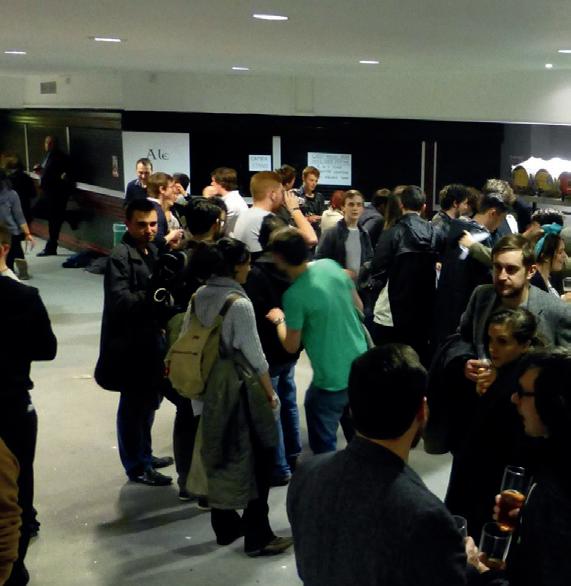

one found to be carrying substances will be “refused entry to the venue or ejected and issued with an automatic life ban”.
People found to be in possession of Class A substances face a prison sentence of up to seven years. ose involved in the supply of Class A substances face a maximum punishment of a life sentence.
e seriousness of the situation was reiterated by another member of staff, who claimed that: “Everybody loves working Treatment. e running joke is all you have to do is serve water because everybody is fucked on stimulants.”



Continued on page 4

2015
freeword
Issue 1044
Monday February 16th
|
|
EXCLUSIVE Alexander Norton
Pictured: Y Plas on a club night.
(Photographer: Cardiff Students’ Union)
“I am a test tube Catholic” P13 >> Your guide to the Real Ale and Cider Festival P28 >> “The cult of Beyoncé has gone too far” P15 >>
THE FREE WORD
EDITOR
Michael O’Connell-Davidson
GAIR
RHYDD CO-ORDINATOR
Elaine Morgan
NEWS
Georgia Hamer
Katie Evans
Alexander Norton
Anna Lewis
ADVICE
Kirsty Fardell
COMMENT
Anne Porter
Gareth Evans
Olivier van den Bent-Kelly
COLUMNIST
Jason Roberts
POLITICS
Carwyn Williams
Lauren Boyd Rhiannon Tapp
SCIENCE
Shanna Hamilton
Meryon Roderick
SOCIETIES
Hannah Sterritt
PARK LIFE
Tim Nagle
TAF-OD
Steffan Bryn Jones
Morgan Owen
SPORT
David Hooson
Rory Benson
Joe Atkinson
PRODUCTION
EDITOR
Sum Sze Tam
EDITORIAL ASSISTANT
Jack Boyce
DIGITAL EDITORS
Jordan Adams
Gregory McChesney
SOCIAL MEDIA EDITOR
Maria Mellor
Want to join the team?
Editorial conferences are each monday at 5PM. Proofreading takes place on Thursdays at 6PM in the media office during print weeks.
Write us a letter letters@gairrhydd.com Tweet us: @gairrhydd Online at: gairrhydd.com
At Gair Rhydd we take seriously our responsibility to maintain the highest possible standards. Sometimes, because of deadline pressures, we may make some mistakes. If you believe we have fallen below the standards we seek to uphold, please email editor@gairrhydd.com. You can view our Ethical Policy Statement and Complaints Procedure at cardiffstudentmedia.co.uk/complaints
Opinions expressed in editorials are not reflective of Cardiff Students’ Union, who act as the publisher of Gair Rhydd in legal terms, and should not be considered official communications or the organisation’s stance. Gair Rhydd is a post office registered newspaper.
@gairrhydd is back
So let’s talk a little bit about social media
One of the odd things about recent Gair Rhydd history has been the loss of the @gairrhydd twitter handle. As with many societies and bodies that are structured like societies, much of the culture and information is passed down by people that graduate to those who’re left behind.
Now and again, things get lost. And one of those things, bizarrely, was our twitter account. It took years to get it back - probably over half the time Twitter has been around -- but after a long saga that involved calling previous sabbatical officers and rooting through dust-caked archives, we’ve finally got back in.
This problem is down to the fact that Gair Rhydd has never really had a permanent social media person. But things have changed since that account was created, and now’s the time for us to make a start on making your voices heard on Twitter and Facebook.
With that in mind, we’ve taken on a social media editor. Maria Mellor’s joined the team to try and give our publication at large a unique voice that matches that of our competitors, and, while we’re playing catch-up, I’m pretty sure we’ll be halfway there by the time this goes to print.
I have long enjoyed USA Today mobile editor Patty Michalski’s tweets. She tweets out the agenda of their newsroom meeting every morning, and I think it’s a great look behind the scenes at what’s going through the heads of the people that make the news each day. Equally, I’m incredibly proud of the standard of discussion at our weekly editorial conferences, and it’s my hope that we’ll be able to take a leaf out of Michalski’s book and make things even more transparent. While we invite people along each week, I appreciate the difficulty some people have getting in at five on a Monday afternoon and committing that much time just to hearing what’s going through our heads.
The gremlins who power Facebook have been pretty diligent in making sure that, in tracking every move you make, you see more of the stuff you want to see. And so I’m constantly engaged by websites with strong social media presences that draw me in time after time. Without groups such as the Guardian’s social media team and people like the prolificFacebook poster and Vox editor Ezra Klein, I doubt I’d understand the world as well as I do. By the end of the year, I want our content to have that effect on Cardiff Uni students; I want our work on social media to help our readers understand Cardiff, and place value on our content.
I think Jordan and Greg are doing a great job on the website, and Maria’s work will give articles a lot more reach. Last week, prior to Maria’s joining the team, the website had hits from more different computers than we print issues of this newspaper. Things on our website are already being seen by more people each week, and that’s only going to go up exponentially with time.
There’s some confusion surrounding whether or not @gairrhyddnews or @gairrhydd is our main twitter account, and I can confirm that the main one is @gairrhydd. The News guys do great work, but if you tweet @gairrhyddnews asking how to contribute or asking about editorial policy matters, you might not get the response you want. I know we brought that problem onto ourselves by being idiots and losing access to @gairrhydd, but by sending things to @gairrhydd, you’re making sure that relevant information will be passed on to every section - not just News.
Twitter is also good for letting people speak back to us, and, to be blunt, Gair Rhydd has been a little bit insular in the past. I don’t believe that’s ever been intentionally the case. But our website comments haven’t been moderated and, as a result, have rarely
been approved. Whether or not that’s upset anyone or been a cause for concern to commenters (who, in my experience, often forget why they had the urge to comment in the first place once they’ve hit ‘send’), it sends the wrong message.
I must confess that, at least in this regard, I’m a little concerned about social media. I’ve been on the receiving end of some nasty shit on Twitter, and, bizarrely, Gamergate is somehow still ongoing and giving people grief. There seems to be no end to the ways you can insert vitriol into 140 characters, and I worry that I won’t be able to shield Maria and the others from responses that lack the restraint one might show if they were responding in person. Facebook, too, is unbearably personal; while it’s entertaining now, there’s nothing quite like receiving a Facebook message that describes you or someone you care about as an “ugly marxist.” Ugly, fine - but a marxist? That’s just rude.
But the rewards vastly outweigh the risks, and we all know that. For those who keep themselves under control, we’ll always be around to have a debate and explain ourselves. And for those that want to sit back and enjoy what we can offer as a complement to their News Feed, we’ll be there for you too.
I don’t think this publication has ever done social media particularly well. News have done a fantastic job with live events, and Sport have always done an amazing job tweeting out matches as they happen. But there’s been no strategy to tie it all together before now, and, as a result, we’ve never offered anything comprehensive and coordinated outside of the odd one-off events.
We’ve got the right team to change that, and we’ve already started. Drop us a like or a follow and we’ll do what we can to convince you that we deserve a place on your News Feed. I think, given time, you will.
A (second) short note on sources
I wrote an article for Quench last year about the phenomenon of students and young people being told to be extra careful about the way they conduct themselves on social media. It was entitled “The Apologetic Generation,” and much of what I included then applies now.
Still, I’ve grown up a little, and I’d hazard that I’ve become more of a journalist since then. And one thing I’ve noticed is that students today are terrified to go on the record about anything.
Our front page story is good (I was pleasantly surprised to read an email in which our lawyer was quite pleased with it, and adding that it was a story worth telling), but it’d be better if the students we spoke to would consent to letting us print their full names rather than just their first name and their degree.
I guess I can understand why. Nobody wants their name to appear in an article about Class A drug use. And I guess that same article coming up when someone searches your name on Google probably isn’t a good look either. But unless you’re involved in the supply of narcotics and you’re on the run from the police, what does it matter? It’s not like the people we spoke to said anything incriminating. Those who did - the staff - asked for full anonymity, and rightfully so. It would appear that the student staff at the union don’t feel wholly comfortable speaking to the
upper management, given that our leader this week and the article from the previous issue about the Taf concerned issues that were basically unknown to everybody in positions of responsibility. Maybe I’m wrong, but I’ve not really seen any evidence to the contrary.
Nobody wants to get the sack from their job, especially given that most people don’t work because they want to, but because they have to (other than the sabbs, of course!). But why is whistleblowing seen as such a bad thing? In the NHS, I’m inclined to understand why the management might be paranoid about the things people write and say when they’re dealing with matters of patient confidentiality. But in a bar? In a students’ union?
I’d be proud of any staff member who spoke out about problems that could draw the organisation into disrepute. I spoke to a PR person a little while ago, and, while we should be mortal enemies, they said something that I quite admired.
That was that if there was a problem, they’d rather the press spoke about it as opposed to pretending there wasn’t one. At the end of the day, it’s in everybody’s best interests for problems to get fixed. So why keep problems a secret?
We’re only now finding out about the sheer scale of tax evasion that was enabled by HSBC. Chelsea
Manning has been treated terribly for revealing secrets I believe to be in the public interest, and the fact that Edward Snowden has not been pardoned is something I believe to be genuinely scandalous. It leaves me quite scared that people seem to be so coy about things they clearly think are amiss. Despite having more ways to air our views than ever before, we’ve started to become a society of bystanders. And, while it’s not particularly eloquent of me to say so, that fucking sucks.
One of Google’s senior executives, Vint Cerf, spoke to the Guardian today about a potential ‘forgotten century’ of key historical documents that will be lost as technology progresses and things get left behind. True, this is a concern, if only because it means future generations will understand us a little less.
But Google has been one of the causes of this culture of paranoia. It seems now that the truth is readily available, people have become incredibly concerned about either erasing it (such as through that absurd “right to be forgotten” law) or pretending it’s not there in the first place.
We have the means to be a more honest society. So why don’t we have the will? What happened to us that telling the truth - loudly and publicly - became the last resort, as opposed to something admirable?
Joe atkinson
alex Miller
Campus In Brief

As a celebration of ‘Heart Month’, researchers at Cardiff University swapped their white lab coats for red ones in an effort to raise money for the British Heart Foundation, while also hosting a day of fundraising. The BHF has provided more than £10m towards cardiovascular research since 2007, with the money going towards ground-breaking research, including that undertaken at the University.
An unwillingness to pay for qualified architects has led the University to launch a competition to design the ‘Centre for Student Life’, a new development to Cardiff University Students’ Union to be completed by 2020. Five entries will receive a prize of £5,000 to proceed to the second stage, with the eventual winner gaining a building commission. The final deadline for anyone hoping to have a long term legacy is is noon on 9th March.
Following last week’s revelations regarding food waste at ‘The Taf’, a Gair Rhydd investigation has revealed that there’s a lot more getting trashed – including those in attendance at Y Plas club night ‘Treatment’, with a number of current and former staff suggesting that a majority of people in attendance indulge in illegal drugs.
Consumer rights group ‘Which?’ has issued a damning verdict on Cardiff University’s tendency to change course requirements and descriptions after student enrolment, raising questions over whether the institution has violated consumer law. The report found that the University failed to supply its students with enough information as to their options when substantial changes were made to the content of their courses.
Finally, love is in the air across Cardiff University campus - with Valentines’ Day having been celebrated on Saturday, 14th February, ‘Y Plas’ was one of several locations to receive a temporary heart-themed makeover. Presumably the decor will be changed to reflect the inevitable stifled resentments and marital discord set to follow.
National
A BBC and Guardian-led investigation revealed a sterling amount of tax-dodging by the Swiss branch of HSBC, with leaks revealing accounts containing up to £78billion worth of assets on which tax had not been paid. Reports documented the bank’s “aggressive” marketing of tax-avoidance schemes, with a number of Conservative donors, peers, and Richmond Park MP Zac Goldsmith being implicated in the scandal.
The rights to screen three years of Premier League football from mid-2016 were sold to Sky and BT for a total of £5.136bn, up 70% from the 2013-16 period. Lord Alan of Sugar, well known for his own lucrative and extensive TV deal, also known as The Apprentice, said that the sky-rocketing figures would be bad for England’s football team, before comparing the deal to prune juice, a metaphor that I just don’t want to go into.
On the election trail, the latest out-of-touch political own-goal came courtesy of the Labour Party, who came under fire after they introduced a pink ‘battle van’ supposedly aimed at engaging with women who didn’t vote in 2010. The bus, which will tour 70 constituencies up and down the country, has been described as ‘patronising’, ‘sexist’, and a ‘Barbie bus’.
In good film news, The Grand Budapest Hotel, Boyhood and The Theory of Everything were big winners at the BAFTAs, as lead actor in the latter film Eddie Redmayne picked up the best actor prize for his portrayal of Professor Stephen Hawking. American Julianne Moore won the best actress award for her role in Still Alice, while Boyhood’s Richard Linklater won best director.
In bad film news, UK fans of awful big-screen adaptions of terrible erotic fictional novels had a stellar week as Fifty Shades of Grey hit cinemas with a totally predictable glut of unfavourable reviews. The film was released on the eve of Valentine’s Day, giving couples the perfect reason not to go to the cinema and do something actually romantic.
International
The Ukraine crisis took one step towards a peaceful resolution as Russian president Vladimir Putin announced a ceasefire in his countries conflict with the eastern European state. The move came after talks between Moscow and Kiev, along with German and French head of states Angela Merkel and Francoise Hollande.
Over in America, constant thorn in the side of Fox News Jon Stewart announced that he will later this year retire as presenter of the Daily Show after more than 15 years at the helm. Stewart, along with contemporaries like Stephen Colbert and protégés such as Brit John Oliver have helped establish political satire in the mainstream US media.
Apple CEO Steve Cook stunned the scientific community with his assertion that “sitting is the new cancer”. Cook, who failed to produce a thesis or a single peer-reviewed paper to back this up, instead used the statement to promote his company’s pointless Apple Watch that will supposedly prompt its users into exercising if they’ve been dormant for more than an hour.
Creative genius Kanye West descended into selfparody as he pretended to storm the Grammy Awards stage, provoking a déjà vu moment that harked back to his rant at Taylor Swift 2009 VMA awards. West, forgetting that the Grammys are even less reputable than the VMAs, claimed that Beyoncé should have picked up the best album gong after threatening to upstage a bewildered Beck who collected the award.
As if the Eurovision Song Contest couldn’t get any better, the Australians are now getting involved, with the country entering for the first year in the event’s 60 year history. The more geographically-astute minded of readers may point out that Australia isn’t actually in Europe, and they would be correct in that assertion. To be fair Cardiff-born Student Media Coordinator Elaine Morgan was part of the French entry in 1996, so really, what’s the biggest scandal here?
3 Editorial
Pictured: One of the many, many SU bars.
(Photographer: Greg McChesney)
tweet us @gairrhyddnews
email us news@gairrhydd.com or visit us online at gairrhydd.com/news
Cont: drug users seeking ‘Treatment’

Cardiff University Students’ Union operates a strict zero-tolerance policy on illegal drugs and works in conjunction with South Wales Police.
However, this does not seem to have influenced the behaviour of attendees.
“On the two occasions I’ve been to Treatment, drugs have been a given. MDMA and cocaine seem to be the most popular choice on the night and are often smuggled into the venue,” second year student Tom told Gair Rhydd.
“Although there are people that don’t take them, for lots of people, that kind of music and drugs just go together.”
His comments were backed by fellow second-year reveller Lizzie, who suggested that “it’s very easy to get past” the on-the-door security checks
and estimated that “ninety percent of the people there are on drugs”.
A third source, PhD student Joel, believed that: “Most people, probably nine in ten, take it in with them or bomb it just before they enter. ere will be a small number of dealers inside but they usually get their stuff in themselves.”
“Events like Treatment that charge you £30 for a ticket and nearly double the price for drinks in some ways encourage people to take £10-20 worth of drugs and just order water,” the original staff source suggested.
‘Treatment’, which acts as a promoter for events at five cities across the UK, was quick to condemn any instances recreational drug taking.
“We wholeheartedly do not condone the use of drugs at any of our events”, a ‘Treatment’ spokesperson
said.
“As the hirer of the venue we are not involved in the creation or implementation of any drug prevention policies. is is taken care of by the Students’ Union. “
ey added: “We are confident that the allegations put forward will be thoroughly investigated and dealt with in the correct manner by the SU.”
However, the Students’ Union admitted that there were no current plans to investigate these claims, as nobody has complained to the management.
“We would encourage anyone with a complaint to contact a member of Students’ Union management so that such allegations can be investigated properly and if found to be true, resolved swiftly,” the organisation
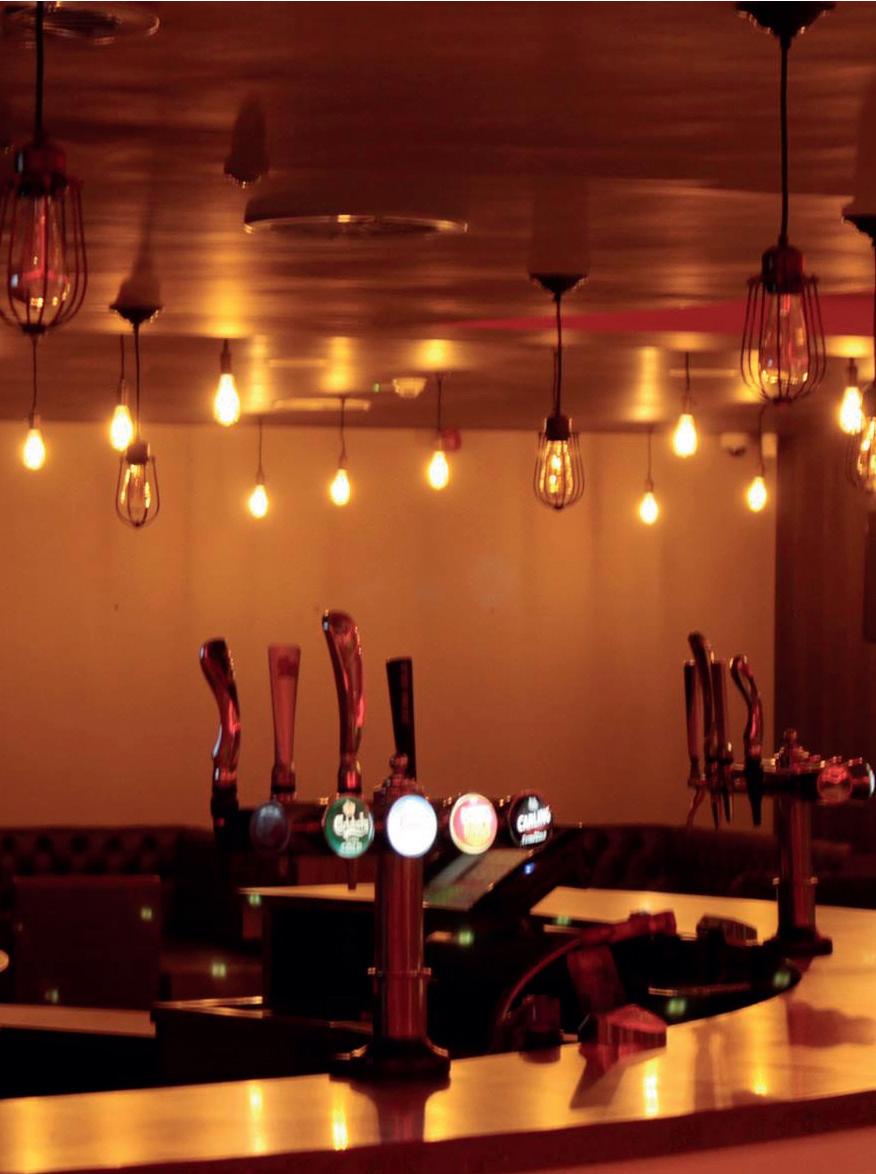

Hope not Hate stage silent demonstration
Cardiff Uni students team up with the national campaign group to launch suffrage movement
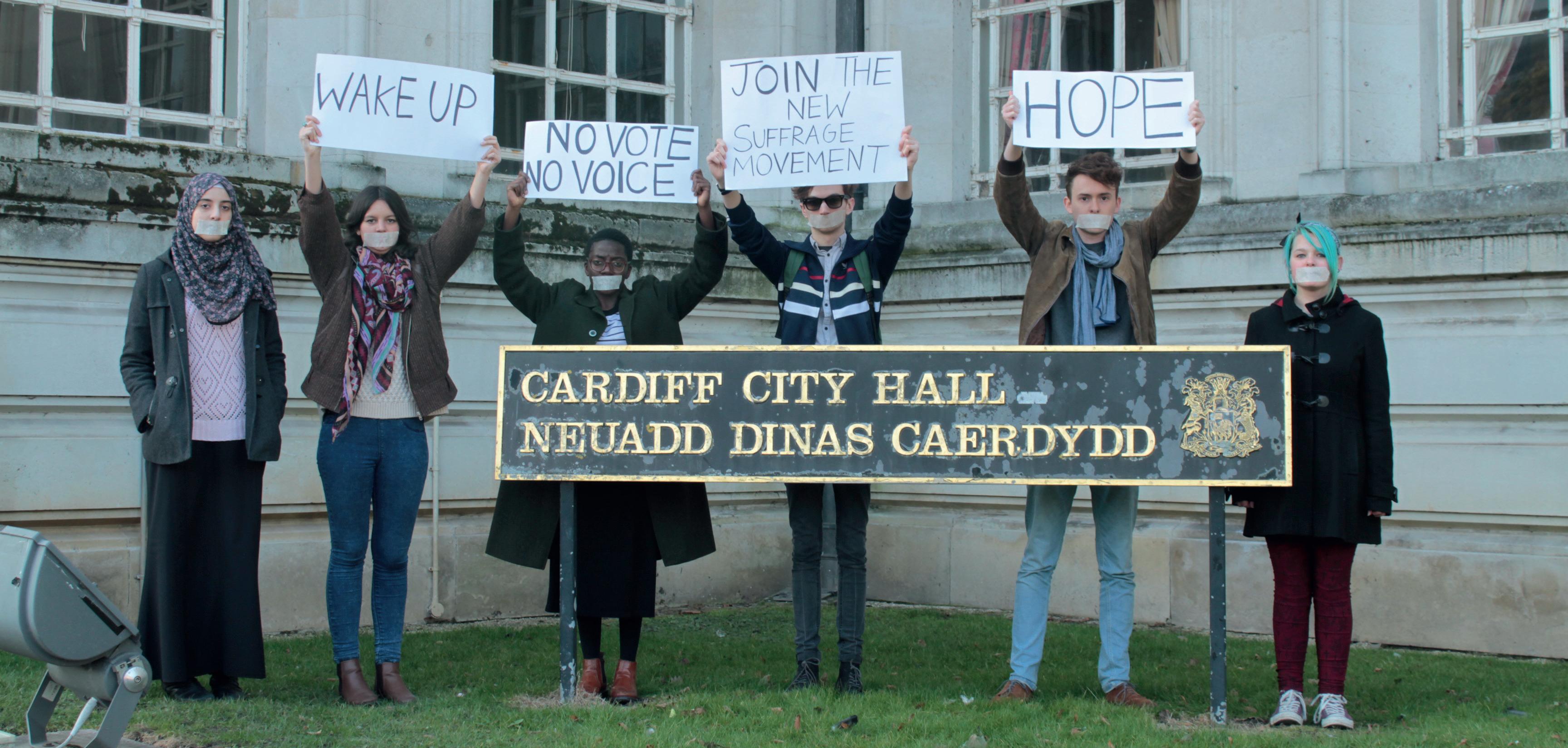
Cardiff University students gathered outside City Hall last week in a silent demonstration to launch a ‘suffrage movement’ which hopes to rouse students into voting and make their voices heard in the upcoming general election.
Despite repeated claims of political apathy among students, young people are mobilising to raise awareness of the importance of voting in the forthcoming election, with university students across the UK working in collaboration with grassroots campaigners Hope Not Hate to highlight the importance of voting.
e action took place on ursday, February 12 to raise awareness of the 14,000 students who have dropped off the electoral register in Cardiff alone this year. e group aims to encour-
age students to use their vote, with similar demonstrations being staged by university students across the UK. e event’s organiser and Hope Not Hate campaigner, omas Godwin, said: ‘Over 23,000 people have fallen off the electoral register in Cardiff. e majority of them are students.
‘ is is the biggest act of disenfranchisement in a generation, and it comes ahead of the most important and unpredictable general election of our lifetime.’
He added: ‘ is visual demonstration represents the beginning of a new suffrage movement in Cardiff. Students are using radical new initiatives to win back the vote. If we do not speak, others will do so for us.’ e demonstration follows the re-
cent revelation that Cardiff University’s student population is the second most powerful voting body of all UK universities, with the power to influence the up-coming general election, according to figures published by the Guardian.
Changes to electoral registration mean that voters are no longer registered by household, but must now register individually. As a result, 14,000 students have dropped off the electoral register.
Hope Not Hate (formerly Stop the BNP) campaign against political intolerance, staging and supporting grassroots movements ‘to build community resilience against extremism.’
Earlier this month, the campaign group organised the visit of
Although there are people that don’t take them, for lots of people that kind of music and drugs just go together
American civil rights activist, Carlos Saavedra, whose campaigning in the US led to improved rights for undocumented migrants under Obama’s administration. Last week’s demonstration marks the first of many actions organised by the grassroots organisation set to take place across Cardiff in the run-up to the general election.
Cardiff University’s Students’ Union have themselves been pushing voter registration among the student body, and will be hosting several upcoming events highlighting the issue, including a number of MP speakers from various political parties.
Students are also now able to register online to vote through the Union’s website.
Pictured: Students stage a silent demonstration outside Ciity Hall (photographer: Greg McChesney)
If we do not speak, others will do so for us Thomas Godwin, Hope Not Hate campaigner
“ ”
Katie Evans
“ ”
NEWS
Continued from front page
Georgia Hamer
CCardiff University accused of ‘bad practice’
Which? survey criticises university’s
ardiff University has been identified as a ‘bad practice’ university by a Which? investigation into course changes.
e higher education survey gathered information from 131 higher education providers about changes they make to courses once students have enrolled. It was found that over half of the providers, including Cardiff University, currently use contract terms or other policies that enable them to change courses after enrolment.
Cardiff was amongst three in ten universities surveyed that were considered to be bad practice. e University was also found to use terms that were considered by Which? to be unlawful and in contravention of the Unfair Terms in Consumer Contracts Regulations 1999.
Although it was acknowledged that ‘universities sometimes do need to make changes to courses that are justified and fair’, the report raised concerns that ‘at times this is happening in a way that is detrimental to students’.

What do you think? Have your say: news@ gairrhydd. com
A current second year Biomedical student at Cardiff University described the amount of changes to her course during her time at university as “ridiculous”.
e student, who originally applied to Cardiff University through clearing to study Genetics, was denied a place on to the course, as she did not have an A-level in Chemistry.
She commented: “ e course
specifications were not clear and I was eventually told the last place on the course had been given to someone else and that I would instead be put onto a preliminary course.
“After studying a year of Chemistry in prelim I was told in the first week of lectures that the genetics course had changed to allow for students who had not studied Chemistry A-level. Many of the modules were the same as I had already studied on the prelim course and I felt as though I had wasted £9,000 and a year of my life – something which a member of staff in the department sarcastically described as ‘funny’.
“ e content of the course was completely different from what any of us had signed up for and we were only made aware of this in the first lecture of the year.”
Last year the department introduced a common first year, designed to give a ‘broad base of knowledge’ and allow ‘those who are not sure which degree scheme they would like to follow the option to change at the end of the year’.
A number of students reported that they were unaware of the changes to their course until they enrolled.
e department admitted that the decision was ‘last-minute’ and the limited number of staff members and lecture theatres available to accommodate all the individual Bioscience subjects meant that the course delivered was different to
course
change policy
what was advertised to students when they applied.
A first year Biomedical student commented that they felt “let down” by the department, adding: “they dramatically changed the structure of the course after we had been accepted onto the course and failed to notify anyone of the change.”
“ e fact that it has been missold and we are all paying £9,000 for it makes me really think something should be done to make up for it.”
Students were offered nothing in the way of compensation and questions have been raised as to whether such practices by universities are in fact illegal, going against consumer law.
A close analysis of Cardiff University’s policy by Which? found what they labelled ‘unfair terms in relation to varying fees’.
e report also concluded that there was inadequate information available to assess the right to make other changes to courses. is information was not easy to find and it was highlighted that students are unaware of the potential changes that may be made to their courses.
A Cardiff student was cited as saying: “ e module content was advertised when I applied to university. Upon choosing [this university], my decision was largely based on course content, so as you can imagine it was a kick in the shins to find that the content of
some modules had been changed without notice. ere should be more accountability and a structure in place for change of module content to ensure that students get what they thought they were applying for. e £9000 a year tuition fees seem ludicrous when there is no fairness in the system.”
In response to the report, a Cardiff University spokesperson said: “ e Which? report raises some extremely important issues. As a University, we need time to reflect and consider the report’s findings in consultation with our own legal advice. We can, however, assure all our students that we take the issues raised extremely seriously.”
“A number of new measures have already been considered as a result of changes to the Quality Assurance Agency for Higher Education code of practice that requires information in the public domain about our courses to be accurate and we are reviewing all our relevant policies in the light of new guidance for universities from the Competition and Markets Authority.
“We have a series of robust processes in place before any course changes can occur, and we do our utmost to ensure that courses do not change without appropriate and detailed discussions with the affected students. ere will always be exceptional circumstances that arise but all mandatory or core modules are always prioritised.”
LGBT History Month: Question Time a success
Cardiff University Students’ Union has continued to mark LGBT History Month with a ‘Question Time’ style debate centred around gay, bisexual and transgender issues.
e annual observance was first celebrated in the United States in October 1994, but is held every February in the UK. It has become a celebrated fixture in the Welsh capital, with the LGBT flag once again being flown above Cardiff University’s Main Building.
The session enabled us to speak about raising the profile of groups who are sometimes forgotten about Sam Cook, LGBT+ Officer
Events put on by the Students’ Union include an Aromantic and Romantic Orientation Stall on 13th February and a Bi Poster Competition running throughout the first two weeks of the month.
Held for the second consecutive year, the event was chaired by Christian Webb and comprised a panel including LGBT+ Officer Sam Cook, Women’s Rep Cat Ross, Bi Rep Lisa Mitchell, Trans Rep Kevin Smyth and chair of LGBT+ network staff, Karen Cooke.
LGBT+ Officer Sam Cook told Gair Rhydd that the session had “enabled us to speak about raising the profile of groups who are sometimes forgotten about by society.
“We had a very open discussion which enabled the people here to clarify a lot of issues they might have felt confused about,” he added. He confirmed that the meeting
agreed to hold the first regular “bicaucus” in the near future in order to further discuss and promote the interests of the LGBT community at Cardiff University.
Standard membership of the LGBT+ Association is free and can be obtained through the Cardiff University Students’ Union website.

The university was also found to use terms that were considered by Which? to be unlawful
e panel fielded questions from the audience (photographer: Greg McChesney)
5 NEWS
Alexander Norton
Pictured:
”
“
“ ”
” Everyone should have access to books and the internet. This is the kind of thing which holds us together as a society
Police warn students over rise in bike theft
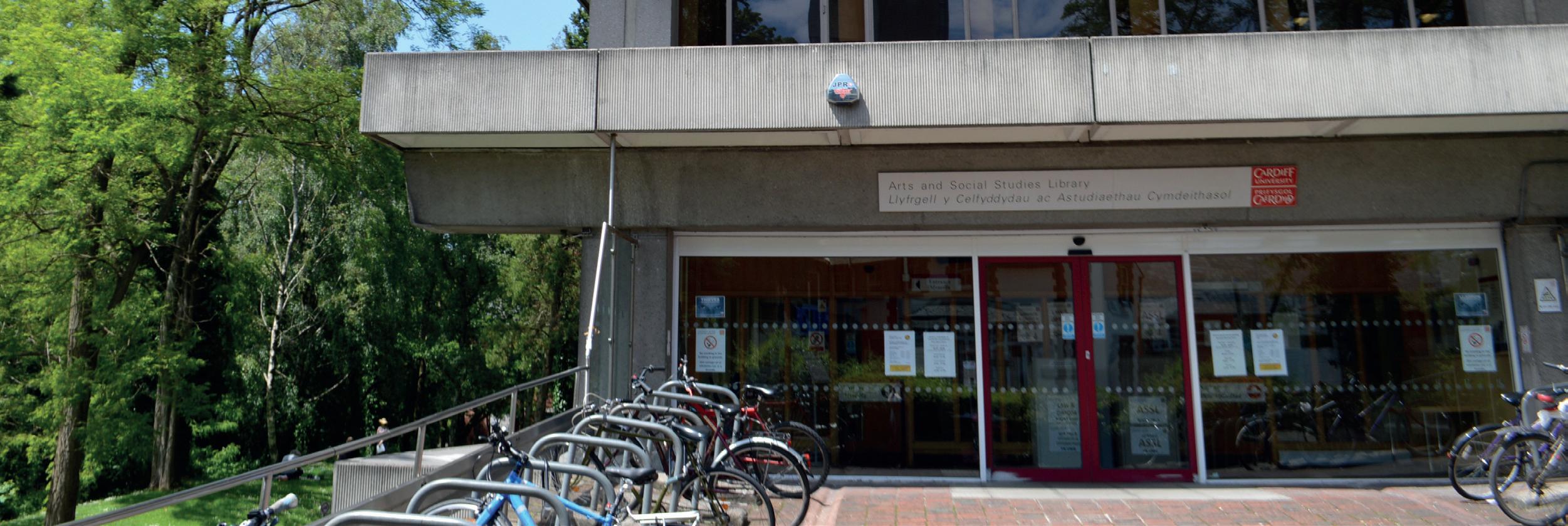
Police have warned that an increased number of bikes have been stolen on University campus, with over 70 taken during the last academic year.
Figures reveal that University residence Talybont North saw the largest amount of thefts, with 17 bikes stolen from the area. High numbers were also stolen from Senghenydd Court, Park Place and Bute building, with seven taken from each building.
Police explain that the biggest reason behind the thefts include the use of low quality cable locks to secure bikes instead of D-locks. As a safer mode to secure bikes, only two
of the seventy bikes stolen were fastened using D-locks.
Other factors leading to bikes being taken include leaving them in unsafe locations and failing to lock bicycles properly.
According to the authorities, the most commonly stolen bicycles consist of those of high value and that are easy to sell and transport.
In order to reduce theft, authorities advise students to leave bicycles in well-lit areas near to other bikes. They should be locked fastening both the frame and wheels of the bike to a fixed cycle stand.
The news follows in the wake of a string of bicycle thefts that have
occurred in student areas Cathays and Roath. According to a secondyear ENCAP student, their bike was taken after being left in a poorly lit area in Roath.
She said: “My bike was taken after not taking care to leave it in a secure area. It is a decision I regret since although it did not have a high value, it had sentimental meaning to me.”
Other accounts include a second year Biochemistry student whose high-value mountain bike was stolen from their back garden in Cathays, days after moving into his house.
Records show that 3,000 bikes have been stolen in Cardiff from 2013-14.
To prevent bike theft, authorities
stress the importance of purchasing a D-lock to secure bikes properly. These can be purchased for £17.50 from University Campus Security. Property can also be registered at immobilise.com to help repatriate stolen items.
The police are offering numerous bike-marking events over the next two months. For free bike maintenance and security-marking, go to either the Main Building on February 24th, Trevithick Building on February 26th, Bute Building on March 3rd, Talybont Social on March 4th and Heath Campus on March 5th. All events take place between 11-2pm.
Library protest success as council cuts axed
400 protestors gather outside Cardiff Central Library
Following the success of hundreds of protesters outside Cardiff Central Library, Cardiff Council has announced that it will axe its plans to cut funding to its seven libraries.
The news follows after mass protests took place on Saturday, February 7th with more than 400 students and local residents attending to speak out against the proposed cuts. During the event, participants held up posters and banners to voice their anger over previous decisions to close libraries including Cathays and Roath and convert Cardiff Central library into office space.
The grassroots protest also featured prominent members of the Welsh literature scene, including National Poet of Wales Gwyneth Lewis, crime novelist Belinda Bauer and novelist Francesca Rhydderch.
The funding cuts received wider attention after James Dean Bradfield, lead guitarist of the Manic Street Preachers, wrote a public letter about the issue. In the letter, he accused the council of turning the city into a ‘cultural wasteland’.
International bestseller author Ken Follet also criticised the plans,
describing it as a ‘Dickensian decision’ that would ‘make worse any divisions in our society’.
Expressing concerns over the library closures, the author attributed his career to the use of his local library as a child in Canton, Cardiff.
‘Everyone should have access to books and the internet. This is the kind of thing which holds us together as a society’, he said.
Talking about the protest, Cardiff student Jack Pickering explained that he attended the event after finding the council plans for libraries in Cardiff ‘inadequate’.
He said: “Being a student with massive access to books, and as someone who used libraries a lot when I was younger, I appreciate the need for them. They’re relatively inexpensive, and provide an essential and important tool for people without access to education in many cases.”
Mass petitions were also created in response to the cuts, with more than 2,500 people voting against the closure of the library in Rhiwbina.
Three days after the protest took place, the council ruling group announced its decision to stop the planned closure of Cardiff libraries
for the next 12 months. However, they explained that ‘alterative’ measures would have to be considered.
Talybont North saw the largest amount of thefts, with 17 bikes stolen
The decision to axe budget cuts was praised by Assembly Member Julie Morgan, who said: “the campaign has had huge support from the local community. People have shown their passion for libraries with artwork, music and all sorts of creative ideas.
“People feel so strongly about their local libraries and we are glad that the libraries will stay open.”
 Anna Lewis
Pictured: Bike racks outside the Arts and Social Sciences Library
Anna Lewis
Anna Lewis
Pictured: Bike racks outside the Arts and Social Sciences Library
Anna Lewis
“
“ ”
6
NEWS
Pictured: Protesters outside Cardiff Central Library (Photographer: Andrew Green)
Georgia Hamer
Unable to graduate with library fines?
Uni threaten students despite possible consumer law breach
Final year students have been receiving emails threatening that they may be prevented from attending their graduation if they do not pay outstanding library fines, despite warnings from the Office of Fair Trading (OFT) that such practices are in breach of consumer law.
Last year, the OFT wrote to more than 170 UK universities and other higher education groups, warning that halting graduations for debts such as library fees or accommodation debts could be illegal. This followed complaints by the National Union of Students (NUS).
Despite this action almost a year ago, Cardiff University continues to threaten academic sanctions to enforce non-tuition fee debt.
OFT said: ‘The OFT consider the blanket of academic sanctions in such instances, regardless of the circumstances, could breach consumer protection law. It is particularly concerned that some terms allow the university to impose sanctions on students even when they owe small amounts or a debt is disputed.’
‘Preventing progression or graduation not only affects students’ educational experience but could also significantly harm their future employment prospects and ability to pay off their debts.’
The NUS argued that the punishment was disproportionate to the offence and alternative actions, such as the limitation of the service related to the debt, were advocated as an alternative punishment which bypasses illegal activity.
In an email sent by Cardiff University libraries to final year students with outstanding fines above £10.00, it is stated that payment must be received by 12th June 2015. If students fail to do so they are warned that their details will be passed on to the finance department and ‘may be prevented from graduating’.
A University spokesperson said:
“The University ensures that every opportunity is given to students to clear educational debts. Library fines exceeding £30 are classed as an educational debt and if unresolved may result in a student being prevented from graduating. Students are contacted a number of times to resolve any educational liabilities that might result in this.
“We appreciate that this is a concern for students and are doing everything we can to ensure that they don’t find themselves in a situation where they are unable to graduate. We
have now introduced an automated alert system that informs students a few days before library books are due, warning them that late returns will incur a charge.”
Figures for 2011/2012 and 2012/2013 revealed that between this two year period Cardiff University libraries raked in £323,890 worth of library fines – a figure significantly higher than any other university in Wales.
The discovery is a reflection of a growing drug problem in the area
Acannabis farm has been uncovered in the student area Roath, after fire services were called to the property on Arran Road.
Four fire engines were called to the scene at 10am on Tuesday, February 10th after artificial lighting equipment used to grow the drugs allegedly started the blaze.
Local residents reported smoke coming out of windows of the second floor of the building. As a result, firemen were forced to break entry into the property to control the fire.
According to eyewitnesses, police vans quickly arrived at the scene and were seen to remove the cannabis plants and equipment used to grow the drugs.
It has been confirmed by fire ser-
“Fines are only incurred when library books are returned after their due date; there is no need for any student to pay fines if they return – or renew – their books on time.
“Library staff will waive fines where there are genuine extenuating circumstances such as sickness. The purpose of fines is to encourage books to be returned on time so that as many students as possible can share them.”
In response to these findings a Cardiff University spokesperson said: “The rate of fines is comparable to other Welsh universities; the difference is that Cardiff University students borrow four to five times more items than in any other Welsh university. There are more students, and we have more books available for students to borrow.

Blazing in Roath: Police uncover another cannabis factory
vices that there were no casualties caused by the incident and that all persons have been accounted for.
According to a third year student living in Roath, the discovery is a reflection of a growing drug problem in the area.
The discovery follows after Gair Rhydd reported in December that three cannabis factories were uncovered by police raids in close proximity to the Student’s Union.
A drug factory was also discovered after a fire broke out on Crwys Road in Cathays in November.
Authorities have linked the prevalence of drug factories in Cathays and Roath to the cheap cost of student accommodation, in addition to minimal interference from landlords and neighbouring students.

“
” OFT considers that the blanket of academic sanctions in such instances [...] could breach consumer protection law
7 NEWS
Pictured:
An email sent to final year students by a Cardiff University library
Anna Lewis
Pictured: Emergency services at the scene of the fire on Arran Road
”
“
John Penketh
LI got involved with Cardiff Enterprise with a view to start my own business “
Welcome to our Advice section, where we bring you tips for surviving Cardiff university life email us: advice@gairrhydd.com
Worried about completing your degree?
Despite failing his degree, John Penketh created a successful business by using some of the university’s services
ike many of you I arrived in September of first year with boxes in hand ready to make some new friends, study hard and become a ground-breaking mechanical engineer.
First year was great, being everything that university promises. Smashing things in labs, building racing cars and easy maths that I’d more than covered at A level.
With second year looming, the typical horror stories of rogue landlords and terrible houses were rife so I was keen to avoid the student rental sector if at all possible. I began drawing up a pitch to my dad on the viability of buying my own place in Cathays. He agreed, so I found a suitable house and two weeks before the start of my second year I became a home owner. This lead to me becoming a landlord by renting out the rooms to other students that had seen my advert online.
Second year ticked along nicely, with most of my time spent with my head stuck in Differential Calculus. Third year was to be a placement year which is when things started to unravel.
I found myself with a local aviation plant accidentally on a management internship rather than the engineering one that I’d applied for - just based on the way I’d written my CV.
This is where I discovered my love for making sure other people get stuff done. Rushing around millions of dollars worth of aircraft parts, making critical snap decisions and persuading favours from com-
plete strangers to make sure tight production schedules were met was a huge adrenaline buzz. All the while I could see across the office to engineering teams filling out identical report forms back to back and was thankful for my narrow escape.
The year out was incredible - so much responsibility, and the recognition that went with it, gave me a buzz. I felt like I managed an entire career in 12 months.
It was certainly one of the most influential years of my life. It opened my eyes to the unlimited potential of being the ‘boss’ and the chilling warning of what it could be like to be trapped in a desk job. I would definitely recommend a placement year to anyone who has the opportunity.
The downside to such an exciting and rewarding year out is the inevitable crash that occurs when you settle back into the audience of a warm dark lecture theatre to learn the intricacies of Advanced Differential Calculus.
I just didn’t care about it anymore. I’d seen where I thought that kind of maths might get me. Besides, I couldn’t understand it anymore. Suddenly a missed lecture turned into a fear of not having any idea what would be in the next lecture, so I’d skip that one too. I began to slack off entire weeks to sit in bed eating ice cream in my pants. If I spoke to anyone about this, they’d just criticise me for being lazy. Without anyone to check up on me, this pretty much continued for the rest of the year.


What do you think? Have your say: advice@ gairrhydd. com
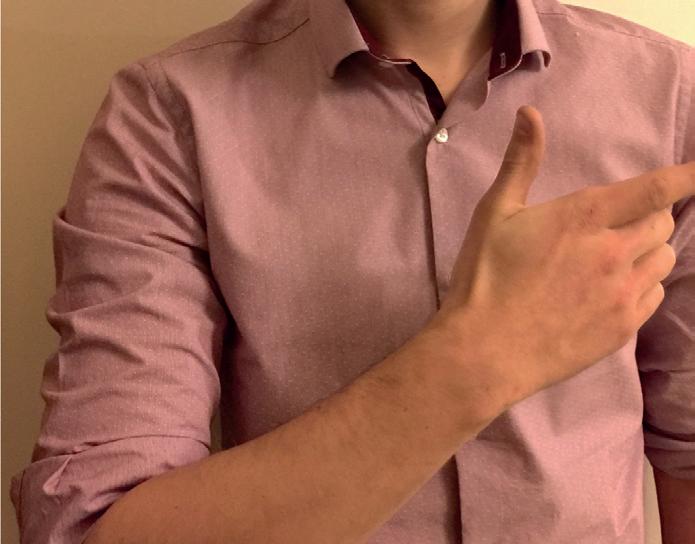
Results came around I found that I’d failed the year. I had barely attempted my dissertation and failed to arrive at several exams, so it wasn’t such a surprise.
This was the all-important red flag that my family and tutors needed. I got directed to Student Support who provided me with a counselling service where for the first time I was able to chat about some of this stuff. Suddenly everyone wanted to know what was up. I had friends, lecturers and even siblings coming out as having faced very similar feelings. Suddenly things didn’t seem quite so embarrassing and lonely.
I had to resit third year on medical grounds, repeating the modules that I’d missed the previous year. I ticked along at half the workload with full support from an awesome set of friends. I had spare capacity to start thinking ahead to what I’d like to do once I’d received my low-classification degree. This made me realise that the only person who might employ me would likely be myself. This was super frustrating having witnessed first-hand many people with high-classification degrees who were terrible at their jobs!
I got involved with Cardiff University Enterprise with a view to start my own business. I had no idea what, just that it would be my own. I attended nearly all the events they put on, scooped some generous prizes for a couple of competitions and got a lot of free pizza along the way. I learned so much about business but the most valuable part was the network of people involved. Whether


students or successful mentors, the people you meet are full of great ideas and the courage to take them forward. I am often calling up new acquaintances to propose collaboration deals.
Even if you aren’t set on starting your own business, the kind of skills and CV trophies you can pick up through Enterprise are the stuff employers are looking for. My latest involvement saw me getting handed the keys to Enterprise’s Launch Box (the old IT Help Desk in the Students’ Union) for the entirety of Refreshers’ Week in January to launch my new business and promising career. It is ‘My House Mate’ - Cardiff’s new ‘No Fees Letting Agent’. The idea came about from repeatedly hearing students ask each other to recommend a good letting agent. The usual answer is one steering people away from certain companies with horrific stories, but as I’d essentially been a landlord for the past four years my answer was clear. It become an obvious path.
To a landlord we offer an incredible rate, and a personal, ‘switched on’ management service that’ll keep them from being billed hundreds for an electrician to change a light bulb.
To a tenant we offer no agency fees, now and forever. Did you know that agency fees to tenants are outlawed in Scotland? To give you an idea, for an agent were to reference a tenant it costs between £1 and £20. So compare that to the letting agents charging £100 for agency fees and you realise that they do rip you off.
I’ve coupled this with a much

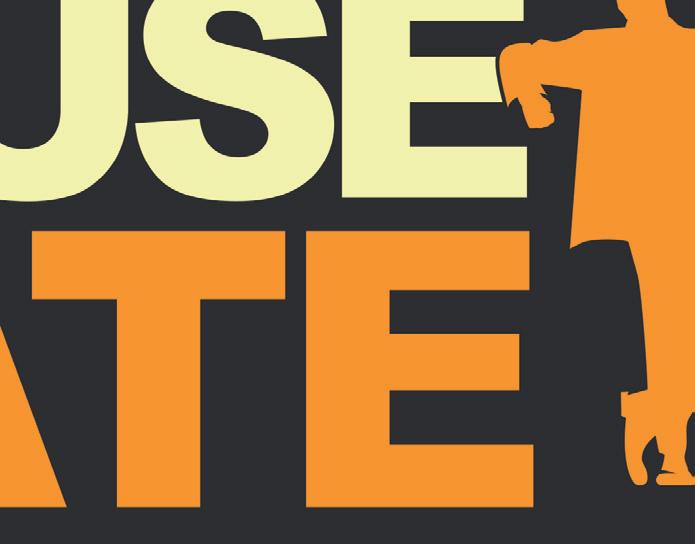


I had friends, lecturers and even siblings saying they too had faced similar problems

ADVICE
“ ”
”
Pictured: John Penketh with his business’s logo Visit My House Mate at http:// tinyurl.com/ mpx9pra
Continued from the previous page >>
more balanced landlord/tenant relationship. We’re not, as can be the case, entirely in the pocket of the landlord. If any landlord ever reached the much feared ‘rogue’ status and refused things like fixing your boiler quickly, we’d stand up and ask, “Is this okay in your granny’s house?” - which is hard for landlords to agree with. In the worst cases where landlords aren’t cooperative we’re prepared to risk our business relationships with them to ensure people are living comfortably and receiving their contractual entitlements. Bad landlords aren’t the kind of repeat business we want anyway. At the moment based on personal referrals we’ve got a number of student properties still available for next year with ideal landlords who care about their tenants and know them by name.
You can find out more by reaching us through our Facebook page
at www.facebook.com/MyHouseMateCardiff, and find the tab to our ‘refer your landlord’ scheme. If you refer My House Mate to your landlord and they agree to rent through us, you will receive a reward of cash anywhere from £50-£300 for making successful introductions.
So what’s my advice to anyone who’s interested? Firstly, speak up about your problems. You’ll realise that you’re surrounded by people who can and will help you. Secondly, if your degree is not working for you, remember that you can get so much more out of uni than that roll of paper at the end. Start using the wealth of support services while they’re still available to you. Lastly, if you’re not happy with something make a point of changing it, whether it’s a career path, or agency fees.
For more information on Student Support’s services visit www.cardiff. ac.uk/studentsupport

Looking for support with an eating disorder?

Student Minds Cardiff is a student led service aiming to support students with eating disorders. ey hold weekly self-help support groups run by fully trained student facilitators every ursday with the aim to create a safe environment for pro-recovery discussion. Anyone who wants to attend is encouraged to bring friends or family along if they don’t want to go alone, especially as their support is key.
ey also run regular events to raise awareness about mental health. Next week is Eating Disorders Awareness Week with many events throughout the week to raise awareness and
reach out to people to get involved. e first of these events is ‘Sock It to ED’ on 23rd February, an event giving out 300 pairs of socks for free. In return they want you to post a creative photo with the socks to their twitter or facebook. Pictures will be judged and the best will win prizes handed out at their ‘Music Gig’ event on 26th February in e Vulcan, which will also include a raffle and two confirmed live acts. ere is a dodgeball tournament on the 24th February in e Great Hall, with space for eight teams of five or more players. e Service for High Risk Eating Disorders (SHED) are also giving a talk on
25th February by Dr Menna Jones, a clinical lead at SHED. Someone who has used the service will also be talking about their experience, so it is a great opportunity for people to hear what it’s like to use the service and to ask questions.
Alternatively, another eating disorder support service is Beat. ey provide self help and support groups for anyone suffering from an eating disorder in various stages of their illness or recovery, as well as support for carers, families and friends. ey give the opportunity to meet people in a similar situation and share experiences, thoughts and successes with
two facilitators. You do not need to be referred to the groups and there is no pre-registration. You only have to turn up. ey meet twice a month at Cardiff Minds on Newport Road. Similarly during Eating Disorders Awareness Week they are running events to raise money for the charity that anyone can get involved in. One way to raise money is for volunteers to organise a day of wearing silly decorated socks and donating money. You can request a free fundraising pack from their website for tips and advice on events you could organise. Visit their website at http://www.cardiff beat.moonfruit.com
referring your landlord to My House Mate you could earn a cash reward
Eating Disorders Awareness Week runs fro 23rd-26th February with many events aiming to raise awareness “ ”

See all the events at http://tinyurl. com/opgobtl
9 ADVICE
“ ”
By
Awareness week: ‘Sock it to ED’ sock giveaway 23rd February12-4pm Food Court, Second Floor, Cardiff Students’ Union Awareness Week: Dodgeball tournament 24th February 6.30-8.30pm The Great Hall, Cardiff Students’ Union Awareness Week:
standing eating disorders talk 25th February 6.15
7.30pm Room 4J, Cardiff Students’ Union Awareness
The Vulcan
Under-
-
Week: Music Gig 26th February 8-10.30pm
Pictured: Eating Disorder Awareness Week banner
Kirsty Fardell
Pictured: Stairway in the Student Support Centre (Photographer: Sum Sze Tam)









Cardiff Student Letting OWNED & RUN BY CARDIFF UNIVERSITY STUDENTS' UNION TEL: (029) 20781525 | www.cardiffstudentletting.com call US on 029 2078 1525 cardiffstudentletting.com NO agency fees
FOR: Sally West
FOR & AGAINST
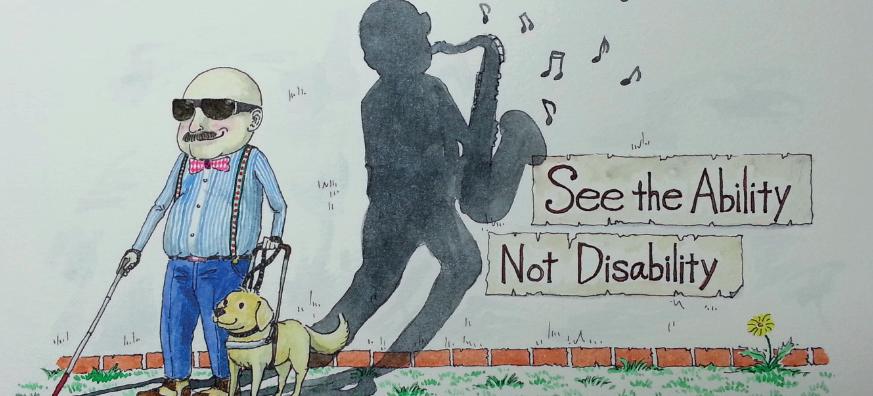
DISABILITY IN THE MEDIA
Does the media accurately represent the disabled?
The media is one way in which we have become more informed about living with a disability. e more talked about the subject, the less taboo it becomes – therefore, by broadcasting these shows through popular mediums like Channel 4 (including their inadequately titled programme e Undateables) our understanding is subconsciously aided… surely this can only be a good thing?
e Undateables somewhat destroys the invisible segregation that exists between able-bodied people and disabled people. As a population we are guilty of viewing disabled people as incapable of having relationships, or any kind of sexual desires. We patronise them without being aware, viewing them as non-sexual beings. is notion is trivialised in the show, focusing on the individual rather than the impairment.
e Undateables allows us to see life through a different perspective; no kind of impairment harms the human need to be loved. Viewers engage with the show’s participants on a humane level; the show invokes a lot of negative and positive emotions. Negative because why should they in the first place have to resort to a television show, but positive because there is empowerment in their freedom of choice, choosing to utilise the show for their relationship needs. It also challenges the idea that disabled people are under-represented in the media.
Channel 4 is one of the leading media outlets broadcasting shows of this type; their show “Born to Be Different” films families over the course of a decade and gives an unsentimental insight to the struggles and joys of being a parent to a disabled child. ese people are often pitied, depicted in
a sympathetic way. It would appear Channel 4 has been a driving force behind the reform, having these shows has undoubtedly created a better understanding of the troubles they face in modern day society, and their positive attitudes is an inspiration to us all. eir participation in the media is conscious and allows them to explain their lives, detracting away from any prior expectations we may have had.
Being able to say that disabled people are fairly represented in the media is a bold statement, perhaps one that we are driving towards rather than having fully achieved it. We are a long way from truly representing the disabled - there is no doubt about thatbut we are taking small steps towards doing so. Where is the proof for this?
Take the trial of Oscar Pistorius for example. Was he afforded any kind of special treatment by the media in terms of his disability? No, he wasn’t. General public opinion focused on him being guilty of murder, regardless of his disability and the possible associated connotations of being physically incapable of such a crime. Sympathy was in short supply.
In opposition to this view, people have labelled e Undateables as a “freak show”. As savvy, informed consumers of this media industry we live in there is a conscious choice to how you receive this kind of media. e Undateables is somewhat alternative, but it is up to you how you read it. e way it is edited is endearing, informative and there is a real connection with its participants. ey are not characters, it is real life. ey need to be loved, they want relationships just like everyone else, and I think it’s really important for the media to portray this feature.
While some advocates may draw our attention to the positive advertisements and portrayals, such as celebrating the 2012 Paralympians for their strength, I believe it is safe to say that people with disabilities are drastically underrepresented within the media. With the exception of Liz Carr playing the disabled character Clarissa Mullery in Silent Witness, television dramas tend to shy away from incorporating strong and capable disabled characters into the script. It is widely acknowledged that the media, particularly television, struggles with portraying disabled people in the mainstream.
Why is this? Why has disability become a ‘taboo’ subject that we shy away from and continue to stereotype? It may be the 21st century, but the fight for the fair and equal representation of disabled people is far from over, and programmes such as Channel 4’s ‘The Undateables’ really aren’t helping the situation. The title speaks for itself, let’s be honest; it is laced with the underlying promise of a ‘snapshot’ into a world that the majority of us regard with a morbid curiosity yet know little about. It’s a title that invites us to view those with physical and mental disabilities as different and ‘not like us’, immediately placing negative and discriminatory connotations on those who may look or act just a little bit different from ourselves.
And indeed, few television programmes have generated so much controversy from their title alone. As a dating show for people with disabilities who are unlucky in love, Channel 4 maintain that; “The programme title is intended to challenge
preconceptions about disability and we hope that the attention around the series will help stimulate debate around some of the important issues the programme touches on.” Yet the title itself, and arguably the programme content, unavoidably seems to suggest that those with disabilities are only worth the love of other ‘undateables’, therefore solidifying the preconception that those with disabilities are somewhat unworthy of being treated as a complete equal within society.
As a student with a physical disability, I find myself infuriated by representations of disability in the media that seem to denote 21st century versions of ‘Victorian circus freak shows’, as the Sunday Mirror so ferociously put it in their critique of the dating show; labelling it cheap and exploitative. I am inclined to agree. We need more strong disabled characters to infiltrate our British dramas, we need more commercials championing Paralympians as warriors, we need more positive campaigning and public discussion within the media to unshackle disability from its chains as a ‘taboo’ and unpleasant concept. What we do not need is titles of shows ridiculing disabled people for their illnesses and reinforcing dominant ideologies.
Negative stereotypes still exist in the government today, with Lord Freud commenting that disabled people are unworthy of the minimum wage. e media has the power to change negative stereotypes such as these through more extensive and positive representation, but it has a lot of work to do if it’s going to rectify the current misconceptions that exist around what it means to be disabled.
beyond our judgemental selves (via United Nations Development Programme, Flickr)
Why
has disability become a ‘taboo’ subject that we shy away from and continue to stereotype?
11 COMMENT
AGAINST: Emily Jones
The Undateables somewhat destroys the invisible segregation that exists between able-bodied and disabled people “ ”
Pictured: Seeing
”
“
COMMENT
Does the Students’ Union neglect mental health?
Tim
Nagle on the SU’s failure to follow the Time to Change pledge with action
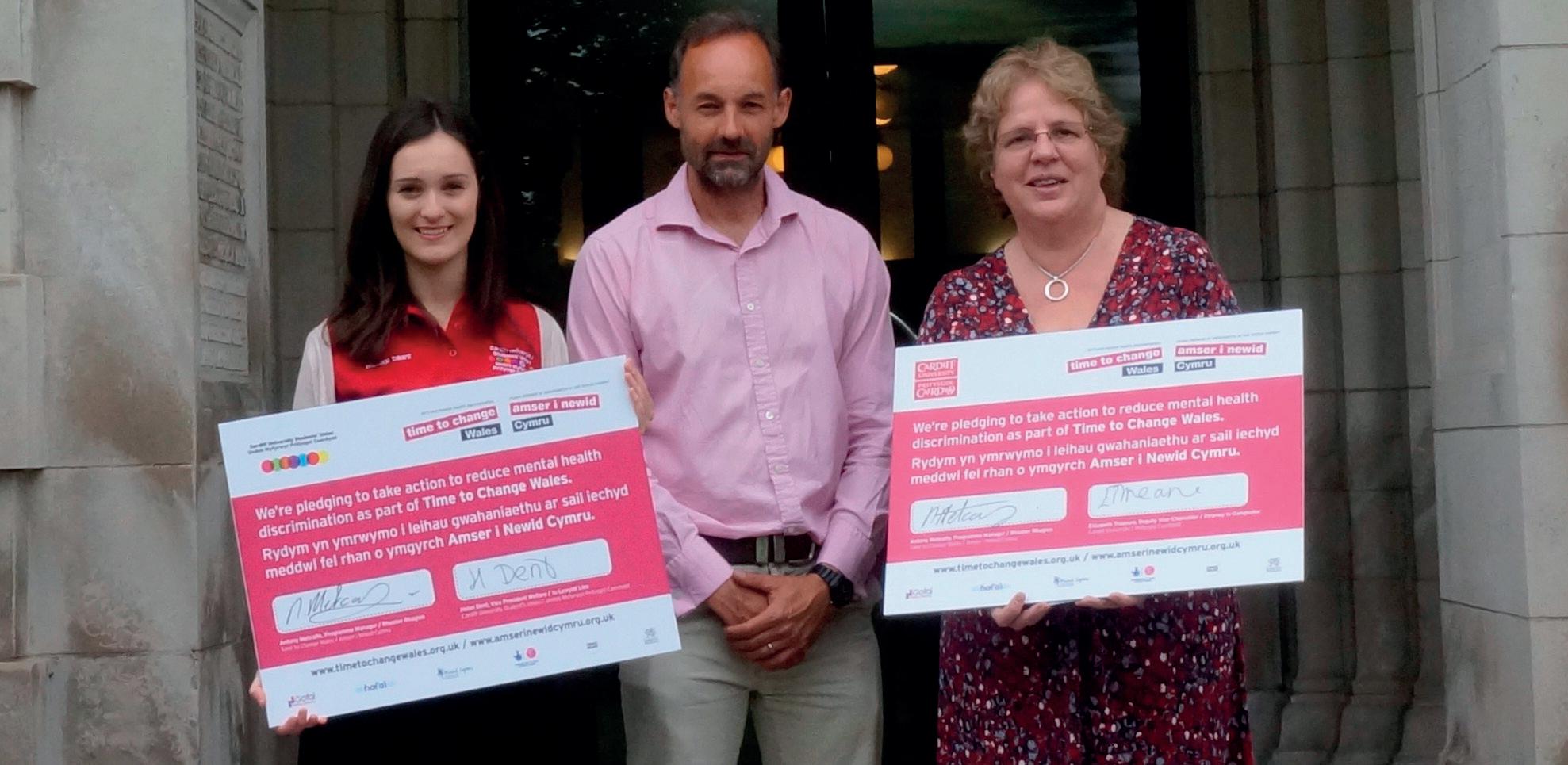 Tim Nagle
Tim Nagle
On February the 5th the Students’ Union took part in a National Voter Registration day. Another campaign was running on the same day that I was expecting the Students’ Union to engage with. This was the #TimeToTalk campaign organised by Time To Change, a campaigned designed to encourage people to have a short conversation about mental health in order to raise awareness and reduce stigma. The Students’ Union have signed the Time To Change Pledge, the current VP Welfare made the point in his manifesto that more needs to be done to reduce stigma and increase support for those with mental health problems as mental health difficulties can affect everyone. Students who may be away from home for the first time, who may be struggling to make friends, or are struggling with their course may be more at risk.
politically and within the health services.
In the spirit of the Time to Change campaign I feel it is important to talk about my own experiences, Over the last ten years or so I have suffered with episodes of depression. To cope with my feelings I have isolated myself, harmed myself physically and started to drink heavily. In my first episode I did not seek support from anyone. I avoided my university exams and moved back in with my parents.
Mental health issues are unavoidable. Since 2011 over 1700 mental health beds have closed
Mental health issues are unavoidable. Since 2011 over 1700 mental health beds have closed and there have been closures in Wales due to limited funds and a drive towards more community care. A quick look on several political party websites showed me differences which are striking. The Conservative party website made no reference specifically to mental health but linked the future of the NHS to the economy, welfare changes and efficiencies. The Labour party promises to deliver real increases in children’s mental health services, to increase mental health training for health staff and teachers and to deliver a 28 day waiting time for access to talking therapies. The Liberal Democrats and Plaid Cymru both want a parity between physical health and mental health which would involve huge culture shifts
My most recent episode occurred around two years ago. I do not know what triggered it but it was almost certainly linked to money worries, being bored with the job I had at the time and, again, resorting to unhelpful coping methods such as alcohol or self-harm. These are unhelpful as spending money on booze worsens any financial concerns creating a downward spiral which it is hard to escape from. It is however, easy to see this now, the drinking blocked out all the negatives I thought and problems I felt too useless to solve. I felt in control, and felt a release (and a weird kind of pleasure) when harming myself.
It reached a point where I lost all control. I was admitted to A&E several times within a week having overdosed. On the third visit to A&E I was detained under the Mental Health Act.
By the time I was sectioned I had developed a physical dependency on alcohol and was detoxed, a genuinely terrifying experience and one I never hope to repeat. I was given support to cope with cravings, prevent relapse and find other ways to cope with my own thoughts other than blocking them out with alcohol.
During my few weeks on the psychiatric ward I met some staff and student nurses who I will never forget. I remember being encouraged to get better and do what I wanted to do with my life, something which may be easier or more challenging had I not lost my job and did not feel particularly confident. I remember them fondly however as I am here now, doing what I want at university and have a restored confidence. I still have periods where my mood is low, I lose all motivation, cannot sleep more than an hour or so for days on end but I am much more aware of the support available to me and how to access it. I am not afraid to go to my GP, my personal tutor, my wife or anyone else I think can help and I can talk to about what is happening and how I feel as after ten years of bottling things up and not talking I am aware of how much of a help it can be.
Since I have been at university I have not accessed any of the support services available to students but made a point of finding out about them and how to access them should I need to. One student has said ‘Student Support are fantastic…but students should be able to feel they can talk about [mental health] with peers’ and this is an important point that the Time to Change campaign wanted to change. When we talk to each other about our health it will almost always be about our physical health, ‘I’ve got a cold’ or ‘I was being sick’. It might be different though if someone said ‘I wasn’t in yesterday because my mood has been really low’, or ‘I have bi-polar and have been through a manic phase’. Why is it different? A lack of understanding? A disbelief? Fear? Imagine living in a house or flat
with friends who all knew there was something going on but felt uncomfortable talking about it.
There is a lot of great work done in Cardiff to raise mental health awareness. Student Minds run campaigns and support groups to raise awareness of mental health in general, specifically eating disorders. ‘Eating Disorders Awareness Week’ is coming soon with events across the university. The Students’ Union also runs ‘Mind Your Head’ week. These are just two examples of events which raise awareness and provide information to students about coping methods and support which is available but this highly successful campaign feels like a missed opportunity.
When asked why the Students’ Union was not involved with this campaign, VP Welfare, Faraz Allaudin said ‘we only learnt about the event a day and a half before so we couldn’t plan anything big for it…I had been trying to meet the Time To Change coordinator since the beginning of the year and had no prior information’. SU Presient, Elliot Howells said he was ‘unaware of the campaign even happening’ and Student With Disabilities Officer, Vidya Brainerd said ‘I have been really busy organising other events alongside my studies and it just slipped my mind’. Faraz did point out that on 18th February the Students’ Union will be involved with University Mental Health Day. The fact that the Students’ Union missed the #TimeToTalk campaign, wiping it off the agenda, is simply unacceptable. Mental health issues are of vital importance to society, and we shouldn’t ignore them. A University has a responsibility to care for the mental health of its students – so it should fulfil it.
Faraz did point out that on 18th February the Students’ Union will be involved with University Mental Health Day
“ ”
”
“
Pictured: Previous welfare officer Helen Dent signing the Time to Change Pledge
Source: Cardiff University
tweet us @gairrhyddcomment email us comment@gairrhydd.com or visit us online at gairrhydd.com/comment
Zero Tolerance must be met with collective action
The difficulty of tackling sexism in our
SU
 emily Jones Greg mcchesney
emily Jones Greg mcchesney
After a number of assaults in the Cathays area last week, sexual harassment has become a hot button issue for Cardiff University. Last week, Gair Rhydd reported two incidents of students being harassed on their way home from ‘Y Plas’ nightclub at the Students’ Union, and a further student being followed and cat-called for an extended period simply for being outdoors after dark. While Cardiff University takes an official ‘zero tolerance’ approach to sexual harassment, it is very difficult to police; much of sexual harassment goes unreported because many do not understand what the term ‘harassment’
entails.
For many students – ourselves included – we often do not realise that unwanted sexual attention in nightclubs (the groping and ass-grabbing without consent, the uncomfortable bodily proximity and the cat-calling ) all constitute sexual harassment. The fact that many forms of sexual harassment have become naturalised within society only exacerbates the issue. While the Students’ Union can’t necessarily police the entirety of their premises and Cathays, they can provide information and workshops regarding sexual harassment, informing the student populace of what
Iconstitutes harassment, preventative measures and how to react should the situation arise. If the evidence dictates that young women are at greater risk walking home after nights out, the Union should perhaps consider providing safe transit to these at-risk students. For societies, committees should attempt to curb any behaviour from their members that could be deemed as harassment, and if they aren’t already, they should be actively promoting a welcoming, safe environment, arguably the keystone of any society.
Despite all these possible measures, ultimately it is up to us as individu-
als to realise the seriousness of sexual harassment. The lad culture that has materialised is not acceptable; we need to change people’s perceptions of women and respect, and the university can only do so much to encourage this. There is a myriad of measures we can take to control and eliminate the cases of sexual harassment in the Students’ Union, on the streets of Cardiff or indeed any city in the UK. However in order to truly ‘nip it in the bud’, we need to inform children from a young age of the unacceptable nature of harassment of any type, something that begins long before we ever stroll through the doors of university.
I am a test tube Catholic
Being religious doesn’t contradict my support for IVF
am a test tube baby. I was created in a petri dish in the middle of England in 1993 whilst my parents looked at me through a microscope. According to them at least, I have been able to produce some happiness to the extent that the exhausting process was worth it.
But the problem is that I am Catholic - and that's where I become an anomaly. I am a member of a somewhat surreal group that are caught between two different worlds that have totally opposing views on whether IVF is an ethical solution to couples that have difficulty conceiving. I know my parents struggled with the decision to use IVF; from a faith point of view, it’s an enormous faux pas. It's deemed by the Vatican as unnatural and results in the termination of fertilised eggs. From a Catholic standpoint, this is the termination of a human life; something that does not sit easily with me. But I still see the passing of the three people IVF as a fantastic step forward. However that
means I fall out of line with Catholic doctrine. It is an awkward situation.
My issue with the Catholic stance of this new development is that I appreciate the extent to which couples want children. People struggle with the inability to conceive, and IVF is genuinely seen as a saving grace. It is a brutal process - something not highlighted enough. Months of injections given on strict daily schedules, a stream of appointments - it's a tough decision to commit to. Couples who sign up to this treatment are hardly the bearers of genetic manipulation and abusers of medical ethics. I can hardly turn around to my parents and criticise their decision. How could I - someone created in a lab, be opposed to it? To say I am against such forms of conceiving would be such hypocrisy. But then isn't calling myself a Catholic and advocating IVF a contradiction too?
This new form of IVF would enable approximately ten couples a year to have children that are born free of
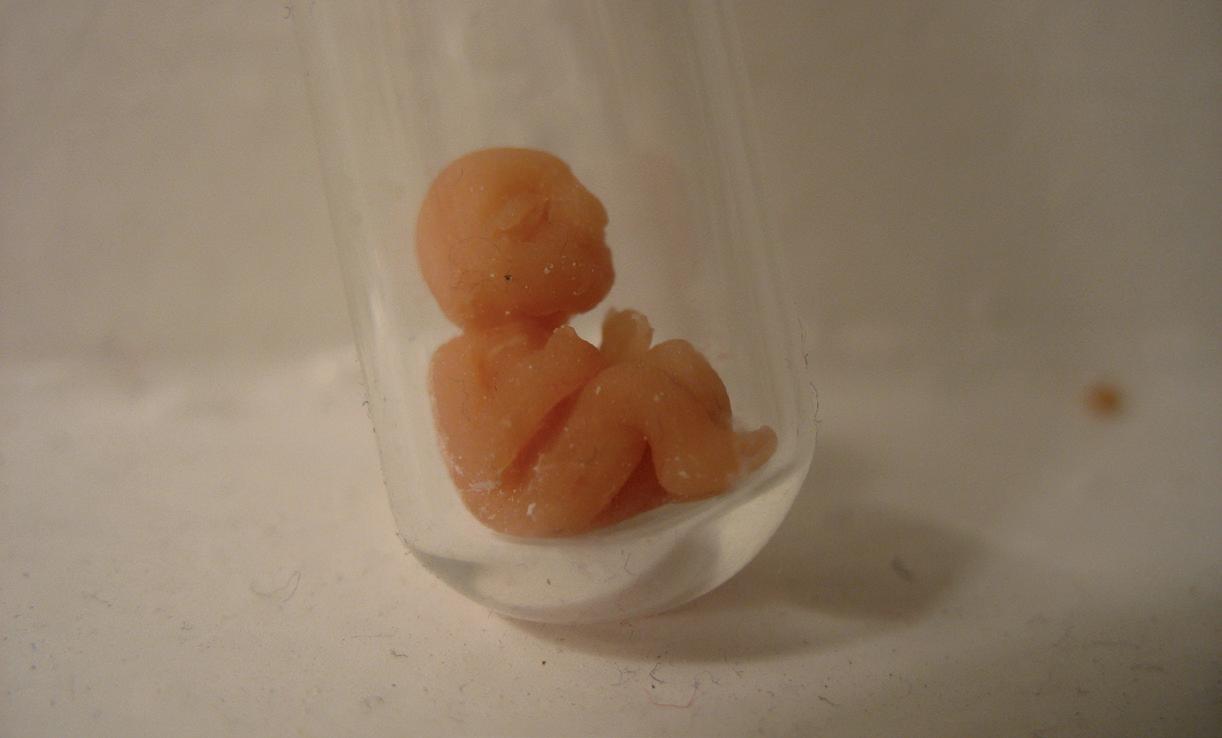
certain genetic diseases. A minority group yes, but it will make an unfounded difference to them.
Am I pleased three person IVF have been passed through parliament? Absolutely. I know I'm at risk of sounding like a GCSE answer to a question on ethics, but despite a slight Catholic guilt gnawing at me
for my support - it is essential that this is an option. No, I haven't had a sit down chat with my parents so they can convey the emotions of the IVF journey, but isn't it justified that they used available techniques to have children? Having children is a right. And aside from it being my fun fact I tell people, I'm hardly unnatural.
For an extended version of this article, see our website - www. gairrhydd. com/ comment
13 comment
Pictured: Cardiff Students’ Union
Pictured: The test tube baby
Source: Brendan Dolan-Gavitt, Flickr
olivier van den BentKelly
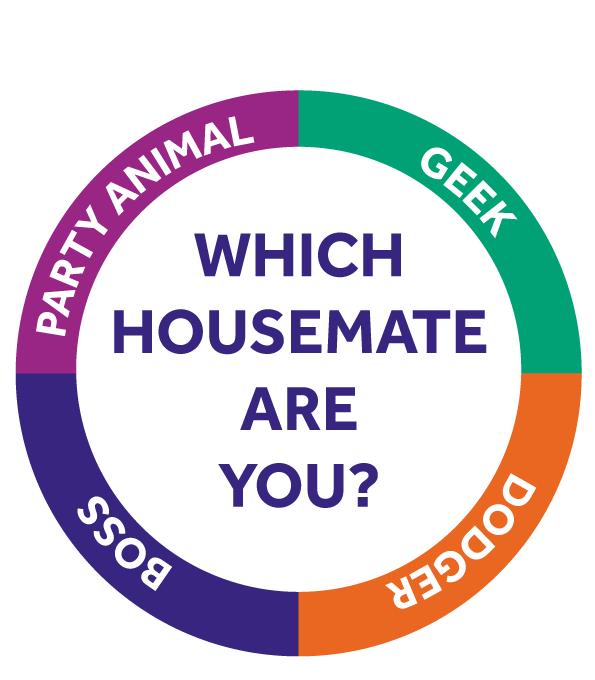





Terms and conditions apply. Endsleigh Insurance Services Limited is authorised and regulated by the Financial Conduct Authority. This can be checked on the Financial Services Register by visiting its website www.fca.org.uk/register Endsleigh Insurance Services Limited, Company No.856706 registered in England at Shurdington Road, Cheltenham Spa, Gloucestershire GL51 4UE. Take the quiz for your chance to win a month’s rent for you and your housemates. Visit: hub.endsleigh.co.uk/housematequiz Insurance recommended by
Jason RobeRts vs the

Bow Down Bitches
The cult of Beyoncé has gone too far
Jason Roberts
As you may have heard, a couple of weeks ago, Beyoncé Giselle Knowles-Carter attended the Grammys. The whole event looked pretty cool! There were celebrities and high-end drug dealers everywhere, so I’m assuming there would have been a load of fancy booze and canapés. On top of all the pricey food, drink and cocaine, LL Cool J was overseeing the whole thing. What could possibly go wrong?
ering he’d have made thousands of haters look ostensibly foolish whilst simultaneously highlighting his selfperceived sense of genius. Regardless of his intentions, Kanye’s almostintervention was pretty interesting, not because it was the second time he’d done it, but because it demonstrated the sort of slavish devotion that Beyoncé inspires amongst her faithful.
It’s hardly surprising; more obsessive oddballs means more ivory backscratchers for all the execs on the board
Well. Although she took home three awards for Best Child, Best Husband, and Best Friends (shared with the House of West-Kardashian) she was passed over for Album of the Year in favour of Beck, a man famous for his unique brand of folk-rock as well as his uncanny resemblance to delightful weirdo Wes Anderson. This shouldn’t have been a big deal. I mean, it wasn’t a total travesty; unlike the Best Rap Album category, which is so often a total shitshow. Both were very good albums, it’s not like one was absolutely vastly superior to the other.
But regardless of the quality of the albums, it really wasn’t a big deal because it’s widely appreciated that pretty much nobody gives a fuck about the Grammys. The Simpsons knew this more than 20 years ago, and we know it now. All of us, except one man: KANYEEZUS KARDASHIAN NORTHWEST THRONE.
It’s entirely possible that Kanye’s been trolling us this whole time. I really wouldn’t put it past him, consid-
Musicians have always attracted fanaticism of all kinds from Beatlemania to Beliebers, and record labels actively encourage it. It’s hardly surprising; more obsessive oddballs means more record sales, which means more ivory backscratchers for all the execs on the board. This probably explains why more musicians than ever are attempting to generate their own group of militant misfits through the power of social media. This is perhaps characterized best by the screaming hordes that make up the prepubescent mass of Directioners and Beliebers.
But Beyoncé fans are an entirely different animal. With Beliebers and Directioners, there’s the thought that although they’re annoying, they’re merely representative of teenagers manipulated by the culture industry into purchasing shitty music and the associated fandoms that go with it. Beyoncé fans are different because they’ve elevated her from Bey to Queen Bey; from Queen Bey to a goddess to be worshipped at the National Church of Bey. Beyoncé has become an icon, in the very literal sense of the world.
Her backstory and persona are undoubtedly part of what makes her so conducive to deification. A young black girl from Houston who rose to become one of the most prominent artists of the 21st Century, as well as one of the most important contemporary feminist figures in modern society, is absolutely a story worth celebrating. The fact that she remains so personable, charitable and human after almost 20 years of celebrity is even more so. But in recent years, her presence on Instagram and Twitter has inspired a level of adoration that now makes her immune from any sort of wrongdoing or controversy. She’s not only immortal, she’s bulletproof too.
Admittedly, Beyoncé tends not to court too much controversy, which is actually pretty impressive considering how much time she spends with Kanye. But she’s by no means spotless. At the same Grammys where she was snubbed in the eyes of some, she closed the awards with a cover of Take My Hand Precious Lord, which was featured in the recent Martin Luther King biopic Selma.
Her performance was reasonable. But the soul singer Ledisi, who portrayed Mahalia Jackson (who performed the original song) in the film, was sat in the audience. It appears she had not been asked to perform the song, despite having done so beautifully in the film. Of course, as soon as Bey finished her final note, praise flooded in from all corners of the Internet. Those who initially objected to Bey’s version of the song
were branded HATERZ, even though that position has been solidified and written about more extensively in the last few days. It later transpired that Beyoncé had asked the producers of the show to perform the song, without consulting Ledisi. As John Legend, who performed alongside her, said, “You don’t really say no to Beyoncé…”
In the past, Beyoncé has performed for Colonel Gaddafi’s family, used animal fur in her clothing line, and became embroiled in a controversy regarding the launch of a Beyoncé video game which was axed and left 70 people jobless over Christmas. The thing is, these are pretty normal occurrences for celebrities as big as Beyoncé. Performing for the family of a murderous dictator in return for exorbitant sums of money is a privilege that very few people on this earth get to enjoy, and Beyoncé’s decision to perform is entirely on her conscience.
And that’s why it’s dangerous to deify her. Let’s not get misunderstood here: Beyoncé is a massively important cultural figure who is entirely deserving of her huge fanbase and her position as a role model to millions of young women, a position that she treats with an admirable amount of responsibility and pride. But by making her immortal, we’re placing an unreasonable amount of pressure and responsibility on a single, fallible human being. Let’s start treating her like one. Because, if she ever falls from grace, it’s a long way down from heaven.
Queen Bey overseeing her subjects (that is, you and me)
They’ve elevated her from Bey to Queen Bey; from Queen Bey to a goddess to be worshipped at the National Church of Bey
15
WoRld
“ ”
Pictured:
“ ”
“It is the biggest banking leak in history with over 30,000 accounts, some belonging to international criminals
POLITICS
Want to evade tax? Bank with HSBC
Tory peer at centre of banking scandal
HSBC actively aided some of its wealthiest clients in evading taxes on accounts worth more than 100 billion euros, according to leaked files finally brought to light on Sunday. e bank’s Swiss department is revealed to have advised clients on how best to dodge local tax authorities through offshore accounts, switching account holder statuses, setting up hidden Swiss accounts and smuggling bricks of cash in little used foreign currencies, among other methods.
e revelations originate from whistleblower Herve Falciani, an IT worker who stole offending data from HSBC databases in 2007 and subsequently passed it to French authorities whilst on the run. Falciani’s files have only recently been publicised however, through a collaboration of outlets including the Guardian, Le Monde, BBC Panorama and the International Consortium of Investigative Journalists. It is the biggest banking leak in history with over 30,000 accounts from 203 countries included, some belonging to international criminals and other high risk individuals.
Yet Falciani himself asserts that it is “only the tip of the iceberg.” In an interview with Le Parisien the whistleblower said: “ ere’s more than what the journalists have. Sev-
eral million transactions (between banks) are also in the documents I transmitted. ese figures could give an idea of what lies at the bottom of the iceberg.”
Falciani, who has been dubbed the “Snowden of tax evasion”, remains wanted on data theft charges in Switzerland but is currently under the protection of both French and Spanish authorities, who are refusing to extradite him.
HSBC have themselves admitted to wrongdoing, saying in a statement that: “We acknowledge and are accountable for past compliance and control failures.” ey also added that their Swiss banking arm was not fully integrated into HSBC following its 1999 purchase and that “significantly lower” standards therefore persisted. e bank is now “co-operating with relevant authorities.”
For the UK Parliament the scandal calls into question David Cameron’s 2010 appointment of Stephen Green, now Lord Green, to the position of Minister for Trade and Investment until 2013. He was one of HSBC’s most senior figures when the leaks originally occurred, serving as both chief executive then group chairman until his move to the House of Lords.
Speaking to the BBC, David Cameron described Lord Green as an “excellent minister” who “did a good job.”



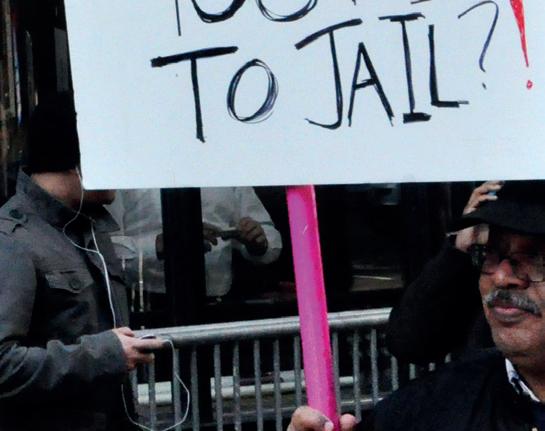

However, Labour Chairman of the Public Accounts Committee, Margaret Hodge, who will be “launching an urgent inquiry into which we [the PAC] will require HSBC to give evidence”, said of Lord Green: “Either he didn’t know and he was asleep at the wheel, or he did know and he was therefore involved in dodgy tax practices. Either way he was the man in charge and I think he has got really

important questions to answer.”
In a letter to the chairman of the Treasury Select Committee, Labour MP, John Mann asks for Lord Green to be recalled for questioning, so that he can “put the record straight.” Yet when approached by BBC Panorama Lord Green refused to give any explanations, saying: “As a matter of principle I will not comment on the business of HSBC past or present.”
‘Inside the Commons’ gives insight into British democracy
Michael Cockerell has been granted unprecedented access to the Commons for this documentary to the displeasure of some MPs who attempted to knock one of the cameras over. We should be glad that the filming was successful though. Although it’s very informative, it is also surprisingly full of interesting human stories and The Telegraph even called it “the funniest comedy on TV.”
“ The commons is half like a museum, half like a church and half like a school David Cameron ”
For parliament to be representative of the gender make up of society there would need to be 190 extra women MPs. Inside the Commons excellently demonstrates that parliament requires the kind of cultural change that women could bring about. The environment is not all that welcoming for women MPs at the moment. Sarah Champion expressed her disgust at the juvenile jeering and cheering, which was described by many of the MPs interviewed as “political theatre”. Political theatre seems to take precedence over political substance in the commons; a number of politicians are shown in the program to take great joy in their filibustering rather than engaging in debate, smirking as they quote poetry or make verbose
non-points to derail the Affordable Homes Act. More representation for women would be great but I can’t help but think that any woman who fails to get elected may have dodged a bullet on an individual level. The only non-Caucasian to speak in the program so far is a black woman who works in the commons tearoom. Who does the commons cater to then? David Cameron’s description of the commons as “half like a museum, half like a church and half like a school” is telling. The commons, bogged down in eccentric traditions, is the perfect environment for an ex private school boy (it seems unfortunate that Cameron’s maths is so poor considering the amount his parents must have spent on his Eton education). Inside the Commons presents some MPs as caricatures of real people: Jacob Rees Mogg comes across as a caricature of a privately educated middle aged man and, supposing Michael Fabricant loses the next election, he could always make a living as a Boris Johnson impersonator. Despite this it’s hard to watch the program without feeling some sympathy for MPs. Thomas Doherty made a deal with two conservative MPs to camp


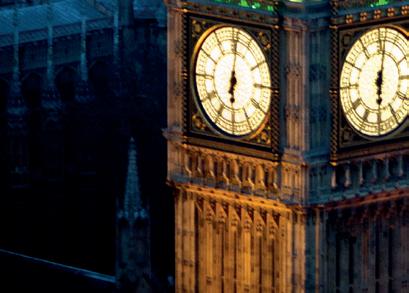
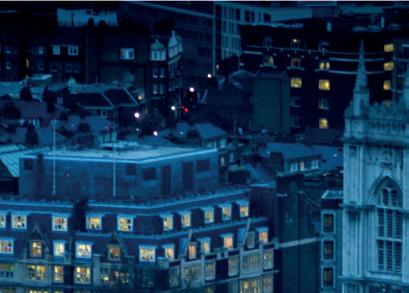


outside an office for two whole days to secure time to debate in the Commons.
‘Inside the Commons’ is worth a watch for the fascinating and often entertaining insight into Commons traditions. Most of these are harmless, if you don’t count the costs of the costume involved, such as the yeomen still searching the underground tunnels of parliament for



barrels of gunpowder. However the Commons needs some modernisation. How many democracies don’t have a seat for all of their representatives leaving them battling for a seat at morning prayers? There’s a certain amount of incongruousness in trying to run a modern democracy in the crumbling gothic Palace of Westminster but steps are bring parliament up to date.
‘Inside the Commons’ airs on BBC 1 Tuesdays at 9, and available on iPlayer. “
” HSBC have themselves admitted to wrongdoing,
James Griffiths
Lauren Boyd
Pictured: HSBC Credit: Michael Fleshman
Pictured: Parliament Credit: Flavio Leone
”
online at gairrhydd.com/politics
tweet us @GairRhyddPol mail us politics@gairrhydd.com or visit us
Daniel Heard
TWelsh Assembly Bill deemed unlawful
he Supreme Court has ruled that the Assembly went out of its law-making remit with a proposed Welsh Bill that would have recovered costs from treating asbestos-related diseases. e decision will likely mean that the Bill is not allowed to become law. e judgement will be seen as a further clarification of what laws AMs are able to make in the Senedd, solidifying what they can and cannot do. A majority of judges at the Supreme Court ruled that the Bill was specifically outside of the competence of the Assembly concerning its role in organisation and funding of the NHS.
goes out to the victims and families of asbestos disease who stood to benefit. e decision places unacceptable restrictions on the ability of the Welsh Government to act in cases such as this and undermines devolution. It exposes the weaknesses of the existing devolution settlement and any further settlement must be based on giving the Assembly the same powers as Scotland.” e Bill was passed by the National Assembly in 2013.
e Bill had been referred to the Supreme Court by the Welsh Government in anticipation of a challenge from the insurance industry.
in Wales despite it being announced that the £70m being made available to the Welsh Government by the UK Government in 2015-16 would be allocated to the Welsh NHS. A study this month found that patients in Wales are waiting far longer for vital tests and life-saving treatment than those in England, where the NHS is run by the Coalition Government. ey are also likely to have to wait longer for an ambulance, and will be
seen more slowly if they need to attend A&E. e budget for Health and Social Services in Wales in 2015-16 will be £6.7bn – the highest it’s ever been. e Court has previously ruled in favour of the assembly on changes to local government by-laws and the re-establishment of the Agricultural Wages Board. A reform on Welsh powers is desperately needed, and cannot come soon enough, it would seem.
“ ”
The Asbestos (Recovery of Medical Costs) Bill was proposed in a bid to raise as much as £1m a year for the Welsh NHS
Backbench Labour AM, Mick Antoniw, proposed the Asbestos (Recovery of Medical Costs) Bill in a bid to raise as much as £1m a year for the Welsh NHS from employers, or their insurers, for treatment costs, and the devastating effects it can have. But after insurance industries expressed concerns, the bill was referred to the Supreme Court by the Welsh Government. On Monday, it was announced that the bill is outside of the legislative competence of the Assembly. Mr Antoniw said, “ e charges provided for by the Bill are to be imposed on compensators and insurers rather than patients and lack any direct or close connection with the provision of Welsh NHS services.
“I am gutted that the Supreme Court have found in favour of insurance company interests and my heart
e Association of British Insurers welcomed the judgement, saying the Bill would have seen increased insurance premiums for Welsh businesses but no extra compensation for mesothelioma sufferers. Asbestos was used extensively as a building material in the 1950s and 1960, but was later found to cause several diseases including asbestosis and mesothelioma, an aggressive form of lung cancer. It has been estimated that 5,000 deaths a year in the UK are caused by exposure to asbestos.
e Welsh Assembly has the power to run local NHS services differently to the rest of the UK, however, the Supreme Court found it went too far by requiring insurers to pay for patient treatment that was outside the scope of the insurance policies. Labour is already on the backfoot over appalling problems on its watch
A week in the Senedd

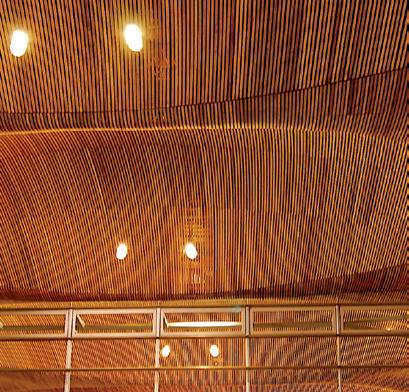
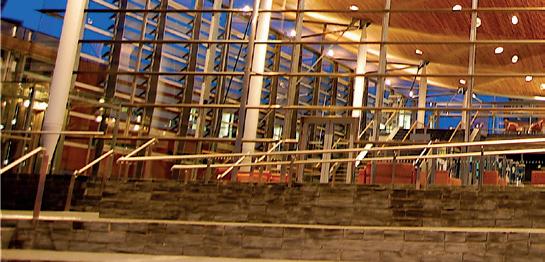


First Minister’s Questions Plaid Cymru veteran Dafydd Elisomas started proceedings this week, asking whether the First Minister has had discussions with the Welsh Secretary, regarding the proposed upcoming St David’s Day agreement for more powers. As well as confirming he has had many discussions with the secretary, Mr Jones also agreed with Elis- omas that equality with Scotland on powers are now very important, and emphasised that the same powers that were outlined for Scotland last month, should be proposed to Wales, but that we are far from an agreement on that situation.
Paul Davies mentioned the Barnett formula, questioning how the minister could ensure fair funding in the

context of keeping the controversial formula, Mr Jones however didn’t seem convinced that fair funding was on its way to Wales, especially as we must consider that the UK Labour party also want to keep the formula.
A successful St David’s Day agreement for the First Minister would include considering a reserved power model for Wales, Wales’ under-funding being addressed, further fiscal devolution in some fields and for the Assembly to control its own electoral system including the entrenchment of the Assembly, so that Westminster could not get rid of the government.
Leanne Wood queried Labour’s funding plans for the Assembly, stating that even if Labour wins the upcoming election, it would mean fur-


ther austerity of 2.2% to the Welsh Government’s budget, a disaster for the people of Wales. Mr Jones dismissed this criticism stating cuts from a future Conservative government would be much worse.
Health was a concern for the leader of the opposition as well as Kirsty Williams, with Welsh NHS facing severe recruitment problems that led to services being cut in a North Wales hospital, with the First Minister predicting that services will resume from summer 2016, and that recruitment is an issue for health boards to deal with, despite it being a widespread problem.
Smoking was certainly on the agenda in the chamber, with Labour and Plaid members bringing up the topic. Members emphasized the need for more to be done to cut smoking in Wales, especially as it has recently emerged that Wales has one of the highest lung cancer rates in women across the European Union. e First Minister however could not give a date on when a smoking ban in cars with children will be in place[but the Autumn has since been announced as a target], and the government cannot recommend the use of e-cigarettes, as they have not been proven to be effective or safe.
Llyr Gruff ydd mentioned the topic of Welsh-medium education, with
the First Minister reassuring him that this is a matter for local authorities to decide how many Welsh school places they offer, but it would be of vital importance to them not to weaken Welsh medium education.
Welsh Assembly beat Commons
In their annual fixture to commemorate the Wales vs. England Six Nations match, Welsh Assembly members played the House of Commons members, beating the commons 3312, with Andrew RT Davies encouraging more AM’s to participate for next year’s event.
Renting at 16 and 17
A new Bill was introduced to the Assembly last week, which would allow 16 and 17 year old people to rent a property for the first time. e bill aims to simplify the renting process and give tenants better security. In another clause, it will be compulsory to have a written contract for a tenancy stating key information such as rent. It is hoped the bill will receive Royal Assent by early next year.
Call for long-term NHS plan
A Plaid Cymru led debate last Wednesday has called on the government to look at a long term ten year workforce plan for the NHS in Wales, concentrating on further recruitment.
17 POLITICS
with Carwyn Williams
Pictured: Supreme Court
Keep Updated: Follow us on Twitter @GairRhyddPol
18 POLITICS
Not a Clegg to stand on
Michael Arnott
His tenure as head of the Liberal Democrats appears to have run its course
According to recent polls, Liberal Democrat leader Nick Clegg is in serious danger of losing his constituency seat at the upcoming General Election, despite his protests to the contrary.
One recent poll, carried out by Survation for the trade union Unite, had Clegg trailing in his Sheffield Hallam constituency by 10 percentage points. ey had the Deputy Prime Minister on 23 per cent, trailing Labour on 33 per cent, and only narrowly ahead of the Conservatives, who scored 22 per cent. is was not the only poll to give Clegg cause for concern. Also suggesting that he would face defeat was Lord Ashcroft’s poll, who gave Clegg 27 percent, behind Labour on 30 pe cent, and ahead of the Tories on 19 percent, UKIP on 13 per cent, and the Greens on 10 per cent. ese polls have failed to alarm Clegg, at least outwardly, who denounced the reliability of the Survation poll. Speaking on his LBC radio show, he called it ‘utter bilge’, and questioned the involvement of the Unite union, which is a financial backer of the Labour party. Clegg also defended his own record, which has come in constant criticism since the coalition came into power. Clegg argued that his party’s deal with the Conservatives ‘was the only way we could form a stable
government.’ He also appealed to the heartstrings of those in his ‘wonderful constituency, in the most beautiful part of the north, southwest Sheffield.’
Despite his party’s defence of the coalition deal, it is a bone of contention for many of the electorate. Joining the Conservative Party on austerity policies has caused the Liberal Democrat Party to lose much of its support; polls often show it as the fifth placed party, with less than 10 per cent of public support. is has also reflected badly on its leader, who may lose his constituency as a consequence.
e student population is a demographic that has felt the brunt of Clegg’s coalition deal. Many have not forgiven him for breaking his party’s pre-election promise to oppose tuition fee rises, which trebled in 2012. is may cause him a headache in his constituency, where 17.3 per cent of the electorate are students.
Doubts about Clegg’s position as an MP inevitably raise questions about his status as leader of the Liberal Democrats. In reality, even if he holds his seat, his tenure as head of the party appears to have run its course, with the party needing a change of approach to reverse its recent dismal performance, as it braces itself for the loss of many of its 56 MPs. ere are many contenders waiting in the wings, with many of the

party’s best known faces, such as Danny Alexander, Vince Cable and Ed Davey said to be in the running. However, the current favourite to replace Clegg is Tim Farron, who until recently served as President of the party.
Despite these recent polls in his constituency, Clegg should still manage to retain his seat. e Survation poll failed to take into account the candidates or past voting intentions in its survey, and its verdict of a comfortable Labour win seems unreal-
istic. Clegg is likely to benefit from the incumbency effect, where a sitting MP is favoured over challengers, which has benefitted the Lib Dems in the past. Because of this, he may hold his constituency, but he is unlikely to keep the Lib Dem leadership and this may mark the beginning of the end for his political career. e Lib Dems need to start again, and Farron, who hasn’t been heavily involved in the coalition, could be the ideal candidate to replace Clegg.
Labour to double paid paternity leave
Business community question Labour’s policy
Luke Brett
Labour have pledged to extend paternity leave from two weeks to four whilst increasing the amount paid per week to £260, up from £120, should they win the General Election in May. With the deficit still a key issue in the run-up to the election, Labour defended this increase in public spending, arguing that it would be funded by savings in tax credits.
Whilst being challenged about the damages that this policy could pose to small businesses, Labour leader Ed Miliband said it would be paid for “by the government”, arguing the current paternity system was “outdated”, and that giving fathers an “independent right” to a month off to care for their children would support around 400,000 families.
Britain succeeds when modern working families succeed Ed Miliband
“Britain succeeds when modern working families succeed. That means giving dads, as well as mums, the chance to spend more time at home.” Miliband argued.
However, after recent pressure from the business leaders on Labour’s economic credibility, pressure increased after some commercial leaders challenged the policy, arguing the £150m cost of this would equate to a business “tax”.
This £150m figure comes from the Institute for Public Policy Research think tank, which has estimated
that offering four weeks paid paternity leave will see take-up increasing from 55 per cent to 70 per cent, if this policy is enacted.
John Longworth, the directorgeneral of the British Chambers of Commerce, said that “although wellmeaning, proposals such as this create very real costs for businesses, which can in turn lead to reduced productivity, reduced growth and fewer jobs.”
Additionally, John Allan, the national chairman of the Federation of Small Businesses, stated: “it’s important political parties understand the practical implications of policy changes.
“The reality is that for small businesses in particular, extending paternity leave from two to four weeks makes it much more likely that they will have to buy in replacement staff as they will struggle with absences.”
The Trade Union Council (TUC), however, have been campaigning for increased paternity leave after highlighting in a 2011/12 study that only 1,650 out of 285,000 eligible men actually took the £136 statutory leave.
The TUC are of the opinion that extra time spent by fathers at home would help breach the gender pay gap (currently at 9.4 per cent), as mothers would have greater freedom to get back to work after giving birth.
These proposals come after the Liberal Democrats announced a new system of shared parental leave, which is due to come into force in April. As part of the parties manifesto, the Lib Dems are also offering a month’s worth of paternity leave after a child’s birth on a “use it or lose it” basis.
The Conservatives have responded by supporting greater flexibility in parental leave, arguing that all future spending policies in this employment area required a “families test” in order to pass.












Conservative MEP Daniel Hannan tweeted ‘On what moral basis should new dads expect to be subsidised by everyone else?’ This challenges the idea that state intervention is necessary to support a particular group in society at the expense of everyone else.
Overall, Labour are pursuing more policies that they hope will assist with the cost of living, despite opposition from the business community. With the general election coming up, the issue of employment and living standards will be high in the list of many topics for debate.








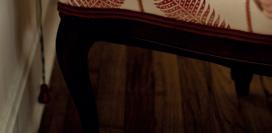






This may mark the beginning of the end for his political career
Pictured: Nick Clegg, Leader of the Liberal Democrats
”
“ ”
“
Pictured: Father and baby Credit: Flickr; I am Ming
“ ”
“Despite this, many argue a constitution would hold the country back when in talks such as with the EU, but others see this as an advantage.
”LSE: crowdsourcing a constitution
The London School of Economics and Political Science last month launched a new innovative and exciting project, to crowdsource a written constitution for the UK in a year that is significant for a number of reasons. Firstly, this is an election year, and the incoming government, whatever shape it might take, will have to address further changes to how the UK is run and answer questions on any kind of constitutional reform. Whether it’s reforming the House of Lords, or discussing the future of devolution, the possibility of a EU referendum or simply deciding how the public can hold their MPs to account, important decisions will have to be made.
e LSE believe that the status quo is no longer an option for our country, and change is needed in the form of a written constitution.
is year also holds the anniversary of a very important document in British law-making history; Magna Carta. While the majority of this document is no longer law, a part of it actually is, and many wonder whether an 800 year old document should still be valid in a system that has changed so much since then and developed into a democracy. Magna Carta has had significant influence on our laws and many other countries’ constitution.
LSE’s convention is set out into ten key topic areas, from devolution to
elections, from values and rights to Parliament. On their website, constitutionuk.com, people can make suggestions on what should be included.
To date, the most popular idea suggested by far is to have an elected head of state, which would in effect remove the monarchy. While this is seen as a core democratic principle to many, some could see this as surprising as a ComRes survey in 2013 showed 66 percent thought Britain is better off with a monarchy. is convention for a written constitution could therefore bring solutions that politicians could not, and also demonstrates the difficulties in agreeing on a constitution. e UK has never had and does not have an actual written constitution, being the only state in the world other than New Zealand and Israel without one. Despite this, many argue a constitution would hold the country back when in talks such as with the EU, but others see this as an advantage.
Last month, the Institute for Welsh Affairs also launched a crowdfunded constitutional convention, focusing primarily on Welsh issues, such as how to improve the state of the economy and Wales’ future within the UK. While these are important pieces of public research, it is also important to remember that these will have little effect on government, and real change will only come with a drastic change in public opinion.
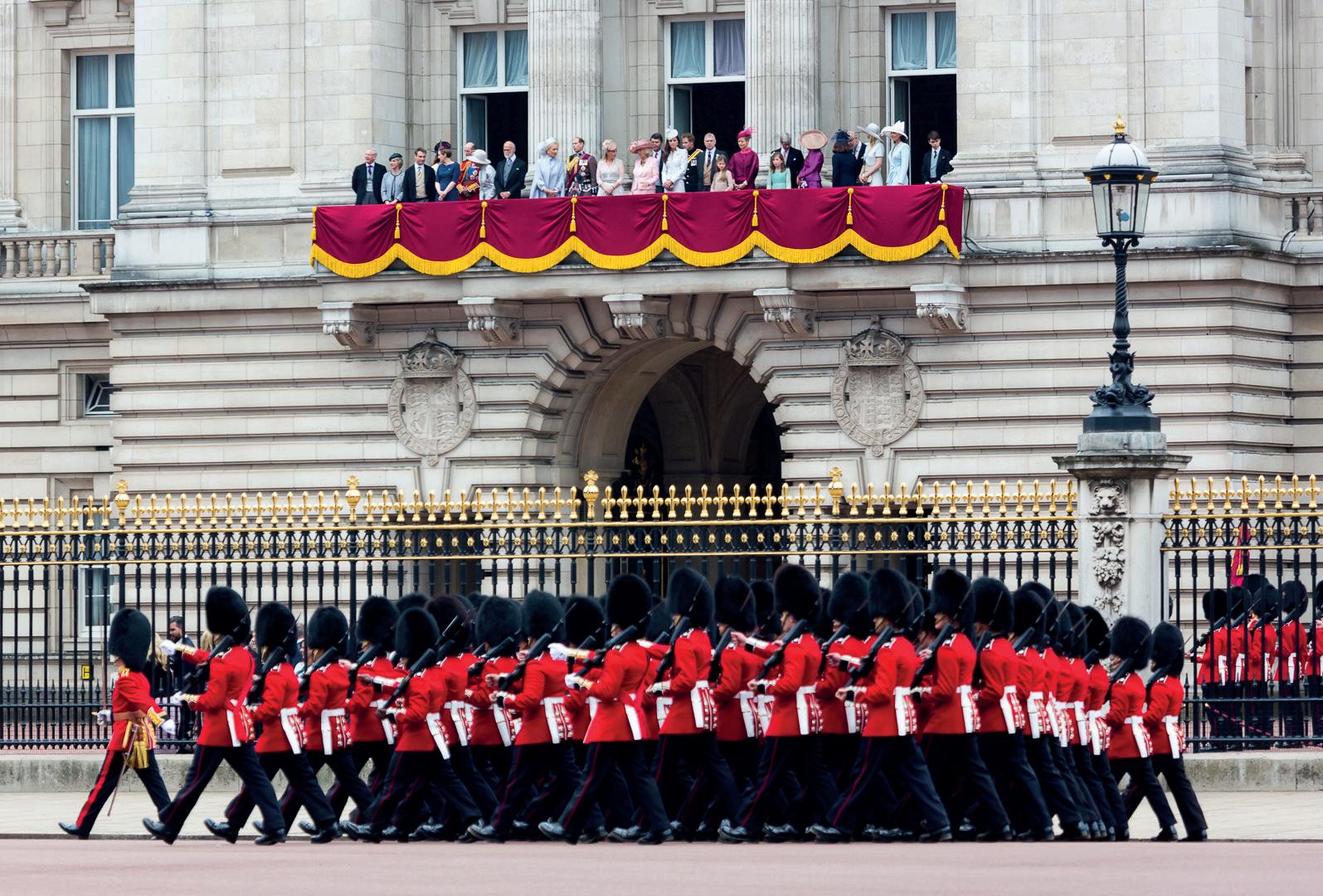
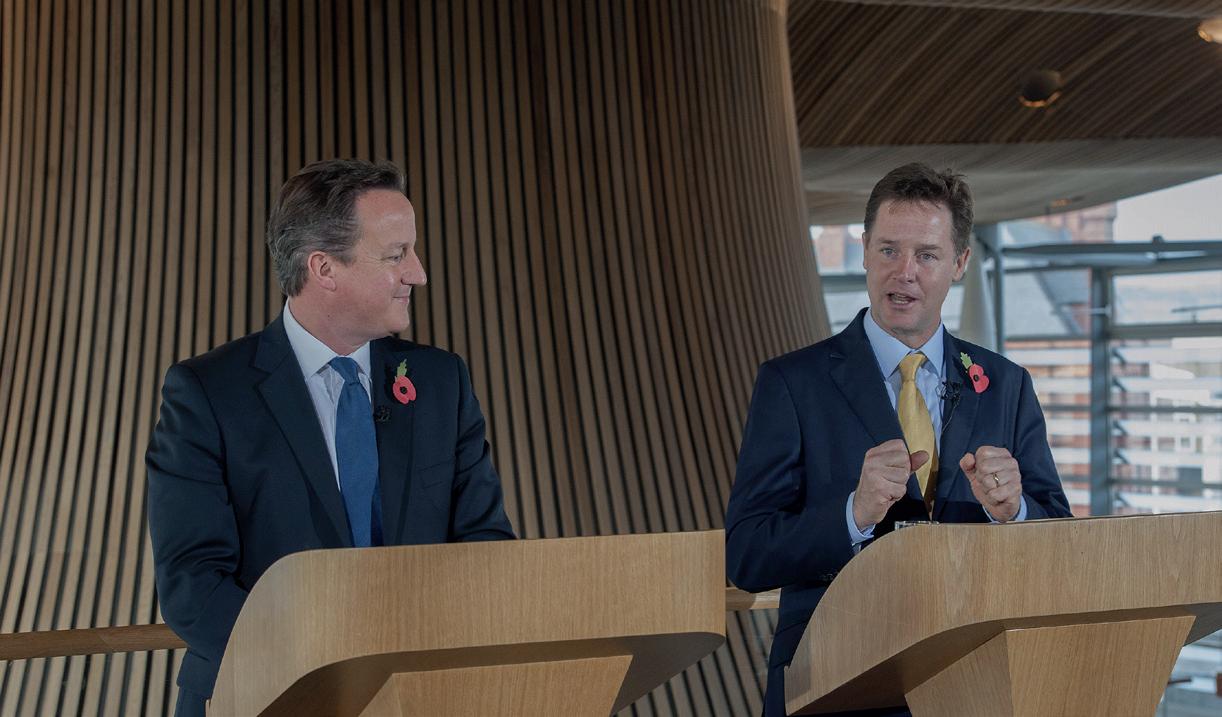
What do you expect from the General Election?

Visit
David Hooson
This year, more parties than ever have a genuine chance of winning seats in the General Election and, continuing with the theme begun in 2010, the overall result is the most unpredictable in living memory.
Labour and the Conservatives cannot be separated in the polls but the SNP’s encroachment into Labour territory in Scotland may play to the Tories’ advantage and nudge them into a plurality.
e rise of the SNP is also likely to push the Liberal Democrats into fourth place at Westminster, with Nick Clegg’s party set to suffer major casualties.
UKIP are on track to defend both of
This week’s PMQs continued with a recent theme of tax avoidance, in light of claims that have emerged about the use of Swiss bank accounts at HSBC and the role of political donors.
Compared to recent debates, Ed Miliband appeared to take more of a backseat role in allowing other Labour MPs to mount pressure on the issue of tax avoidance by repeating the same question, a tactic reminiscent of the previous debate, where Miliband asked a specific question relating to hedge funds.
Even then, Mr Cameron seemed to avoid directly answering the question
the seats they won in 2014 by-elections and could gain one or two more if they target their campaign well, with Plaid facing a similar position in Wales.
e Green vote is much more thinly spread than that of UKIP, meaning they will struggle to capitalise on their gains in the polls, though Caroline Lucas is likely to be returned to her seat.
Amid the coalition-forming fever that will ensue from the probable hung parliament, parties of all sizes could have an influence and I fear that UKIP may team up with Tory back benchers to form a right-wing stranglehold over the next government.
posed, instead swiftly moving to other areas of policy such as unemployment and economic growth – again claiming that Labour ‘could not talk about it’. is lack of response appeared to demonstrate an avoidance strategy.
Cameron kept referring to increases in private sector employment, citing figures of two million supported by anecdotes from individual Conservative MPs. ese figures were not challenged, despite a question asked before PMQs relating to Government figures being inaccurate. It seems that Cameron’s core election messages will be safety and security, backed up by claims such as these.
The general election is now only three months away, and I think a positive outcome of this election could be the mainstream parties losing absolute power. is may not sound like a good thing, but with the rise of the Greens and UKIP, and the Lib Dems sticking around, there’s going to be more competition in government and voters will be able to hold their MPs to account better with fewer ‘safe seats’.
‘Bad’ things that are going to happen is a little more unpredictable, but the general belief is that the surge in nationalism and the worry of immi-
Despite personal criticism from Mr Cameron about the role of trade unions in securing Miliband’s leadership, the Labour leader seemed unfazed – equally describing Mr Cameron as a ‘dodgy Prime Minister surrounded by dodgy donors’.
In a similar fashion to last week, both Government and Opposition continued to name and shame individual donors embroiled in tax avoidance claims, and after a while this seemed to become very pointless, as both sides were left somewhat discredited.
Criticism of management in the Welsh NHS was brought back onto
gration in many constituencies is going to leave a cloud over our political system for some time. At the moment, it is difficult to see what is fear-mongering, and what is real, but the general xenophobic undertones are not healthy for a system based on the inclusion of everyone. But this will pass. is election the issue is immigration, next time the issue might be climate change.
Whatever happens in three months, it might be exciting and feel like the most important thing in the world, but after the dust has settled, life carries on, for good, or for bad.
the agenda, after Labour MP Glyn Davies criticised the Government for excessive GP waiting times. Cameron urged the NHS in Wales to reverse cuts it had made to improve access to GPs, which seemed to be an implicit attack on the Labour-run authority. Concerns surrounding party finance and tax avoidance are going to be key in election campaigns for both parties. e Conservatives seem to have settled on their campaign messages and are using every opportunity to push these, while Labour needs to do more to define their own, rather than highlighting specific issues with particular policies.

Let us know what you think, politics@ gairrhydd.com

19 POLITICS
Kieran Lewis Prime Minister’s Questions
their website: constitutionuk. com
Carwyn Williams Pictured: e Royal Family on the balcony of Buckingham Palace. Below: David Cameron and Nick Clegg speaking at the National Assembly of Wales in Cardiff Bay.
Alex Stewart
Cardiff Nightline CardiffNightline @CardiffNL CardiffStudents.com/nightline
*Voucher code FEEDME50 required for redemption. 50% off relates to pizza only (including additional toppings, premium crusts and bases) all other items in your basket will be charged at full menu price. Ice cream and drinks may not contribute to the £15 order value. Participating stores only. Collection or delivery (subject to store delivery areas) but minimum delivery spends may apply. Online only. Offer cannot be used in conjunction with any other offer or promotion. Subject to availability. Offer available in the UK including NI only. Full T&C’s at dominos.co.uk. Offer is valid between Monday 2nd February and Sunday 8th February 2015.




Call dominos.co.uk Pop in Tap the app @CardiffDP /Dominos.cardiff 029 20 22 99 77 W HE N YOU S PE ND £15 OR MOR E ONL INE* HURRY! 2ND – 8TH FEBRUARY ONLY
Enter code: BOGOFW07 at checkout to order online *Voucher code BOGOFW07 required for redemption. Medium and large pizzas only. Free pizza must not exceed the value of the first. Offer cannot be used in conjunction with any other offer or promotion. Offer valid between Monday 9th February – Sunday 15th February 2015 subject to store opening hours. Collection or delivery (subject to store delivery areas) but minimum delivery spends may apply - ask in store for details. Participating stores only. Subject to availability. To order on the website you must click on the meal deals section and order from there. Offer available in the UK and Northern Ireland only. Offer must be used or mentioned at the time of ordering to apply. Full T&C’s apply see dominos.co.uk MEDIUM & L ARGE PIZZAS ONLY. COLLECTION OR DELIVERY * Available from Monday 9th - Sunday 15th February 2015 only! MEDIUM & LARGE PIZZAS ONLY. COLLECTION OR DELIVERY. Enter code: FEEDME50 at checkout to order online
Meryon Roderick
SCIENCE
Bristol Zoo comes under fire for slew of animal deaths
An anonymous whistle blower has revealed a slew of tragic mishaps that occurred at Bristol Zoo during December last year. Most shocking among these are the deaths of several critically endangered mammals that some have attributed to negligence on behalf of the zoo.
e Visayan warty pig is extremely rare, thought to only exist in two populations on the islands of Panay and Negros in the Philippines. eir rarity makes accurate estimates of numbers very difficult but the best guess is that there are about 200 of these pigs left in the wild. Bristol Zoo was home to an adult female warty pig called Manilla and mid way through 2014 she was joined by a male companion, named Elvis, in the hope that they would breed.

Got a story idea? Let us know: science@ gairrhydd. com
In three fires alone, radiation spread across Europe, into Italy, Turkey and even Scandinavia
However, vets employed by the zoo failed to notice that Manilla had become pregnant. e whistle blower described what happened next: “On the day the female gave birth to piglets the male immediately ate them all, and then also attacked the mother by eating her rear end. She was so badly injured she had to be put down.”
e zoo claims that this was “com-
pletely unforseeable” but the aggression of male Visayan warty pigs is well known. Will Travers OBE, president of the Born Free Foundation said that “Males of many species are widely known to be a threat to infants, especially in captivity. It would appear that better understanding of animals’ needs and behaviour may have prevented such a tragedy.”
In the same month a golden lion tamarin, a species of monkey of which there are only roughly 1000 left in the wild, escaped its enclosure and leapt into the otter pond where it became trapped in a drainage valve. e American otters then proceeded to eat the tamarin, apparently before any zoo staff could notice; when they did intervene it was too late to save the monkey. ese tragedies only represent the most shocking incident in a recent raft of problems for Bristol Zoo. ese incidents include 3 rainbow parakeets escaping through a hole in their enclosure, one of which remains missing and is currently somewhere in the wider Bristol area, and a monkey swimming the moat surrounding its island and escaping into the zoo. Bristol Zoo responded to critics by saying that they are “are confident


that Bristol Zoo is doing everything possible to ensure that similar situations will not arise again in the future.”
However, Nicola O’Brien, director of the Captive Animals’ Protection Society responded by saying, “To have so many deaths and incidents occur so recently really does pose questions about the welfare of the animals kept at Bristol Zoo.” She added that there needs to be “a full, immediate investigation by the local council into the animal care protocols at this zoo.”
It is a huge concern that such serious incidents could have occurred at a UK zoo and raises a question about what zoos are for. If, as is often claimed, they stand as bastions of wildlife conservation then obviously something needs to be done to ensure the safety of endangered animals when they are kept in captivity. If instead, zoos exist solely as menageries to entertain the public then it may be necessary to consider er they have a future.
Chernobyl nuclear fallout still proves significant threat
Wildfires ravage local area and threaten to spread radiation further
The Chernobyl disaster of 1986, which saw huge amounts of lethal radioactive caesium released into the atmosphere after the explosion of a reactor vessel, was the world’s worst nuclear accident. As decades have passed and radioactive levels have diminished, a new threat may mean the fallout will continue for years to come – wildfires are now spreading radiation from the site much further than anticipated.
On the 26th April 1986, an incident occurred at the Chernobyl Power Plant in Ukraine that lives on in infamy. A nuclear reactor received a catastrophically large surge of power and the core exploded. It is an accident only equalled in scale by the Fukushima nuclear disaster of 2011.
Huge quantities of radioactive caesium were released from the power plant, leading to the evacuation of 4800 square kilometres of heavily contaminated land in Ukraine and Belarus, dubbed the “Exclusion Zone”. 85 petabecquerels of radiation spread across the area, and the latest estimates predict between 2 and 8 petabequerels still remain in the upper soil surface nearly 30 years later. Forest fires have been a concern of radiation scientists since the accident. In the abandoned forests of the “zone of alienation”, the official term for the area, “trees pick up the radioactive
ions, then dead leaves return to the soil”, says Nikolaos Evangeliou of the Norwegian Institute of Air Research. His team have been analysing fires that have occurred in the area since 2002, studying satellite feeds and the measurements of radioactive caesium still deposited in the area. In three fires alone, radiation spread across Europe, into Italy, Turkey and even Scandinavia. In the latest research, published in Ecological Monographs this month, Evangeliou and colleagues have calculated future wildfire frequency and intensity, and the results are concerning.
Ian Fairlie, former head of the UK government’s radiation risk committee, did not down play his unease; “ e simulation probably underestimates the potential risks.” e study suggests that radiation released from wildfires would give people nearby, in the Ukranian capital Kiev, a dose of 10 microsieverts – just 1 per cent of the acceptable yearly average dose. “ is is very small,” said co-author Tim Mousseau of the University of South Carolina. “Should there be a larger fire, quite a bit more could end up on populated areas.”
e potential risks may also be larger because of the accumulation of other types of radioactivity that may find their way into the food chain. Long-lived emitters of radiation such
as strontium, plutonium and americium will all be distributed unevenly through the spread of wildfires. “ e internal dose from ingestion can be significant”, said Mousseau, with the potential to cause cancer that is thought to have affected over 300 people directly as a result of the Chernobyl accident.
More worrying still, the researchers have predicted the wildfires in the Exclusion Zone will continue to ravage the area until a peak between 2023 and 2036, by which time the radiation may have noticeable










health consequences. e team, like others, have called for action to be taken before lives are affected. Keith Baverstock, formally European head of radiation protection at the World Health Organization, agrees; “ ey have a very valid point. e lack of management of forests, the apparently slower decay of vegetation exposed to radiation, climate change leading to drought and the expansion of forested areas all contribute to increasing the risk of forest fire and therefore further dispersal of long-lived radioactive nuclides.”




















These incidents just represent the most shocking incident in a recent raft of problems...
Flames represent wild fires, Yellow areas have declared a state of emergency and green areas have surface deposits of caesium 137.
Pictured: “ ose otters did what?!”
“ ”
Shanna Hamilton
“ ”
Pictured:
tweet us @gairrhyddsci email us science@gairrhydd.com or visit us online at gairrhydd.com/science
Shanna Hamilton
Did a fecal transplant make a woman obese?
Fecal transplants obviously capture the public’s attention, including the entire Gair Rhydd editorial team when we first reported on the procedure in October. But new concerns have been raised after a woman has become significantly overweight after receiving a donation of stool.
A medical report published in Open Forum Infectious Diseases highlights the previously healthy weight woman gaining over 40 pounds since the transplant, and she apparently continues to gain weight at an accelerated rate.
A fecal transplant procedure in-
volves taking fecal matter, or stool, from a healthy donor, and placing it into a patient, through a nasal tube or enema. This is to replenish the microbial fauna of bacteria that usually live in a healthy gut, and remove any dangerous bacteria that have overpopulated and caused infection. It has been successfully used to treat the hospital infection caused by superbug Clostridium difficile, which is notoriously difficult to cure.
C. difficile is a very serious infection, with incidence on the rise due to growing antibiotic resistance. Symptoms include fever, severe diarrhoea, and an inflamed colon. It was
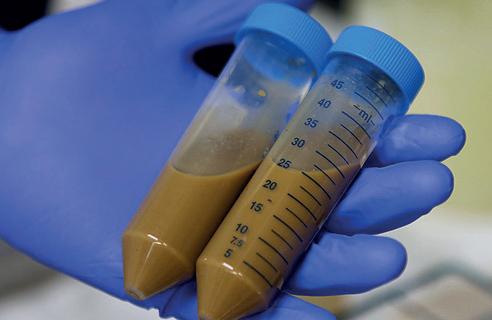
No,
Shanna Hamilton
R“
Connors claims that Putin’s “neurological development was significantly interrupted in infancy” and that he “carries a neurological abnormality”
”
responsible for the deaths of 177 patients in 2013 in Wales alone, with the elderly and very young most at risk.
A fringe medical treatment with significant “snicker factor”, fecal matter transplants are seen as a quick, inexpensive method with up to 90 per cent effectiveness is treating the difficult hospital-acquired infection.
A 32-year-old woman presented to medics in Newport Hospital, Rhode Island, with current C. difficile infections that were difficult to treat. After several rounds of antibiotic treatment, the patient elected to have a fecal transplant. At her request, the stool donor was chosen to be her 16-year-old daughter, who at time of transplant weighed 140 pounds. The daughter gained over 30 pounds at a later date.
After 16 months, the woman receiving the transplant has gained 34 pounds, increasing her body mass index from a healthy 26 to an obese 33. “She has continued to gain weight despite efforts to diet and exercise and at 36 months [post-transplant] her weight was 177 pounds,” paper authors added.
Although a case of correlation and not clear causation, authors speculate there may be a link between the transplant and weight gain: “This case serves as a note of caution when considering the use of non-ideal do-
nors for fecal microbiota transplant, and we recommend selecting nonoverweight donors.”
This study raises questions about the role of bacteria in our gut and how it might influence other organ systems, at a time when the Fecal Transplant Foundation describes the procedure as “a low-cost, low-risk, highly effective treatment.”
Dr Kelly said, “We’re questioning whether there was something in the fecal transplant, where some of those ‘good’ bacteria we transferred may have had an impact on her metabolism in a negative way.”
Careful study of faecal transplants will advance knowledge about safe manipulation of the gut microbiota. Ultimately, of course, it is hoped that faecal transplant studies will lead to identification of defined mixtures of beneficial bacteria that can be cultured, manufactured, and administered to improve human health.
In an editorial that followed the case study, Drs Weil and Hohmann of Massachusetts General Hospital say they hope this work “will inspire further study of the mechanisms of metabolic effects of fecal matter transplant”, but that ultimately it will “lead to identification of defined mixtures of beneficial bacteria that can be cultured, manufactured and administered to improve human health.”
Vladimir Putin doesn’t have autism
esults from a Pentagon think tank appear to suggest that Vladimir Putin, President of Russia, has Asperger’s syndrome. Many news outlets clung to this sensational news, playing on the fairly rational public fear that the man in charge of the second largest nuclear arsenal in the world has a neurological disorder.
Considering how often the term is thrown around, a lot of people would struggle to give you a proper definition. Asperger’s is mostly characterized by impairment in a sufferer’s social interaction which is usually caused by highly repetitive patterns of behaviour, activities and interests. Unlike most autism spectrum disorders there is no clinically significant delay in cognitive development or any general delay in language. Being intensely preoccupied with a narrow subject area; often using an unnecessary number of words to communicate a point; poor speech intonation and physical clumsiness are also typical of the condition but don’t necessarily lead to a diagnosis.
Does that sound like somebody you know? It does to me and probably does to everyone else which is why diagnosis of Asperger’s is a contentious topic in the discussion of mental health. Between 2006 and 2008 reported cases of Asperger’s syndrome increased by 20%. is lead to a call
for reform in how the condition is diagnosed because not everyone can have Asperger’s. As of 2013, the diagnosis of Asperger’s in the fifth edition of the Diagnostic and Statistical Manual of Mental Disorders (DSM) has been replaced by “autism spectrum disorder on a severity scale”. is move was designed to avoid a perceived lumping together of people with serious neurological disorders and people who are just socially anxious.
But could Putin have Asperger’s syndrome? e answer is probably not. e think tank in question, the US Naval War College (USNWC), based its reports on the work of Brenda Connors, a self-dubbed “movement pattern analysis (MPA)” expert. Her method involves watching videos of an individual with the sound removed and trying to spot patterns in their facial expressions and movement. You then watch the same videos with the sound put back in and try to apply the patterns you’ve spotted to their speech. As you can see, it’s incredibly scientific.
Connors claims that Putin’s “neurological development was significantly interrupted in infancy” and that he “carries a neurological abnormality”. She tempers these fairly precise and involved diagnoses by saying that it’s impossible to confirm her suspicions without a brain scan.
Brain scans aren’t actually involved in the normal diagnosis of Asperger’s so it’s unclear why she feels she needs one to back up her work. It could be because MPA isn’t supported by peer reviewed literature or reproducible results meaning that being an expert in MPA is much like being an expert in astrology. She also compared Putin’s psychology to that of a lizard, stating “they patrol their borders and if an alien enters, lunge reflexively”. e DSM definitely doesn’t define Asperger’s as acting like a reptile. Even people working with Connors have come out to dispute the reports. An expert she hired called Dr Stephen Porges went as far as to say “You don’t diagnose based on videotapes.” He views the reports more as a way to ensure diplomatic meetings with Putin are as efficient as possible. He asserts that Putin displays “little asocial qualities” which may mean that meeting him in smaller settings rather than large diplomatic meetings would lead to more productive negotiations. is pragmatic interpretation is far from the one that the media has portrayed and just as far from the outlandish claims made by Brenda Connors. A man who described himself as a “consultant” on the report, Dr A omas Pezzella, chose not to describe his own contribution to the research, saying instead: “Brenda did most of the work.”
“We’re questioning whether there was something in the fecal transplant, where some of those ‘good’ bacteria we transferred may have had an impact on her metabolism in a negative way
”
Clearly this report is essentially grounded in quick sand. It uses unsupported methodology to reach fairly outlandish results. But there’s another question: why does this news even matter? It might be in the public interest to know if Putin was a psychopath or suffered from psychotic episodes considering his access to powerful weapons and his control over a major economy but the stigma that the media places on mental health has made a spurious diagnosis of a low severity autistic disorder into pervasive international news. A diagnosis of a neurological disorder can only be made by trained professionals who have extended contact with an individual; a pseudoscientist watching short video clips can’t make any kind of meaningful reading of another person’s personality. Is Vladimir Putin autistic? Almost definitely not. But even if he is, why do we care?

23
SCIENCE
Pictured: Fecal transplants have successfully treated the hospital superbug caused by Clostridium difficile
Pictured: Vladimir Putin, President of Russia.





Join in the fun and raise money
Our charities for this year are: Anthony Nolan, SKIP & St Jermones
The rest of the money will go to the official Cardiff RAG
for charity!
......................................................................................................................... Heath

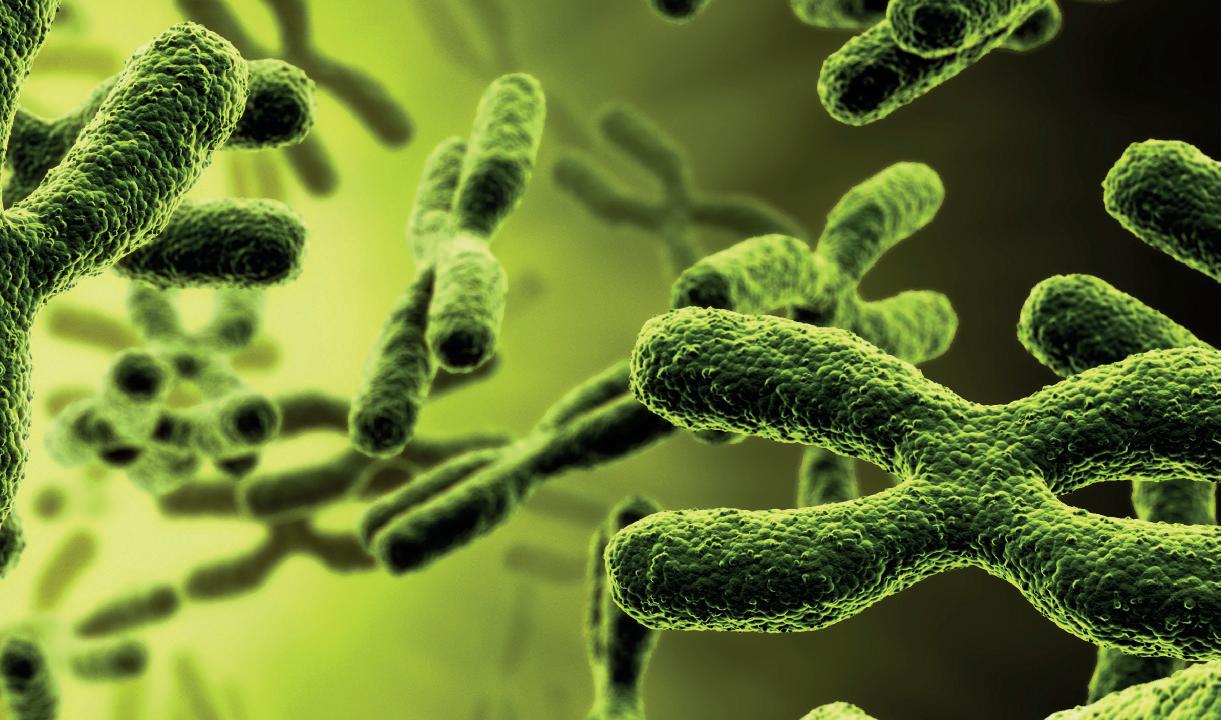
Woman cured of rare disease by freak genetic phenomenon
‘Rare genetic event’ first of its kind in the world
Shanna Hamilton
Genetic instability and a rare process of DNA rearrangement has spontaneously cured a woman of an inherited immune disorder, over 30 years after she was born with the condition.
In 1964, reports in e New England Journal of Medicine described a 9 year old girl who suffered recurring bacterial infections, and presented with unusually low levels of white blood cells that were so sorely needed to fight off the barrage of microbes attacking her body. is patient was the first ever WHIM patient to be diagnosed, and now at the age of 59, by a rare genetic event, has been cured.
WHIM syndrome is a genetically inherited disorder, the name an acronym for some of the horrible disease manifestations. W stands for warts, caused by the Human Papilloma Virus (HPV), which are often uncontrollable, untreatable and may even progress to cancer. H stands for hypogammaglobulinemia, a mouthful of a term to describe a type of immune deficiency. I stands for infections, which sufferers have frequently. Finally, the M stands for myelokathexis, a disorder of the white blood cells that was seen as the first presentation in the woman now cured 20 years later.
e disease is extremely rare, thought to affect only 60 people in the world, and although sufferers normally survive well into adulthood, they can suffer tremendous scarring, hearing loss, side effects from infection and the constant risk of contracting cancer from HPV.
... she said she was fine. At this point we got very, very interested
A particular gene was linked to WHIM in 2003 by geneticist George Diaz – CXCR4. is codes for a receptor, a cell surface protein used by white blood cells to detect chemical messengers. A healthy person has two normal copies of CXCR4, but WHIM patients have one normal and one abnormal copy. is abnormal copy means the receptor doesn’t work properly, with white blood cells sticking to the bone marrow instead
of moving into the blood to attack a bacterial invader.
Dr Phil Murphy, an immunologist at the National Institute of Health’s Clinical Centre, has long been interested in WHIM syndrome, trying to improve our understanding and potentially find a drug to stop the action of a faulty CXCR4 receptor. He was obviously intrigued when in 2013, a woman was concerned about her two daughters having inherited the disease. It was uncovered that this woman was the original WHIM patient from 1964, who has passed the genetic disorder onto her two daughters, who are now in their early 20s. Both daughters suffer the classic symptoms, including uncontrollable warts, and analysis of their DNA showed they both had a mutation in CXCR4. What was most puzzling to Dr Murphy was the health of the mother. “When we asked a simple question – ‘How was she doing?’ – she said she was fine. At this point we got very, very interested.”
e woman reported that all through her childhood and early adulthood she suffered awful infections, often requiring hospitalization, and had hands constantly covered in warts. However, by the age of 38, all of these warts had spontaneously cleared and her health dramatically improved. Frequent infections were now a thing of the past, although doctors said the chances of a cure were “astronomically low”.
Looking more closely at her DNA, Dr Murphy and his team were very surprised to find that the white blood cells were 164 genes shorter than they were supposed to be. ey no longer contained a faulty CXCR4 code, although other cell types in the body carried it. e only logical explanation seems to be down to a rare genetic phenomenon that was only discovered 4 years ago – a process called chromothripsis.
Imagine a tower of lego bricks, each differently coloured. is tower
of bricks builds up one of your chromosomes, a structure containing the specific instructions of DNA. Each brick of the tower corresponds to a gene in your DNA, with one of these bricks coding for CXCR4. Occasionally, this tower of bricks shatters – the chromosome falls apart during cell replication. e tower then reassembles, but with the building blocks in a different order. Normally, the cells die because of the damage, or in a disordered state, contribute to cancer.
But in the case of this WHIM patient, during rebuilding of the blocks, one copy of CXCR4 didn’t reassemble and wasn’t incorporated – the mutant copy that caused her disease. is occurred in a blood stem cell, a specialist type of cell that then replicated to replenish her body with healthy white blood cells lacking a mutation, effectively curing the condition.
In Dr Murphy’s paper, published in scientific journal Cell, the team describe this as an “unprecedented
experiment of nature”, that provides evidence that this process of chromosome shattering and rebuilding “may result in clinical benefit, in particular, cure of an inherited disease”. e hope is that chromothripsis may be exploited, with clinical applications downstream in transplantation and gene therapy.
Dr Murphy said, “It is really kind of remarkable, she started out as this very unlucky girl and ended up winning the lottery by having this incredibly rare event, the only one reported in the world to date.”





“
” The disease is extremely rare, thought to affect only 60 people in the world...
25 SCIENCE
Pictured: Header: DNA Chromosomes
Above: e warts caused by the genetic disease WHIM.
“ ”
Left: e mechanism for Chromothripsis
SOCIETIES
Barney’s Note
Hi there everyone! Now begins many societies’ preparation for our big events in March, the Fringe Festival , between 16th-22nd March, and Go Global on the 21st March, in case I
What’s On
Monday 16th February
Student Enterprise Ignite
5th - 22nd February
Cardiff University Conference Centre
LGBT+ History Month: Bi Poster Competition 3rd - 17th February
Student Advice Student Advice Drop In Noon - 2pm
Meeting Rooms close to the IV Lounge, Heath Park
Student Minds Supporting the Supporters: Part 2 6pm - 8pm Room 3A, Students’ Union
Maths Society MathSoc go Bowling!
7.30pm – 10.15pm Hollywood Bowl, Cardiff Bay
Student Scout and Guide Society SSAGS does Robot Wars 7.30pm - 10pm
Tuesday 17th February
Dermatology Society Welcome Evening
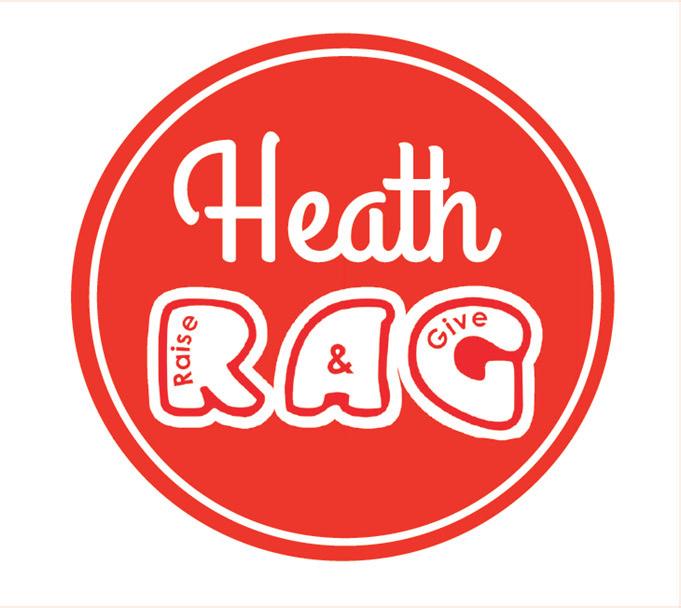
haven’t mentioned them enough already! And the big news: Go Global tickets are going on sale on Monday! For those of you that don’t know, Go Global is an INCREDIBLE festival of
7pm - 9pm Michael Griffiths Building Lecture eatre
Art Society Oil Pastels and Watercolour!
8pm - 10pm Room 4H, Students’ Union
Wednesday 18th February
Skills Development Service Short Course in Personal Effectiveness 2pm - 4pm
Global Health Student Network We Have A Drug Problem! Universities Allied for Essential Medicines Cardiff Launch 5.30pm - 8pm Small Chemistry Lecture eatre, Main Building
Women’s Association History of Abortion Rights Talk 6pm - 8pm Room 4G, Students’ Union
Graduate Centre Chinese New Year Party 7pm - 11pm Graduate Centre Act One
Student First Aid
Would you know how to save a life? Learning just these two skills could make all the difference. Your best friend is unconscious, flat on their back, in the middle of
your house party. Luckily, they’re still breathing. What do you do? Put them in the recovery position! Move them onto their side and tilt their head back. Putting them in this position helps them keep breathing by making
tweet us @gairrhyddsoc email us societies@gairrhydd.com or visit us online at gairrhydd.com/
culture and diversity held each year in the Great Hall. Tickets start at £3 and go up to £4 after two weeks. More information is available on the website but buy fast as the event sold out last year!
In other news, the Guild of Societies at the last count now has over 8250 unique members which has been quietly rising since the Refreshers Fair. The joining price has fallen
Moctezuma Nosebleed See article
18th February 7.30pm - 21st February 10pm
ursday 19th February
Student Enterprise Business Planning Process 6pm - 8pm Room 4J, Students’ Union
Expression
Fitness
6pm – 7.15pm 4A/B, Students’ Union
Student Minds Eating Disorder Support Group 6.15pm – 7.15pm Room 4F, Students’ Union
LGBT+ History Month: Slam 7pm – 10.45pm Shot in the Dark, City Road
Friday 20th February
Student Volunteering Cardiff SVC Ball 7pm - 1am e Angel Hotel, Cardiff.
Expression Trip to see ‘What the Body Does Not Remember’ 7.30pm – 9.30pm Wales Millennium Centre
Comedy Society SKIP Comedy Night
Put your Elected Officers in a bath of beans
to only £3 so signup today if you have yet to get involved. The societies are always ready to accept new members.
Get in touch if there is anything you need from me, either drop me an email on VPSocieties@cardiff. ac.uk or pop in to the third floor of the Students’ Union. I am always here to help you get involved! Until next time, much love – Barney.
7.30pm - 10pm CF10
Saturday 21st February
BRAWL All Day Boardgaming 9.30am - 10pm Room 4J, Students’ Union
Sports and Exercise Medicine
Get Stuck In to SEM. USEMS
Practical Conference 2015 21st February 10am - 22nd February 5pm Michael Griffiths Building, Heath Park Campus
Broadway Dance Society Dance Competition! 11.30am - 4pm Y Plas
MedSoc MedSoc Preclinical Ball 7pm - 1am e Vale Resort
Sunday 22nd February
Optometry Society OPSOC House Cup 10am - 6pm Talybont Sports Centre
RAG
Garden Makeover at Local Homeless Shelter Noon - 2pm Meet in SVC, Second Floor Students’ Union
Waxing Session with Cardiff Marrow 18th February 1.15pm – 1.30pm Cochrane Library
24 Hour Cyclathon 19th February 8am - 20th February 8am
Concourse and Cochrane Library
Heath Park Games 21st February 9am - 5pm
Talybont Sports Hall
February 7.30pm – 9.30pm
sure that their own tongue, blood or vomit does not choke them. As soon as possible, call 999, or get someone else to do it.
You’re pre-drinking one evening with your friends, dancing around your flat. One of your friends slips on a patch of spilt drink and falls over, hitting their head, hard, on the floor. What do you do?
#HeathRAG
Ask them to rest and apply a cold compress to the injury (use ice in a glove, frozen peas in a tea towel or anything like that. Be creative!) Assist the person to rest on their side with their head tilted back. If they become drowsy or the situation deteriorates, call 999 or get someone else to do it. NEVER give them a paracetamol or other pain relief.

Have an event you want covered? Email: societies@ gairrhydd. com
loads
healthcare students will be working with our clubs and societies to raise money for some amazing charities. Our charities for this year are Anthony Nolan, SKIP, St Jermones, and the rest of the money will go to the official Cardiff RAG. What’s
Week: Wear red
RAG day 16th February 9am - 5pm Across the Whole Heath Park Campus
Heath RAG is back for 2015,
of
On for Heath RAG
for
16th
IV Lounge
16th
IV Lounge
Quiz
Heath
Social Club
Krispy Kreme Sale with the Dermatology Society
February noon - 2pm
February noon - 2pm
Healthcare Music Society and SKIP Pub
16th
Sports and
The Red Cross Group
Lorna Baggett
IOrnithological Society
A new opportunity to spread your wings
n 2014 the Cardiff University Ornithological Society (CUOS) was hatched. The society had already been running for a number of years unofficially, with the support of founder and expert birder Dr Rob Thomas, but became official in September 2014. The activities in our society are focused around the study and appreciation of birds, with events that aim to educate and enrich our understanding of birds and their fascinating behaviours. CUOS is an opportunity to meet with people who have similar interests and to get involved in the conservation and support of a group of species that many people love.
Unfortunately our Society missed the chance to be represented at the Freshers Fair in September, however we had a very successful stall at the Refreshers Fair, which was a brilliant opportunity to advertise our society and attract new members. If we were to start the society again we would also ask for a small membership fee from the beginning, as unfortunately the Students Union does not give
any financial support to new societies in their first year and the cost of minibus fuel was higher than we anticipated. However, the Society is still in its infancy and there is plenty of room to grow! Our aims for next term are to elect a new committee and to recruit some more members. Our society welcomes anyone, no matter your experience- from those who are just starting out, to fullyfledged twitchers.
We are also planning some trips and events for the upcoming weeks and months, including a talk from a representative of the British Trust for Ornithology (BTO) on Thursday 19th February and a Society trip on the 15th March (destination to be confirmed). Further events to watch out for are a bird ringing demonstration by a qualified bird ringer and a talk from the well-known Welsh television wildlife presenter Iolo Williams. If you would like any more information on any of our activities, please visit our page on the Students’ Union website or visit our Facebook page.

All events must be signed up for in advance. To sign up and for more information, go to cardiffstudents.com/ giveitago.
Try a Sport
Give it a Go Skiing
5.15pm 16th February
Meet at back of Students’ Union
Give it a Go Snow Boarding
5.15pm 16th February
Meet at back of Students’ Union
Give it a Go Jiu Jitsu
6pm 16th February
Talybont Dojo
Give it a Go Volleyball
6.30pm 17th February
Talybont Sports Centre
Be Creative!
Give It a Go Sci-Fi
6.45pm 16th February
Meet at front of Students’ Union
Give It a Go Anime Workshop
6pm 17th February

4G, Forth Floor of the Union
Give It a Go Creative Writing 6.45pm 17th February
Meet at front of Students’ Union
Give It a Go Anime Screening 7pm 20th February
Large Shandon Lecture eatre, Main Building
Music, Dance & Performance
Give it a Go Slash Hip Hop 7pm 16th February
CF10, Students’ Union
Give it a Go Dance-Sport
- Salsa 6pm
- Latin & Ballroom 7.30pm
- Technique Class 9pm 17th February
Great Hall, Students’ Union
Get some Skills
Listening & Awareness
2pm 17th February
Room 2, CSEV, Students’ Union
Time Management
2pm 19th February
Room 4i, Students’ Union
Leadership
2.30pm, 19th February
Room 2, CSEV, Students’ Union
Assertiveness 10am, 20th February
Room 4i, Students’ Union
Heath Park
Dermatology Society Careers 7pm 17th February
Michael Griffiths Building LT
Give it a Go Basketball 2pm 21st February
Heath Sports Hall
Give It a Go Medics Hockey 4pm 22nd February
Talybont AstroTurf
Learn a Language
Give It a Go Conversation Classes: Catalan 1.30pm 18th February e Lodge. Y Plas
ought, Culture & Faith
Give it a Go Model UN 6pm 17th February
Students Union Room 4H
Socialist Meet & Greet 7pm 17th February
Students Union Room TBC
Give it a Go Debating 7pm 19th February
Cafe in Bute Building
Welfare & Volunteering
Give it a Go Feed the Homeless 3pm 18th February

Beneath the Queen Street railway bridge on Newport Road.
Garden Makeover at Local Homeless Shelter 12pm 22nd February
Meet in SVC, Second Floor Students’ Union
27 SOCIETIES
Con-
Pictured: Crested partridge/ troll bird
Photographer: Laura Sargent
28 SOCIETIES
e Gair Rhydd Guide to the 2015 Real Ale and Cider Festival

REAL ALES

The Cardiff University Real Ale & Cider Society is hosting their annual Real Ale & Cider Festival on ursday 19th and Friday 20th February in the Great Hall. ey promise to provide the biggest selection of ales and ciders in Cardiff, possibly in all of Wales for these two days.
Although you won’t find your usual Taf tipple here, there will be some-
thing for everyone, whether you’re into something fruity such as a Kopparberg cider, or a stout such as Guinness. e bar staff know their stuff and can recommend what you might like if you’re a complete novice, alternatively if you consider yourself something of a connoisseur then you’ll be in your element.
Entry is just £3 which includes a
commemorative festival pint glass and a programme. Bring your pint glass back on the second day to get discounted entry! Alternatively, there is a special bundle which includes entry and 6 tokens for a tenner. Additional tokens will cost £1.60 each, with 1 token getting you half a pint of any ale or cider, and 2 tokens getting you a glass of mead or wine. Bargain!
ese aren’t the only breweries in attendence. e following will be arriving with surprise brews that’ll be announced on Wednesday.
Brecon
Crafty Devil
Great Heck
Heart of Wales
Pixie Spring
CIDERS
Untappd
Tiny Rebel
Tudor
Here’s a list of wholesalers and the ciders they’ll bringing to the festival. All ciders are ABV 4-7.5%.
Brewery Name Style ABV Pipes Smoked Lager Smoked Lager 5.4% Pipes Altbeer German Beer 5.0% Celt Amarillo Pale Ale 4.1% Celt Oak King Weissbier 6.3% Celt Home of the Fruitcakes Fruit Saison 6.0% Otley 06 Porter Porter 6.6% Otley 09 Blonde Pale Ale 4.8% Otley Saison Obscura Saison 5.5% Otley O-Rosie Bitter 4.3% Bristol Beer Factory Sunrise Golden Ale 4.4% Bristol Beer Factory Milk Stout Milk Stout 4.5% Conwy Rampart Brown Ale 4.5% Conwy Welsh Pride Bitter 4.3% Dark Star American Pale Ale APA 4.7% Dark Star Winter Meltdown Pale Ale 5.0% Exmoor Ales Exmoor Beast Strong Porter 6.6% Exmoor Ales Exmoor Ale Best Bitter 3.8% Gloucester Festive Spice Winter Ale 4.9% Gloucester Mariner Pale Ale 4.4% Mauldons Black Adder Stout 5.3% Oakham Inferno Pale Ale 4.0% Oakham Citra Best Bitter 4.2% Orkney Dragonhead Stout 4.0% Orkney Red MacGregor Ruby Ale 4.0% Purple Moose Dark Side of the Moose Dark Ale 4.6% Purple Moose Snowdonia Ale Pale Ale 3.6% RCH Hewish IPA IPA 3.6% Saltaire Cascade Pale Ale APA 4.8% Saltaire Hazelnut Coffee Porter Light Porter 4.6% Brewery Name Style ABV Saltaire Triple Chocoholic Triple Chocolate Stout 4.8% Skinners Heligan Honey Bitter w/ Honey 4.0% Titanic Mild Mild 3.5% Titanic Iceberg Wheat Beer 4.1% Redwillow Sleepless Amber Ale 5.4% Waen Pampelmousse APA 4.2% Waen Chili Plum Porter Pale Ale 4.8% Waen Alright Treacle Treacle & Blackberry Stout 5.5% Waen Mystery beer! ? ?
•
•
•
•
•
•
•
•
•
•
Hallam Allen dry Allen medium Cider by Rosie sweet Honey Pot medium Hecks sweet Hecks dry Hecks medium Hecks perry Dorset Nectar dry Dorset Nectar medium Dorset Nectar sweet Border Orchards medium Celtic Marches (Lily the Pink) medium Celtic Marches (Thundering Molly) medium Dan Y Graig (Whisky Cask) other Dan Y Graig (Llantillo) dry Apple Country sweet Butford Organics sweet
PLUS:
Kite
Mad Dog
Entertainment
THURSDAY
8-8.45pm
9-9.45pm Starling Radicals
10-10.45pm Nowhere Boy
Hallam (Cont’d)
FRIDAY
8-8.45pm
9-9.45pm
Butford Organics perry Cotswolds (Sweet Cheeks) sweet Cotswolds (No Brainer)
Severnsider
Farmhouse Cyder perry
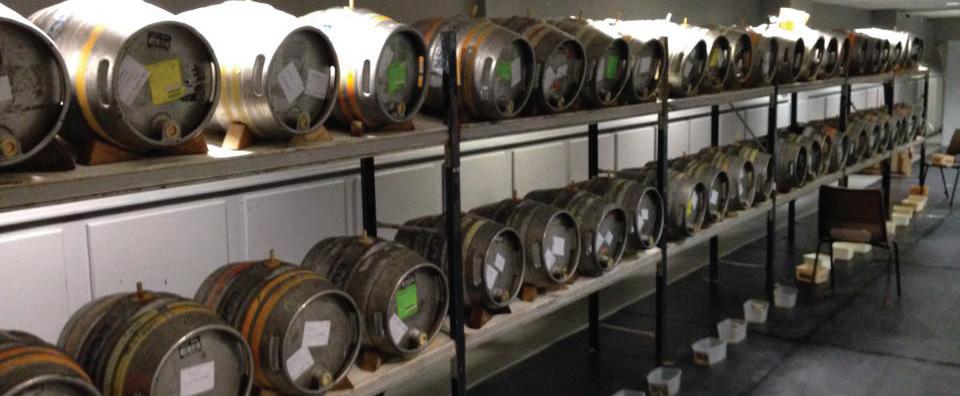
Recommendations
We spoke to a few of the festival organisers, Alex Evans & Gareth Dumper, to get their recommendations on which ales and ciders to have a try of over the two days of the festival. Prepare to acquaint yourself with a few of the more characterful beverages on offer:
ALES
(via Alex Evans)
Otley O9 Blonde - 4.8%
A delicious pale ale. Very fruity and lightly spiced with subtle flavours of cumin, coriander, and orange peel. Not dissimilar to Hoegaarden (and it actually used to be called O-Garden), but far, far superior.
Waen Chilli Plum Porter - 6.1%
An unusual dark beer, rich and smooth, which really is made with chilli and plums! A strange combination, but one that actually works amazingly well.
Oakham Inferno - 4%
Another light, fruity pale ale. A regular at our festival for years, this beer is always popular, and always sells out fast. Very easy to drink.
Saltaire Hazelnut Coffee Porter - 4.6%
A smooth, dark red porter, infused with ground coffee and hazelnut syrup. First appeared at our 2013 festival, and been a firm favourite ever since.
PIPES Smoked Lager - 5.4%
A traditional Bavarian-style Rauchbier, made with malt smoked over an open flame. Has a delicious smoky flavour, unique to this style of beer.
Purple Moose Dark Side of the Moose - 4.6%
A delicious dark ale, with a rich, smooth flavour. Served at our festival for as long as anyone can remember, this is one of our favourite beers.
Exmoor Beast - 6.6%
One of the strongest beers at the festival, this beer really lives up to its name! A powerful dark beer, this one is certain to sell out fast - get there on the ursday if you want to try it!
Celt Home of the Fruitcakes - 6.0%
A bit of a mystery (none of us have tried it yet!), this beer is brewed by two of the most exciting names in brewing, Celt and Brewdog. Made with frankly ridiculous quantities of strawberries and raspberries, this beer is extremely light and fruity - deceptively so, considering its strength. Likely to sell out fast, so recommended to come on ursday if you want to try it.
Waen Pampelmoose - 4.2%
A particularly fine APA (American Pale Ale), really easy to drink, and popular with everybody - regardless of their taste in beer.
CIDERS
(via Gareth Dumper)
If you’re after something sweet try Gwynt y Ddraig’ s Autumn Magic (4.0%), a farmhouse cider mixed with blackberrys for an exceptionally fruity taste, think of Koppaberg, but with a more robust flavour.
If you prefer the drier ciders then have a look at the Blaengawny Heartbreaker (6.0%) a more traditional cider with a smooth finish, and little bit of bite.
For those looking for a middle ground why not try gwatkins award winning Yarlington mill (7.5%) farmhouse medium cider. But be warned this is a fairly strong cider so be careful not to overdo it.
Finally, if you enjoy a good perry (a cider made using pears instead of apples, and usually very sweet), try some of the Trogi Perry (6.5%), a tart and aromatic perry, that doesn’t overpower with sweetness.
29
SOCIETIES
Double
sweet
medium
Vision sweet Double Vision perry Troggi
Troggi perry Severnsider perry
sweet
Rosies Triple D sweet
sweet Yarlington Mill medium
Gwatkins Stoke Red
Golden Valley medium Pyder perry
Treasure sweet Blindfold medium Heartbreaker dry
y
Dragon medium Celtic Warrior sweet Dog Dancer medium Autumn Magic sweet
medium Haymaker medium Ancient Warrior dry Welsh Warrior medium
Trees Perry perry Pyder perry Fiery Fox medium Farmer’s Pride medium Happy Daze medium Happy Daze (10 Litre) medium
Blaengawny National
Gwynt
Ddraig Black
Scrumpy Cider
Two
Damn em Skeletons
Atlas
Atticus
Animal Brothers 10-10.45pm Life in Cold Climates
Rachel Phillips
Act One present original Expressionist play
Llanover Hall will be hosting a different kind of production to the usual children’s shows and pottery classes. Moctezuma Nosebleed, presented by Cardiff University’s Act One Society, is set to open there next week. It is the premiere of a new work by Bruno Leon Chavez, who has already had two plays performed by the society – however, this is his first long term project.
In this Expressionist play, injected with Absurdist humour, a girl finds comfort in a room with a bare lightbulb and three young business women flee comfort in the act of ritual violence. Bruno says his intentions were to highlight the simi-
larities between quotidian life and cult like behaviour as a vicious reaction to bureaucracy and modern day scapegoatism. His inspirations include Beckett, Berkhoff, Artaud and Jairry. The lay includes dance, choreographed by Xpression dance member Lucy Spain, and is set in a minimalistic space.
This play has been in rehearsals since October, with the cast of nine just about confident on their (very) wordy parts. Moctezuma Nosebleed will run from the 18th-21st of February at Llanover Hall in Canton. Tickets cost £6 for students and the doors will open at 7pm. The performance will include strobe lighting and scenes of violence.


For more information visit http:// www.cardiffstudents.com/ activities/society/actone/


DEADLINE : 25TH FEBRUARY ≈ Are you an aspiring artist, photographer or writer? EMAIL YOUR SUBMISSIONS TO EDITORQUENCHMAG.CO.UK OR VISIT HTTP://TINYURL.COM/TYCELF FOR MORE INFORMATION •••••‡≈◊
Pictured: Moctezuma Nosebleed Poster
30 SOCIETIES



February
KERRANG! Tour 2015
13/02/15, £16.50 ADV
Enter Shikari 17/02/15 - SOLD OUT
Chelsea Grin
17/02/15, £10 ADV
The Jesus And Mary Chain
27/02/15, £25 ADV
Treatment presents... Ten Walls Live
27/02/15, £18.50

March
Stiff Little Fingers
08/03/15, £18.50 ADV
The Stranglers
10/03/15, £23 ADV
Sleaford Mods
10/03/15, £10 ADV
Halestorm 13/03/15, £15 ADV
Four Year Strong 24/03/15, £14 ADV


April
Lower Than Atlantis 09/04/15, £12 ADV
Limehouse Lizzy vs Livewire AC/DC 17/04/15, £20 ADV
May
Hoobastank 15/05/15, £22 ADV
@CARDIFFUNION CARDIFFBOXOFFICE CARDIFFBOXOFFICE.COM | All tickets subject to booking fee

in association with #teamcardiff welshvarsity.com Wednesday 22nd April Cardiff University v Swansea University anyonecanbea >hero>
Presented by:



BUCS results: Wednesday 11th
February
Trampoline Club jumping for joy
Cardiff University Trampoline Club once again scored highly at their latest competition in Cambridge, competing against two other universities including Cardiff Met and the University of South Wales.
An excellent weekend of travelling and competing was capped off with four medals for the team at the prestigious Cambridge Open.
In the women’s SUTL 5, Cardiff took two medals, with Michelle Bicknell claiming the silver and backing that performance up Charley Bull achieved a bronze. ere was another individual medal later in the
day for Emma Wallce in the roulette synchro.
Bucknell combined with teammates Cerys Erwood, Jess Handley and Laura Westacott to take the silver medal in the team competition, arguably the blue ribband event of the competition. is result was a representation of Cardiff ’s fantastic strength-in-depth, which was clearly among the best at the competition.

e Cardiff team was 15-strong in total, with strong performances all round. Making the 400-mile round trip to Cambridge also highlighted the dedication of all of the team members. e competition day was action-packed with excellently executed routines, along with some crashes and plenty of team support and laughter. Next up for Cardiff is the BUCS Championships this coming weekend, followed by their very own competition, the Dragon Cup, the following week. e trampoline club will be aiming to continue this year’s success at two of their most important competitions over the course
of February and March.
H/A Sport Team Opposition Result W/L/D
Tennis Cardiff University women’s 2nd Aberystwyth University women’s 1st 4-8 L H Lacrosse Cardiff University women’s 2nd Cardiff Met University women’s 1st 3-26 L
Football Cardiff University men’s 5th Aberystwyth University men’s 2nd 0-1 L H Rugby Union Cardiff University women’s 1st University of Bristol women’s 1st 7-34 L
Rugby Union Cardiff University men’s 3rd Hartpury College men’s 3rd 5-28 L H Football Cardiff University women’s 2nd University of Southampton women’s 2nd 8-0 W H Rugby Union Cardiff University men’s 5th Aberystwyth University men’s 2nd 26-11 W H Rugby Union Cardiff University men’s 6th Bath Spa University men’s 1st 65-10 W H Squash Cardiff University men’s 1st Cardiff University men’s 2nd 5-0 W/L H Netball Cardiff University women’s 5th Swansea University women’s 3rd 44-18 W H Basketball Cardiff University men’s 2nd Cardiff University men’s 1st 40-47 W/L H Netball Cardiff University women’s 4th (Medics) Cardiff Met University women’s 3rd 43-37 W H Hockey Cardiff University women’s 4th Swansea University women’s 2nd 12-0 W H Hockey Cardiff University women’s 1st Oxford University men’s 1st 4-1 W H Hockey Cardiff University women’s 3rd (Medics) Cardiff University women’s 2nd 2-0 W/L H Lacrosse Cardiff University men’s 2nd University of South Wales, Pontypridd & Cardiff men’s 1st 9-8 W A Lacrosse Cardiff University women’s 1st University of Bath women’s 2nd 16-1 W A Rugby Union Cardiff University men’s 1st University of Exeter men’s 1st 20-45 L A Football Cardiff University men’s 7th University of Exeter men’s 5th 3-2 W A Tennis Cardiff University men’s 2nd Cardiff Met University men’s 3rd 8-4 W A Football Cardiff University men’s 4th Cardiff Met University men’s 4th 1-2 L A Basketball Cardiff University men’s 1st Cardiff University men’s 2nd 47-40 W/L A Hockey Cardiff University women’s 2nd Cardiff University women’s 3rd (Medics) 0-2 W/L A Squash Cardiff University men’s 2nd Cardiff University men’s 1st 0-5 W/L A Tennis Cardiff University men’s 1st University of the West of England men’s 1st 8-4 W
Eloise Brian
H
H
H
33 SPORT
Pictured: The members of CUTC
34 SPORT
Head injuries back on the agenda
Joe Atkinson
The fallout from Wales’ opening Six Nations defeat to bitter rivals England rumbles on, in particular the controversy surrounding the failure of the Welsh to bring off George North, who was knocked out 60 minutes into the 16-21 defeat at the Millennium Stadium.
North, a key figure in Warren Gatland’s squad for the series, appeared to be rendered momentarily unconscious after a clash of heads with teammate Richard Hibbard while the pair tackled England’s Mike Brown close to the Welsh try-line.
However the WRFU’s medical staff failed to recognise that North had been knocked out, with television pictures quite clearly showing the Wales wing’s body go limp in the moments following the collision with Hibbard.
“ ...television pictures quite clearly [showed] the Wales wing’s body go limp...
e implications of any head injuries have been well documented recently, following controversy in football over Tottenham Hotspur’s decision not to substitute goalkeeper Hugo Lloris after a similar injury, and North was immediately pulled out of this gone weekend’s game with Scotland.
e seriousness of head injuries in sport is perfectly exemplified by the tragic case of Australian cricketer Phillip Hughes, who died in November after being struck on the head by a cricket ball which bypassed his helmet’s defences.
Wales’ medical staff has come under scrutiny in light of these events, and

have been accused of carelessness in terms of failure to protect their players. It must be pointed out though that North was KO’d for a matter of seconds before returning to his feet apparently unaffected.
is incident highlights how quickly a player can be knocked unconscious and get straight back up without any exterior evidence to suggest injury. ere have been suggestions that the video referee should be responsible for
Women’s rugby fall to Bristol at home
Cardiff..........................................7
Last Wednesday, Cardiff’s women’s rugby team took on the tough challenge of facing Bristol women’s formidable side. After the last encounter with Bristol, which ended in a 17-17 tie, Cardiff were pumped for a home tie.
Cardiff started off well, holding their defence and attacking when in possession of the ball. They were put under pressure by Bristol, especially when passing the ball out to the wings.
Bristol played very well from the outset, with their attack as strong as their defence. The two sides were matching one another at the rucks and scrums, with Cardiff winning the lineouts generally.
It took about 25 minutes of deadlock for anyone to get on the scoreboard. It was Bristol’s number 13 who managed to break through the defence and outrun the Cardiff girls to score the first of Bristol’s tries, which was then converted. Just before the end of the first half, Abigail Berry came on for Cardiff in place of Anna White, who had taken a knock to the head.
Once the second half started and a few positions were shuffled up, things went slightly downhill for Cardiff. Bristol were consistent in exploiting their weaknesses and causing gaps in the defence. This then allowed Bristol to score three more tries, two of which were converted.
Throughout the rest of the second half, Bristol kept putting Cardiff under pressure, causing unforced errors and turnovers at the rucks.
During the second half, Rosie Harris, Laura Ann Waddilove and Emily Houghton were put on for Beth Stafford, Nicola Earl and Kasia Davies.
For about 10 minutes, Cardiff had a great spell of play, which lead to Houghton scoring Cardiff’s only try, with Elinor Davis converting. But unfortunately Cardiff let that great play fall, letting Bristol score another try. Bristol’s number 13 proved to be the star of the day, scoring most of their tries by breaking through the Cardiff defence.
Despite losing the game, Cardiff played well and learnt where their weaknesses lie. They now have a well-deserved break until they play Plymouth in March.

reporting such incidents to the match officials to allow players who suffer such injuries to be taken off as soon as they are injured.
A concussion can lead to the brain taking in less blood and oxygen vital to its continuing function, while multiple concussions can be potentially fatal – North earlier in the match suffered an accidental boot to the head, but was fortunately not knocked out in this instance. An article by Shanna
Hamilton in the Science section of Gair Rhydd issue 1040 explains the implications in detail.
As well as the medical team Warren Gatland himself has come under fire in some bizarre theories claiming that he left North on the field in the full knowledge that his player could potentially be suffering concussion. is of course is unlikely and an unhelpful accusation in what is a contentious and delicate subject.
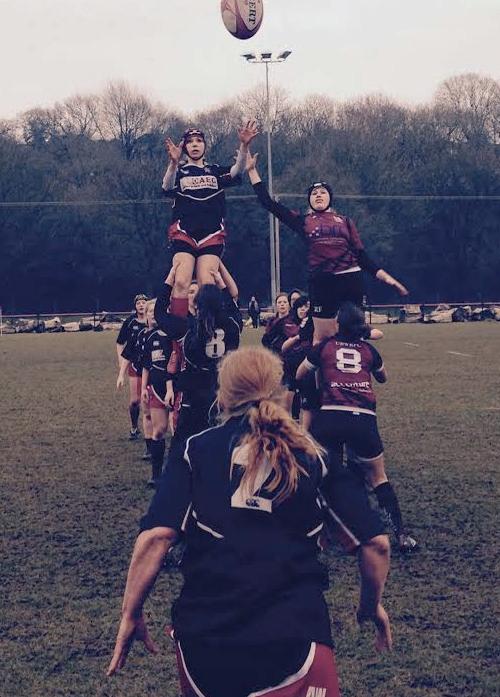
Bristol.........................................34
Kelli-Jo Davies
CARDIFF: M O’Sullivan, H Brench-Jones, H Hearle, E Davis, N Earl, K davies, A Stean, N Harrison, A White, C Butler, H Cox, L Cooper, A Fleming, J Benton, B Stafford (C), K Davies, A Berry, R Harris, C Francis, L Sutton, E Houghton, L Waddilove, M Compton
”
Pictured: North during the game in question
Pictured: Cardiff’s women compete for a line-out


Sport’s Pitch: Friday night games
Following scenes
of
violence in Cardiff city centre after the opening game of this year’s Six Nations, we look at the case for and against Friday night matches
e have all heard the phrase ‘football is a gentlemen’s game played by hooligans, rugby is a hooligan’s game played by gentlemen’. According to that script, rugby is angelic and football satanic.
e former is the master, the latter the apprentice when it comes to moral discipline.
But that script might need revising as Wales’ opening Six Nations encounter against England was somewhat tainted by the violent behaviour of some supporters in Cardiff city centre throughout the afternoon and into the evening.
Something about Friday nights just makes a game’s atmosphere extra special. Perhaps the bright and beaming floodlights are the ‘secret ingredient’. Perhaps it is the cold temperatures. Add to that the fact that most people have finished work and are excited by the prospect of an enthralling weekend of rugby, and you have the recipe for a thrilling Friday night of action.
Encouragingly, South Wales Police have revealed that there was no increase in the number of incidents reported than at any other international fixture in the past.
therefore, the violence associated with alcohol, making it almost certain that the levels of fan intoxication are much higher for Friday night games.
Wales is currently the only one of the Six Nations that can host games on Friday nights. England, Ireland, Scotland, Italy and France have all cited administrative and safety reasons that make Friday night matches unrealistic and inconvenient. Indeed, the WRU might now want to follow suit and argue safety reasons as justification for no Friday night matches.
“ Something about Friday nights just makes a game’s atmosphere extra special
With the match not beginning until 8.05pm and pubs open as early as midday, there was more than enough time for excessive alcohol consumption – and many fans seized this opportunity. Reports of fans brawling in toilets, bottles being thrown inside the stadium, and intoxicated supporters behaving moronically in general were aplenty the next day.
e substantial amount of litter that remained on the city centre’s streets, and the bloodied faces of some fans, served as poignant reminders of the pejorative scenes. While rugby’s reputation is still just about intact, the damage was sufficient to raise doubts over the scheduling of matches on Friday nights.
Natty Corbett, a History student at Cardiff and an avid rugby supporter, believes that the Friday night matches should continue: “I’d say the vast majority of supporters from both sides are just having a good time. It’s a very small minority that bring bad press on the others. If properly managed, the games and the rivalry are great”.
On the other hand, it is worth remembering that there were presumably a number of incidents that did not get reported to the police, meaning that the level of violence retains a level of obscurity. Furthermore, the usually earlier kick off on Saturdays and Sundays certainly reduces the time available for supporters to spend in pubs and,
e temptation to do so is clear when you consider the police patrols they had to employ, the queues that built up on the M4 between Magor and High Cross in Newport, and the disruption that was caused to public transport.
It subsequently seems more logical to schedule games for the weekend and to exclude Friday nights – a view held by Gair Rhydd Cardiff Blues columnist Michael Cantillon. Cantillon was in the city centre, close to the Millennium Stadium during and after the Six Nations opener.
Although he did not observe any disorder, Cantillon was ready to criticise the reported incidents, commenting that “the behaviour is a disgrace and unacceptable, especially within rugby, a sport renowned for its enjoyable atmosphere.”
Unlike Corbett, Cantillon does not believe the Friday night matches are tenable. He asks “is it worth putting innocent supporters in danger due to a small percentage of idiots who can’t behave on a Friday night?”
Nevertheless, while the timing of the match tends to be different on a Saturday and Sunday, police patrols are still going to be needed, queues are still highly probable, and public transport is still likely to be affected regardless of what day the match takes place on. Additionally, alcohol can still be purchased in and around the stadium both before and after kick off.
Ultimately, nobody wants a repeat of the chaos. e health and safety of fans should always be prioritised, especially when there are considerable numbers of children attending the matches. Whether this constitutes a complete eradication of Friday night matches is questionable.
A more conservative approach, in which increased safety measures and police patrols are implemented, might be more reasonable. After all, a ban on all Friday night games would be extremely unfair on those wellbehaved supporters who just want to enjoy the match and the phenomenal atmosphere that the excitement of Friday night matches can provide.
Wales’ remaining Six Nations fixtures: February 28th, 17:00
Stade de France
France v Wales
March 14th, 14:30
Millennium Stadium
Wales v Ireland
March 21st, 12:30
Stadio Olimpico Italy v Wales
35 SPORT
Jamie Smith W
”
Gair Rhydd Sport Survey 2015
Sport Editor Rory Benson reveals the results of our recent survey, which asked AU members about the time and money they spent on university sport
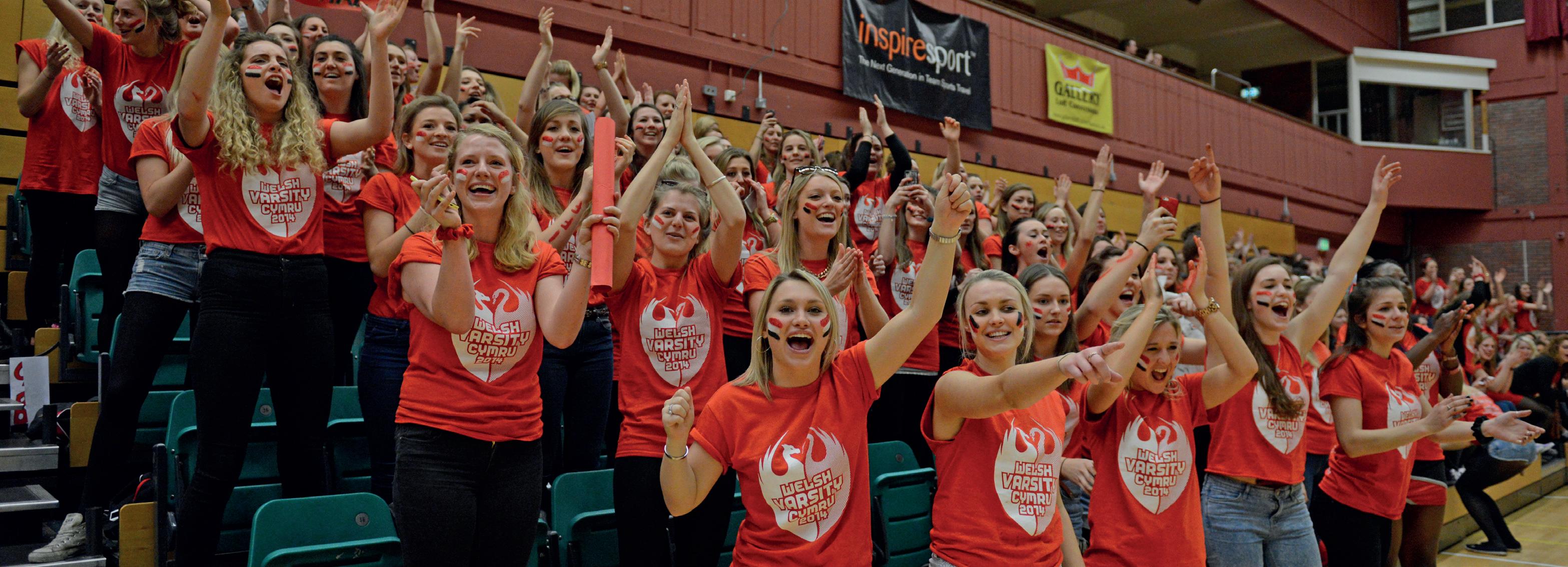

surveyed taking part in university sport in order to compete. is is actually the least important reason for students to get involved with university sport, with 92% joining sports teams to keep fit.
e reason most people joined a sports team was in order to socialise. 98% of AU members joined their sports team to socialise, but these figures may hold more truth for second and third years, rather than freshers.
years who won’t play in their sport’s Varsity match.
e survey also asked AU members whether they believed initiations are a good idea. e AU does not endorse initiaions whatsoever, but 80% of students who are part of the AU believe they are a good idea.
players do not think that sport gets in the way of their studies.
is is an interesting statistic when coupled with the amount of people who miss lectures/seminars for sport as, although 38% of members admit to missing lectures, only 21% believe that their studies are affected.
sharing a tipple in Koko Gorilaz. Overall, AU members and IMG players alike disagree that sport gets in the way of their studies, even though individuals from both sets of players have admitted to missing seminars/lectures in order to turn out for their teams.
Continued from back page “Down with YOLO. Bring back the Lash.”
I found myself rejoining the club because of the mates I had made, not because of my desire to play
Agree Disagree
For example, as a fresh-faced teenager I came to Cardiff University with a passion for football and cricket and a desire to better myself on both fields. I joined both clubs in order to fight for a position and push myself to the highest level I could possibly compete at. However, after a football trial dominated by politics and hierarchy, my competitive edge had been blunted.
I made friends with most of the cricket club members and despite representing the first team on a few occassions, I found myself rejoining the club because of the mates I had made, not because of my desire to play cricket.
is is typical of at least my friends, but arguably most second and third

Even more members of the Athletic Union agree that YOLO should be dumped and reverted back to the Lash. 97% of AU members voiced disapproval at the rebreanding, yet the renaming of the night was undertaken to try to attract more sports clubs. is again is an example of the AU not making decisions based on the students, but rather what the few who hold power within it believe the students want.
e important question to tackle now is whether the Athletic Union is doing enough to help Cardiffians find the balance between sport and the rest of their student lives.
e survey asked Cardiff University’s sportsmen and sportswomen whether they belileved that sport got in the way of their studies.
Despite 38% of AU members missing lectures and/or seminars to play their sport, the majority of

e hours spent on sport per week varies from sport to sport as one might expect. Rugby players spend up to 16 hours a week training and playing, whereas ice-hockey can only take up 2 hours per week.
e amount of time club members spend at socials also depends on the sport. Most footballers attend socials weekly; almost all the cricketers who took the survey attend socials every three weeks; with athletics club members attending sporadically with some going every week and others monthly.
In fact, only 4.1% of AU members never attend their club socials and only 8.1% of players rarely attend socials. It is unsurprising therefore, that 98% AU members play university sport to socialise.
Even some IMG teams hold their own socials, with SocSci regularly visiting Varsity after matches and CUCCFC players occassionally


Average time dedicated to sport per
Rowing - 17.5 hours Medics rugby - 15.5 hours American Football - 13.5 hours Athletics - 12.5 hours
Lacrosse - 11.5 hours
Kayaking - 7 hours
36 SPORT
Do you miss lectures/seminars to participate in club events? Do you miss lectures/seminars to participate in IMG games? “Initiations are a good idea.”
week
“ ” 80.0% 86.5% 62.5% 96.9%
Pictured: Cardiff fans celebrate at last year’s Varisty Photograph: Taliesin Coombes
cricket

The final question the survey posed to AU members was whether they believed that they paid too much to participate in sport at university.
Interestingly, only 36% of AU members believe they spend too much on university sport. This is very surprising, considering the average student spends £39.66 to join their club, as well as the £15 AU fee and any additional equipment.
teams, nor do they provide refereees or umpires. This is down to the clubs we play for and, in turn, we have to pay them to organise club services.
Of course clubs can be granted funding by the university, with gold tier clubs receiving 125% of their income and silver tier clubs receiving 100%. Bronze tier clubs however only receive only 75% of their total income.
membership compared to an AU club such as the Cardiff Cobras, whose rookies have to pay £85 for the season. This is obviously much cheaper, however the organisation of IMG (football at least) leaves much to be desired. Often pitches are called off prior to games being played, leading to confusion and postponing of the matches to the next Sunday.
Despite the extortionate prices, 64% of players don’t think they pay too much at university
Overall, the average student would spend £218.39 in total on equipment and membership to the AU and sport club.Despite the extortionate prices, 64% of players don’t think they pay too much at university. The question now however is why?
Obviously players are passionate about their chosen sport and are willing to spend their pocket money on a new cricket bat or a new kayak, but these pieces of equipment are not bought through the university.
The AU fee goes straight to the university, but what does it buy for the players? The university doesn’t organise fixtures or transport for the
Therefore big clubs which the AU perceives as more important are more or less guaranteed to be financially fine, whereas the smaller, ‘less important’ clubs receive less money. This means more money has to come from the pocket of the player of the obscure sport, rather than the legions of rugby players graduating from Cardiff University.
From the stance of a Bronze tier club member, this adds to the belief that sport is too expensive at University.
The average IMG player however, only spends £9.23 on club
In addition to this, most IMG teams buy their own kits, with one team spending £100 per person on a full strip. Although £100 is one of the most expensive kit, the average price of equipment for an IMG team is £45 per player.
So, in order to play university sport, the average player will pay £218.39, but if you want to save money and play an IMG sport, the average player will only have to fork out around £55. Maybe now these figures are published, more sportsmen and sportswomen will agree that they pay too much to participate in sport at university.



A deeper look at socials
e findings of the survey with regard to the popularity of socials are striking but perhaps not surprising, with team meetings ranked as by far the most popular reason for being involved in sport at university, and with most respondents often dedicating time not only to training, but also to socialising.
e data revelas that 39.8% of respondents attend team socials on a
This year’s rebranding of the Union’s Wednesday night has evidently not proved at all popular

“I take part in university sport to socialise.”
weekly basis, with the figure dropping to 23.6% and 24.3% for fortnightly and monthly respectively. In contrast, a minority of 4.1% claim to never attened socials and a further 8.1% attend rarely. is backs up the fact that more respondents asserted that they did sport at university for the social aspect (97.8% agreed with this), compared to the reasons of ‘to keep

“I take part in sport at university to keep fit.”
fit’ (91.5%) and ‘to compete’ (77.8%) . e popularity of socials among the survey respondents perhaps goes some way to explaining the overwhelmingly positive response to the statement ‘Down with YOLO. Bring back the Lash.” is year’s rebranding of the Union’s Wednesday night has evidently not proved at all popular with social-crazed sportspeople.

“I pay too much to do sport at university”
“Sport at University gets in the way of my studies”
of respondents


37 SPORT
“I take part in university sport to compete.”
“How often do you attend club socials?” 39.8% said “Every Week” 23.6% said “Fortnightly” 24.3% said “Monthly” 8.1% said “Rarely” 4.1% said “Never” %
Pictured: Cheerleaders prior to the Varsity rugby match
Photograph: Taliesin Coombes
“ ”
“ ” 77.8% 91.5% 97.8% 67.8% 79.2%
Exclusive interview: Chris Coleman
The Wales national football manager talks team spirit, Gareth Bale, Euro 2016 and beyond
EXCLUSIVE
CBelgium will be the fancied team of course. They could well be in France on merit if you look at their team
hris Coleman stands on the verge of leading the Welsh National Football Team to the European Championships in France next year. Appointed in January 2012, the former Fulham player and manager has led Wales to their best start to a qualifying campaign in over 20 years. With an upcoming fixture against Group B leaders Israel next month, I caught up with him at a Q&A session organised by Gôl Football Centre in Cardiff:
Wales have some huge games coming up in their European Championship qualifiers, starting with Israel on March 28th. How will you look to maintain the excellent momentum shown in the first three games?
Israel are a very good side- they play Belgium three days later in Jerusalem after we play them in Haifa. Those are two very tough


Michael Cantillon
games for them, even though they are at home, as we intend to give everything. They have two wins out of their last three games, so they ought to be a very tough side to beat. We have only lost one of our last nine games, and are unbeaten so far in our group, but whereas we drew against Bosnia and Belgium, Israel have taken maximum points. It will be a tough encounter, but one in which we’ll look to continue our good form.
And after that is the all important home game against Belgium, who you fought so well against to claim a point back in November. They have outstanding players in their side, how tough will it be to match, or even better your performance in Brussels?
Belgium will be the fancied team of course. They could well be in France on merit if you look at their team and how well they have done. As you say,

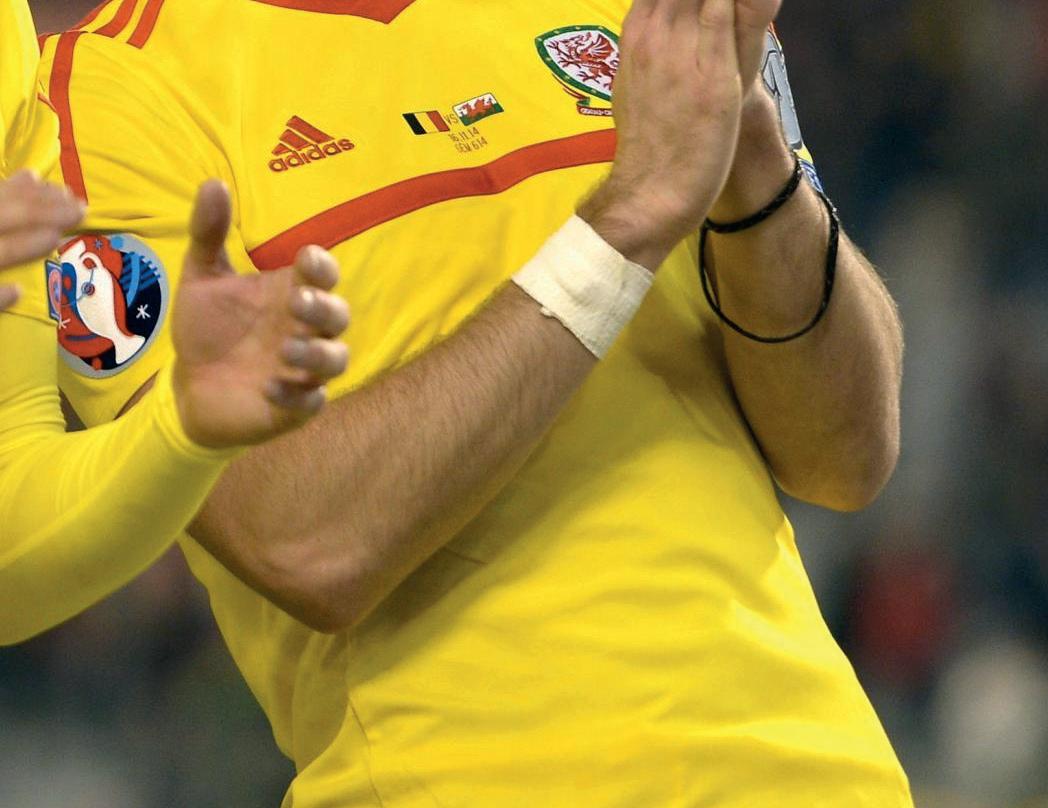
Wales’ 16-21 Six Nations defeat to England at the Millennium Stadium was a painful result for Warren Gatland’s squad, which included three Blues players. Of the three, none showed up to the required level with Gethin Jenkins part of a scrum eviscerated all day by the English, Alex Cuthbert once again a non-entity on the wing, and Sam Warburton uncharacteristically quiet both at the breakdown and in possession. Despite this, Gatland has kept faith with the trio, though Cory Allen and Kristian Dacey have been released
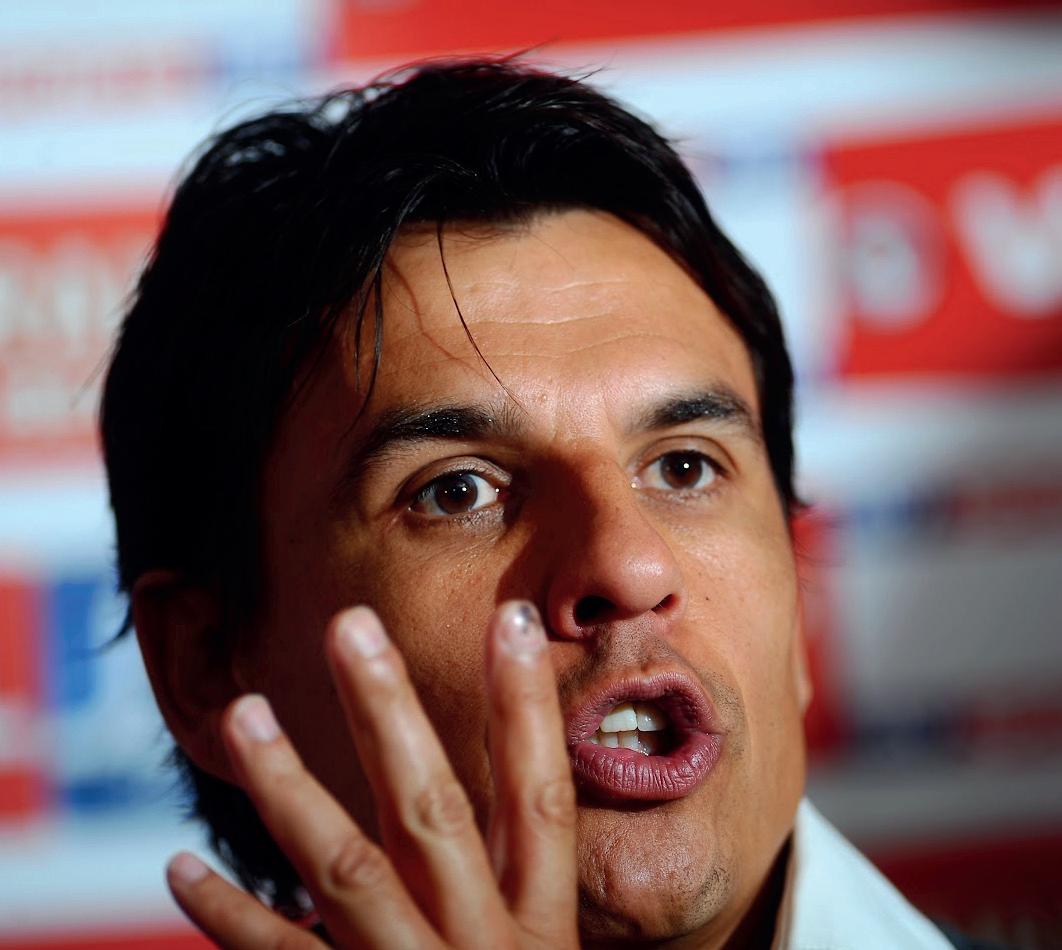
they have great players and leaders all over the pitch; from Courtois in goal, to players like Kompany and Vertonghen in defence. But having said that, we have our own leader in Ashley Williams, a player who has really grown into the role of captain. I played with some great defenders in my time, and Ashley is up there with the best of them. It will be tough, of course, but then again, so was the game in Brussels. We came through that with a point and a clean sheet, but we’re not going to get ahead of ourselves.
In the past, you haven’t had the best of luck with injuries and withdrawals from squads. How good was it then to have a near fully-fit squad to choose from over the past few games, and are there any players you are concerned about, fitness-wise?
It was great to have such a strong team available for our first three qualifying games; it’s always good to have your best players available. It has been tricky in the past to get everyone fit and together, but hopefully we can get a good team together for the next few games. James Collins has had his injury problems at West Ham lately, but
back to the Blues for their Pro12 fi xture against Munster in Cork. Interestingly Gareth Anscombe, despite being absent from the 23man squad for the Scotland game has not been released back to Cardiff and so must be performing the 24th man function.
Elsewhere, Blues forward Macauley Cook has signed a two-year contract extension to remain at the club until 2018 at least. Cook can play at lock or back-row and at just 23 years old is viewed as an exciting prospect for the future. In fact, the 6’4” Church Village
native has featured in 20 appearances so far this campaign, more than any other Blues player.
Director of Rugby Mark Hammett commented, “Macauley is a real leader with heart. He’s an intelligent guy and has made a big impression again this season.” In addition, Alex Cuthbert who has been a peripheral figure for a while now, putting in distinctly average performances for both the Blues and Wales, whilst also having turned down a new dual contract to remain at the club recently, has been defended by Hammett this week, who
there has been no news on him or James Chester at Hull. Chester came in for the last few games and was outstanding, he really was, and Collins will hopefully be fit enough to be part of the squad.
And Sam Vokes of course is back to full fitness with Burnley. Will he be part of your plans?
It would be great to get the big man back, as he played such a big role in getting Burnley back into the Premier League. I know he will be dying to get back out there, he works so hard in training and will be desperate to pull on the shirt again.
To be playing week in, week out at the top level is important, plus we have another option up front after we lost Simon Church to an injury in the last game. He links up well with Gareth Bale, and is a big target man to have up front.
Speaking of Gareth Bale, do you personally think the criticism he has been subject to recently, particularly after Real Madrid’s 4-0 defeat to Atletico, will affect his confidence or performance? No, absolutely not. The criticism won’t affect Baley; he isn’t that type of lad - he won’t let things get to him.
has praised his apparent “hard-work”. e Blues also exited the LV=Cup in the last week, with a comprehensive, record breaking, 9-43 home defeat to the Leicester Tigers. Hammett’s team selection was thus called into question, but his response was that the tournament had only ever been viewed as a “development competition”. Finally, tickets for the Blues’ Challenge Cup quarter-final with Newport have gone on sale, with the game confirmed as a 12.45pm kick off on Saturday 4th April, live on BT Sport.
It would be great to get [Sam Vokes] back [...] He links up well with Gareth Bale, and is a big target man to have up front
 Pictured:
Left: Chris Coleman.
Below: Wales stars Hal Robson-Kanu, Aaron Ramsey and Gareth Bale
Dan Heard
Pictured:
Left: Chris Coleman.
Below: Wales stars Hal Robson-Kanu, Aaron Ramsey and Gareth Bale
Dan Heard
” “
“ ”
38 SPORT

He is the most expensive player in the world, and one of the best, playing for the best team. He is a strong lad, and a strong character. He’s proved time and time again how good he is. He is an important part of both Real’s team and ours, and you see how well he links up with Ronaldo. The fans love him, but because Madrid have a bad result, all players get criticised after a bad result. They’re still top of La Liga, and while it was a defeat, they’ll bounce back from it, as will Baley. He is too good a player not too.
How important is he to the team as a whole? Do the other players have to adapt and play around him, and does this affect the team spirit?
The criticism won’t affect Baley; he isn’t that kind of lad - he won’t let things get to him. He is the most expensive player in the world, and one of the best, playing in the best team
The team doesn’t play around Gareth, just like he doesn’t play his own way and not be part of the team. There is just the team. Yes, he is an integral part of the team, but so is Ashley Williams, so is Aaron Ramsey. You can’t build a team, let alone an international team, around one player. The spirit in the camp is the best it has ever been, the best I have ever seen it. Baley is a big part of that, as the younger players look up to him and he is a model professional. We play with a confidence that perhaps wasn’t there a year ago, we play to win, and fight all game, as our fans have seen in the qualifiers.
Going back to the first game of the group, away to Andorra, the pitch was the subject of controversy. Did this affect the way you played? Against Andorra, there was a lot of fuss around the pitch, which was

It has been a problematic first few months in charge for Russell Slade at Cardiff City, and fans will be hoping that February is the month where he is finally able to turn the fortunes of the Bluebirds around. After a string of defeats against highly fancied promotion-chasing outfits in Norwich City, Middlesbrough and Derby County in January, this month sees Cardiff face off against clubs near the other end of the table, with away fi xtures at struggling Wigan and Huddersfield both looking like winnable games.

3G - artificial. Yes, it wasn’t what we were used to and it did have an effect on both teams I felt, as it caused us both some problems. We went behind, but as I say, with the confidence in the team, we dug in and came back to win it. I personally think the pitch at the Cardiff City Stadium is one of the best we have played on, it’s fantastic. We’ve got an excellent record there, and after the previous game we really put in some brilliant performances against Bosnia and Cyprus on a fantastic pitch to take four points.
Do you have any friendly matches lined up? After the Israel game, Wales do not play again until the next qualifier in June.
There is the possibility of a friendly being arranged between us and Northern Ireland, it’s in the pipeline, but again it will all depend on the fitness and availability of the players - both our players and theirs. It will be good to see who we can get together in the squad, as match fitness is key, it’s vital with the next game a while away. Nothing has been confirmed as of yet with the FAW, but like I say, it’s a possibility.
How important is it to have someone like Osian Roberts, a Welsh speaker, not only as part of your backroom staff, but working with the younger players?
Osian is a great guy to have around. He is very important to the team, as, like you say, the younger players really benefit from his coaching and his experience. He was here before I arrived, and was very important in helping me settle in and understand the dynamics of our squad at the
Mix these in with upcoming home fi xtures against clubs such as Blackburn and Wolves, who are both in the near vicinity of Cardiff ’ in the Championship table, City fans can have room for optimism in terms of the club’s chances of starting a good run of form that could carry them back into the top half of the table. However, in spite of this upcoming run of fi xtures that look considerably less intense than the fi xtures City faced in January, Cardiff have been underwhelming in their first two fi xtures of February. After a trip to
time. I’m lucky to have such a good team behind me, with Osian, (current Fulham manager) Kit Symons as my assistant, my goalkeeping coach Martyn Margetson, and an excellent team of physios and my medical staff. I couldn’t ask for better people around me.
Finally, what would it mean to you to lead Wales to their first major tournament since the World Cup in 1958?
I don’t really think of myself as the first to do everything. We’ve come very close in the past; I mean look at the team under Mark Hughes ten years ago. Great players, a great run of games and wins, but they didn’t get there. That hurt to see, to witness, because there were such a good crop of players, like Ryan Giggs and John Hartson, and that was their best chance to play at a tournament. With this group we have now though, they have both youth and experience on their side at the same time. I never got the chance to play at a tournament as a player, but it’s something I want to achieve as a manager, now that we have this great opportunity.
Sheffield Wednesday, the team was applauded for their hard-working display and an impressive debut from new signing Eoin Doyle, who looks a promising strike partner for top scorer Kenwyne Jones. Youngster and fellow new arrival Conor McAlaney also showed flashes of potential in the Wednesday draw, but the Bluebirds returned to their home ground with a woeful display against Brighton and Hove Albion. With only one shot on target the whole game and fans continuing to voice anger about the style of play

employed by Slade, the team were lucky to gain a point that they really didn’t deserve.
After this fortunate draw against Brighton, Slade asserted in the postmatch press conference that the minimum expectation given before the start of the season of achieving at least a playoff position is now “unlikely”, and it would be difficult to disagree with him. In lieu of this, Slade now needs to win back the respect of the fans by leading the club to a respectable position in the league table.

With this group we have now though, they have both youth and experience on their side at the same time
Jack Boyce
“
”
Pictured:
Above: Wales players celebrate their win over Cyprus.
Below: Coleman watches from the sidelines
” “ Pos. Team Played Points 1. Israel 3 9 2. Wales 4 8 3. Cyprus 4 6 4. Belgium 3 5 5. Bosnia-Herzegovina 4 2 6. Andorra 4 0 39 SPORT
tweet us @gairrhyddsport
email us sport@gairrhydd.com or visit us online at gairrhydd.com/sport
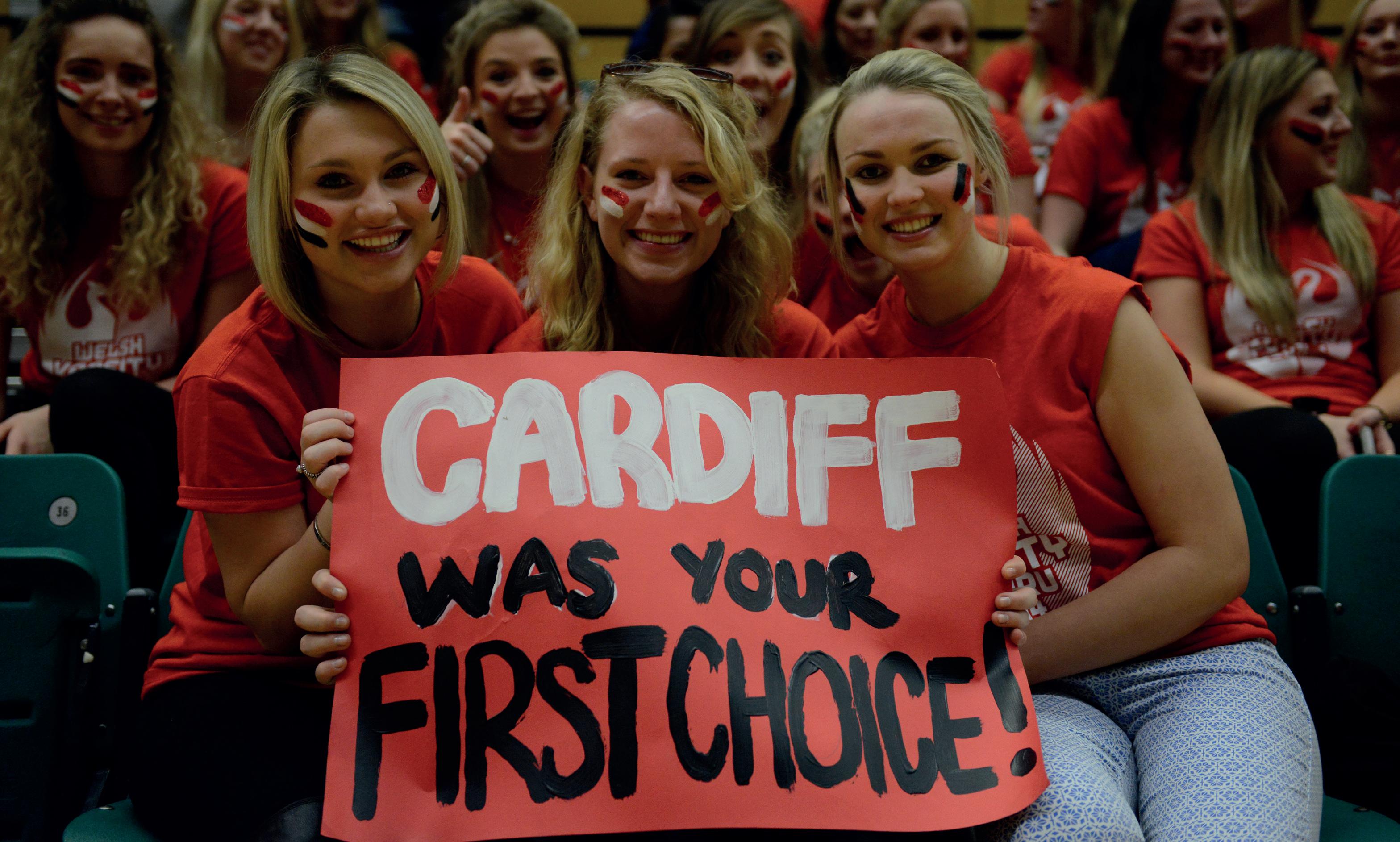
Gair Rhydd Sport Survey 2015
Our investigation looks into the student sport experience at Cardiff University, featuring questions about time and money, as well as a potential return to the Lash
EXCLUSIVE
Rory Benson
Joe Atkinson
David Hooson
Asurvey undertaken by Gair Rhydd Sport has investigated how much time and money Cardiff students spend on the sports they play.
The questionnaire asked Cardiff University students how much time they dedicate to both training and playing their sport each week, as well as how much they have spent on membership and kit since they
joined their specific team.
After a week, 176 people completed the survey, with 143 (or 81%) being part of the Athletic Union. This is a very large majority of the student body, showing just how important university sport is to Cardiff scholars.
In addition to this, everyone who took the survey was asked which sports clubs they belonged
to. Although most of the surveyed students were part of one sports club, there were some exceptions.
Out of 141 members of the AU, there were 173 club memberships, with 24 students taking part in two or more sport societies. This again shows how much sport means to a large proportion of Cardiff University students.
All together, members of 39
different sports clubs completed the survey and, despite not having a representative from every sport in the AU (which is comprised of 64 clubs), the 141 people spread over 39 sports can be used as a fairly accurate representation of Cardiff University’s athletic body.
The survey has also revealed why Cardiff students get involved in university sports, with 78% of those




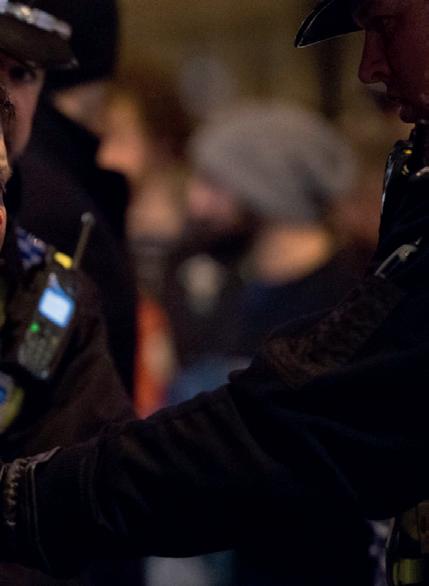



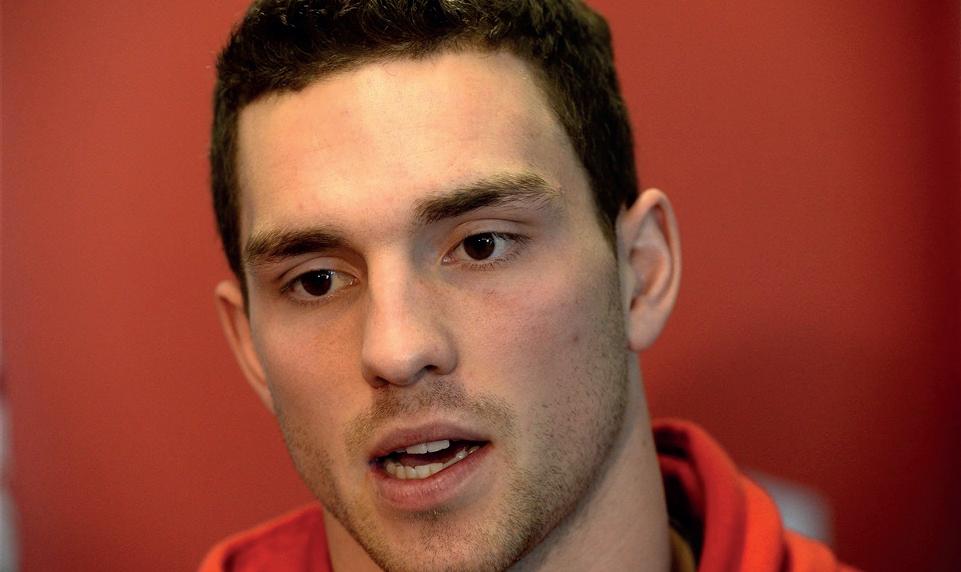
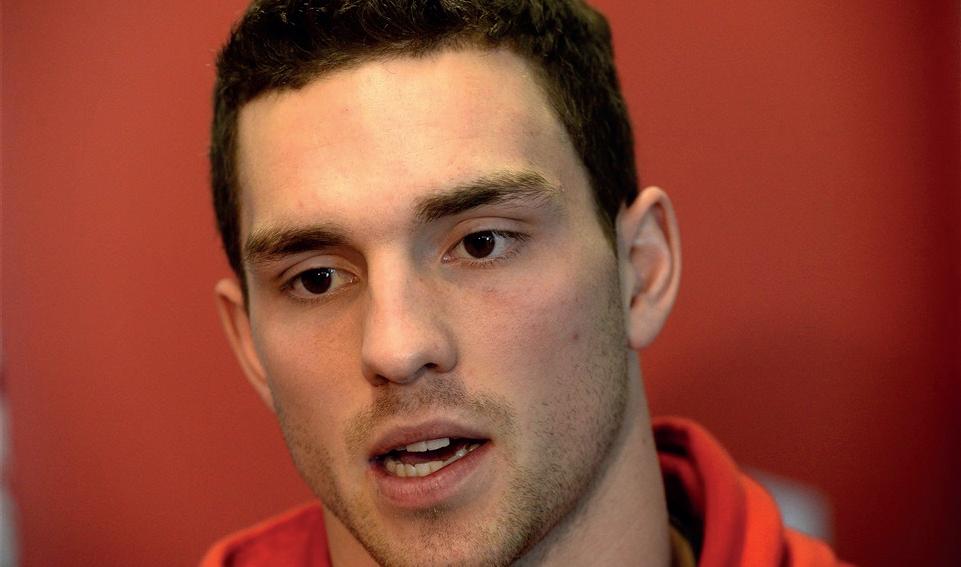
SPORT
Sport’s Pitch: Friday night games P35>> Exclusive interview: Chris Coleman P38-39>> Reaction to George North KO P34>>
Photograph: Taliesin Coombes
Continued on pages 36-37











































 Anna Lewis
Pictured: Bike racks outside the Arts and Social Sciences Library
Anna Lewis
Anna Lewis
Pictured: Bike racks outside the Arts and Social Sciences Library
Anna Lewis





















 Tim Nagle
Tim Nagle
 emily Jones Greg mcchesney
emily Jones Greg mcchesney
































































































































 Pictured:
Left: Chris Coleman.
Below: Wales stars Hal Robson-Kanu, Aaron Ramsey and Gareth Bale
Dan Heard
Pictured:
Left: Chris Coleman.
Below: Wales stars Hal Robson-Kanu, Aaron Ramsey and Gareth Bale
Dan Heard














